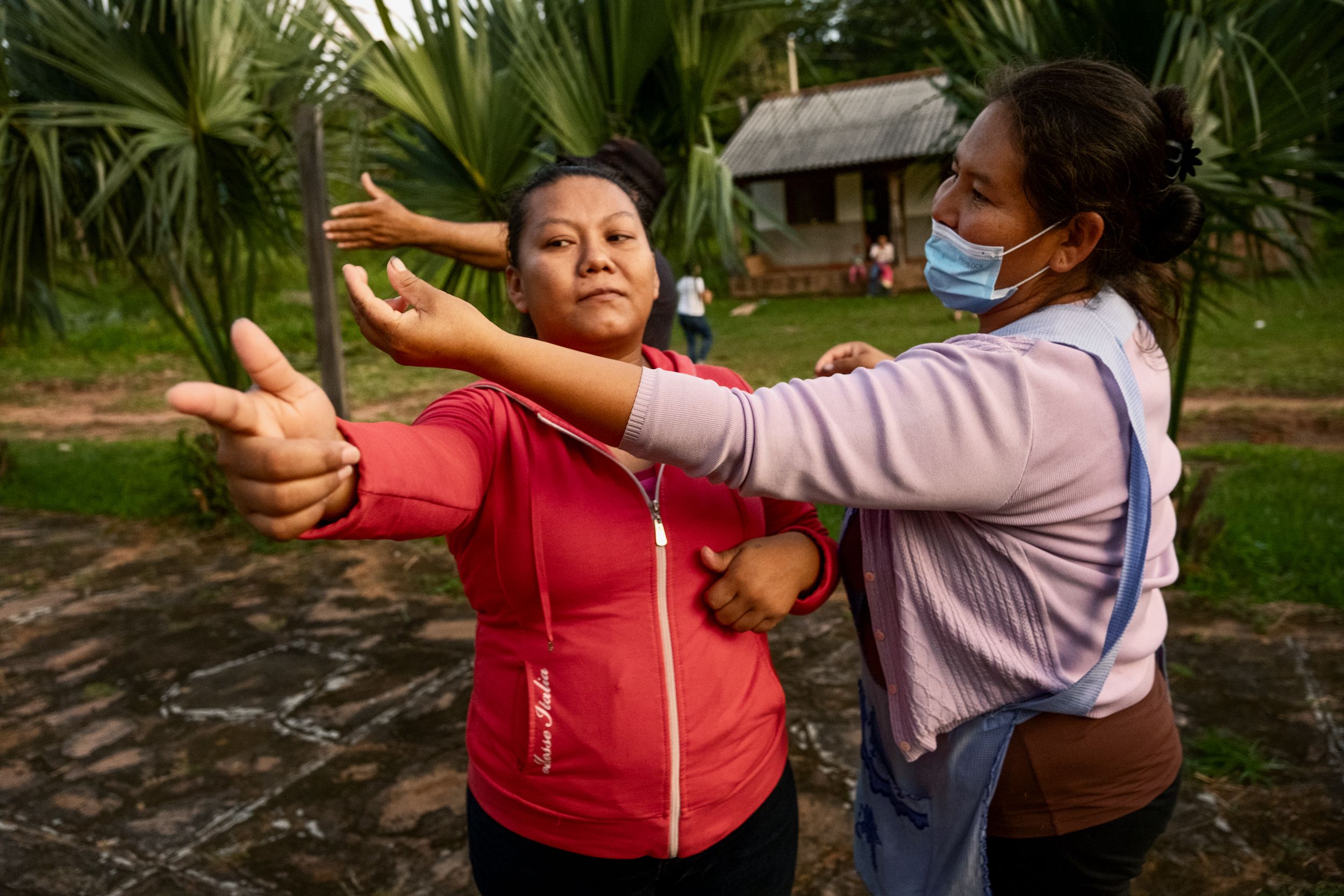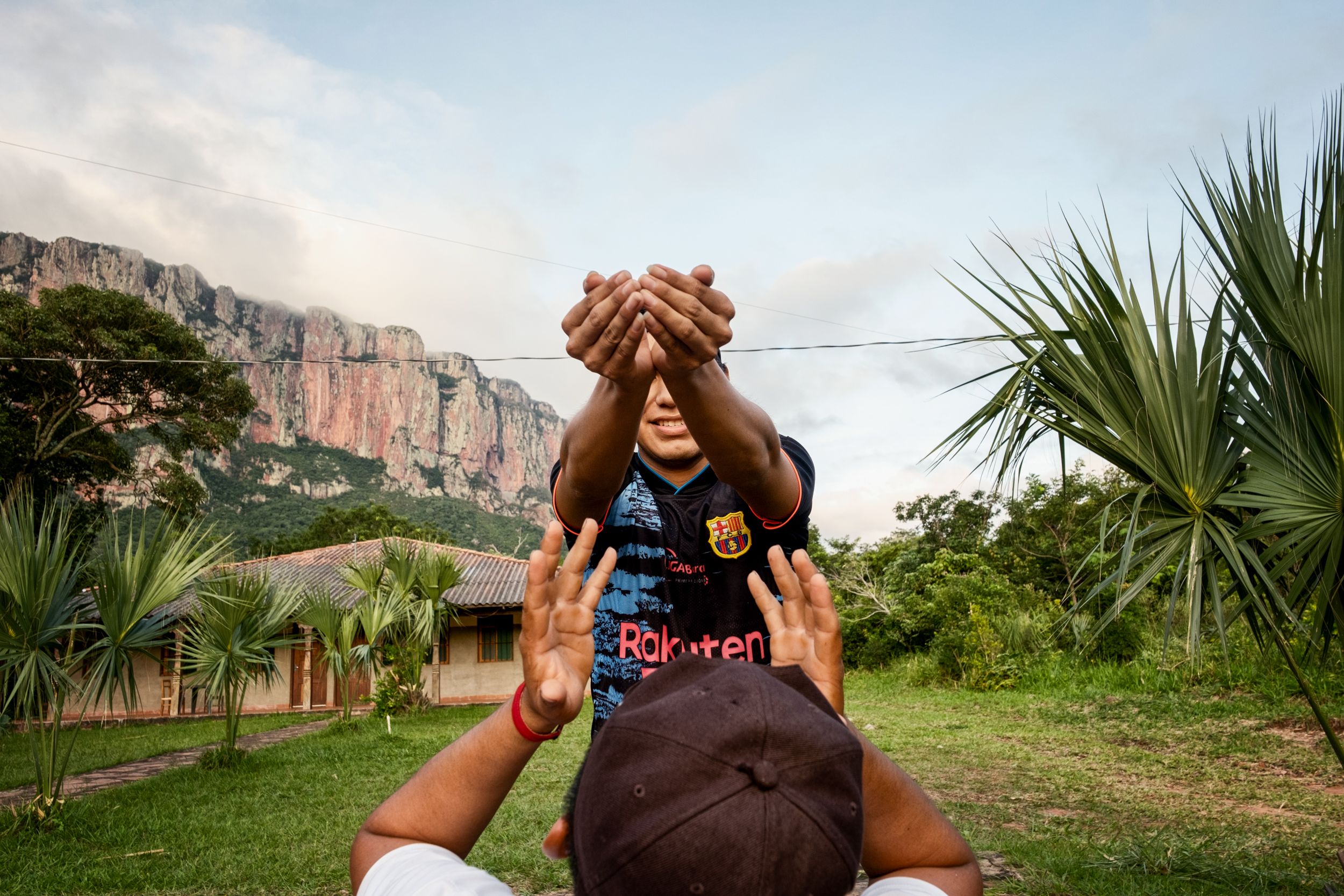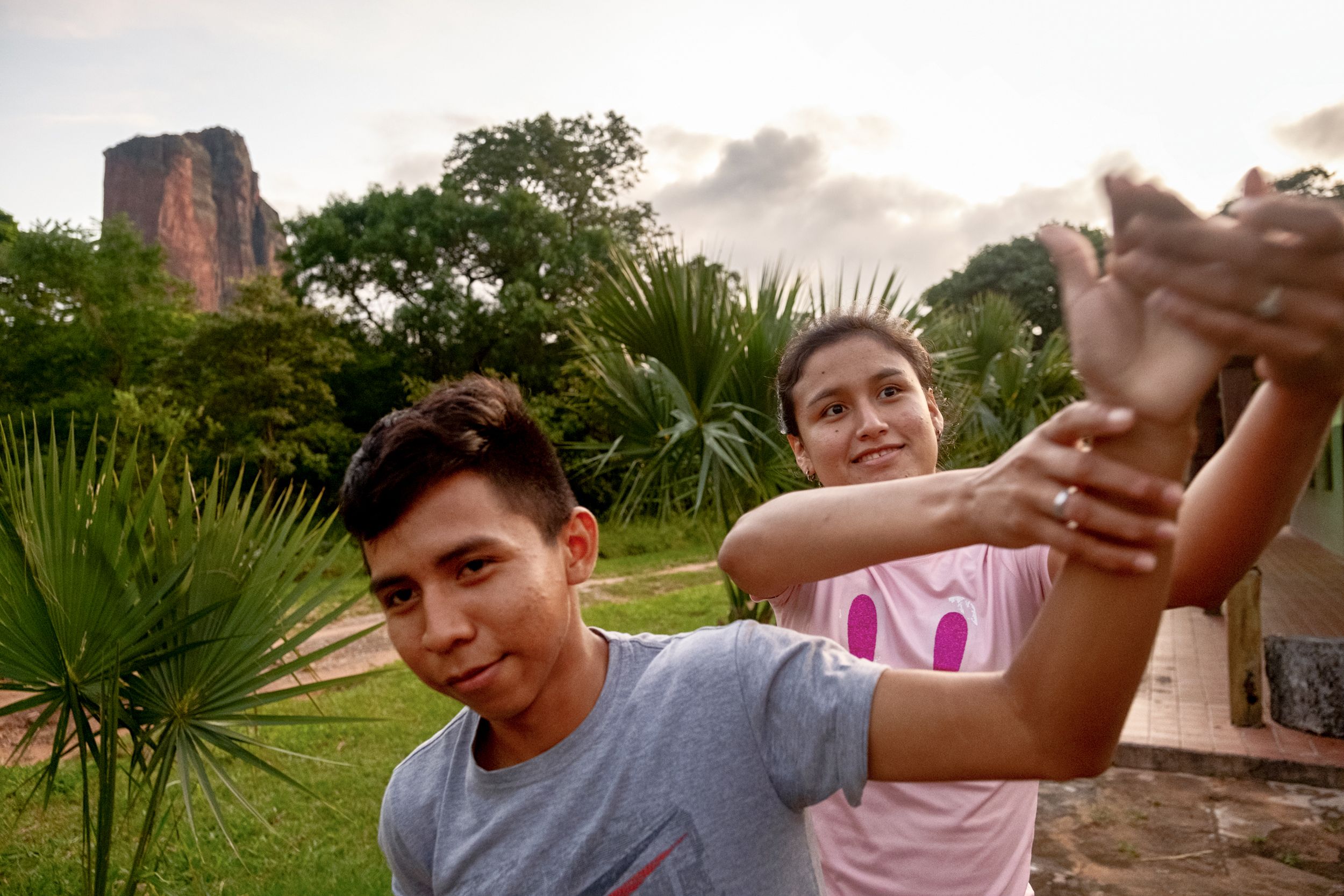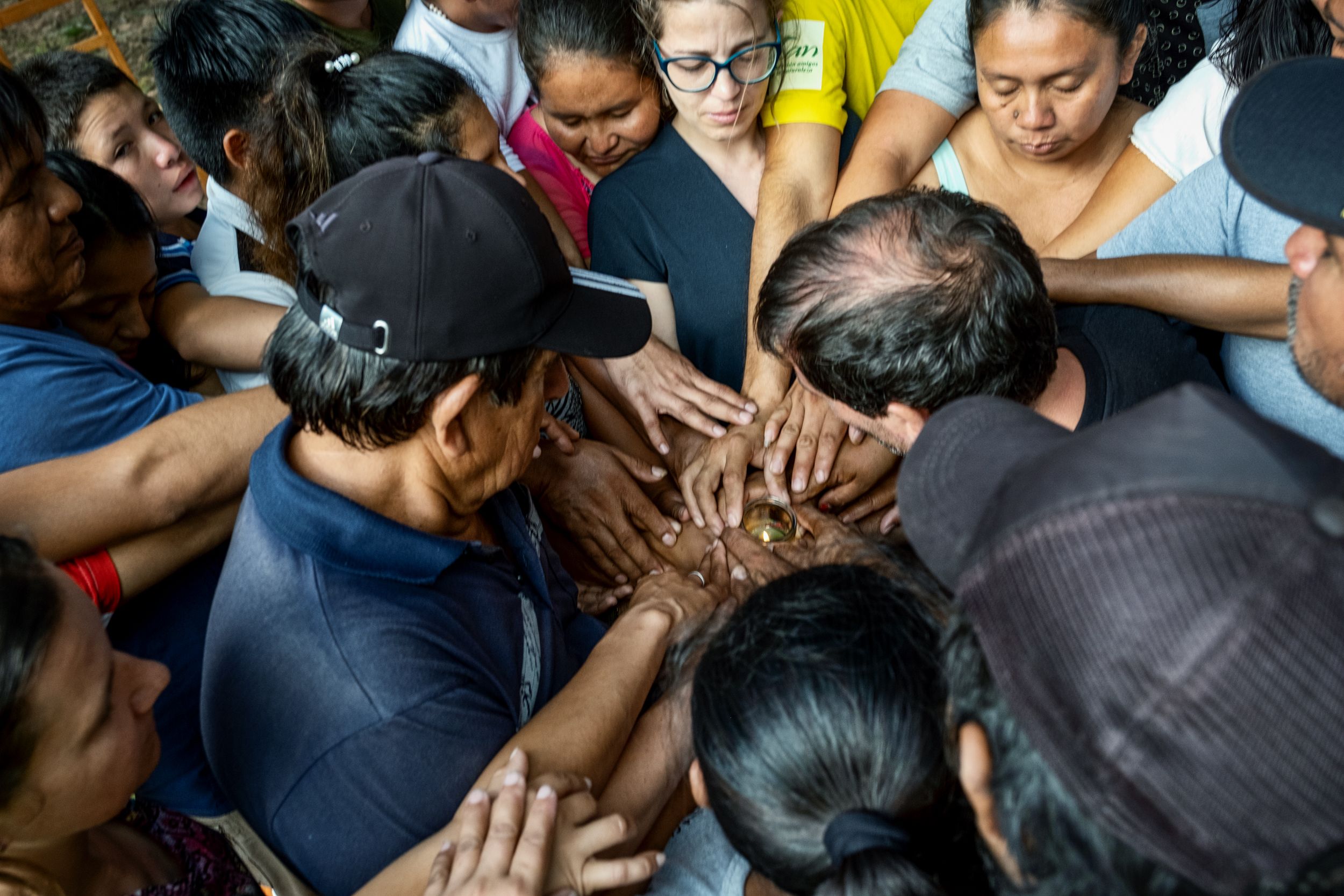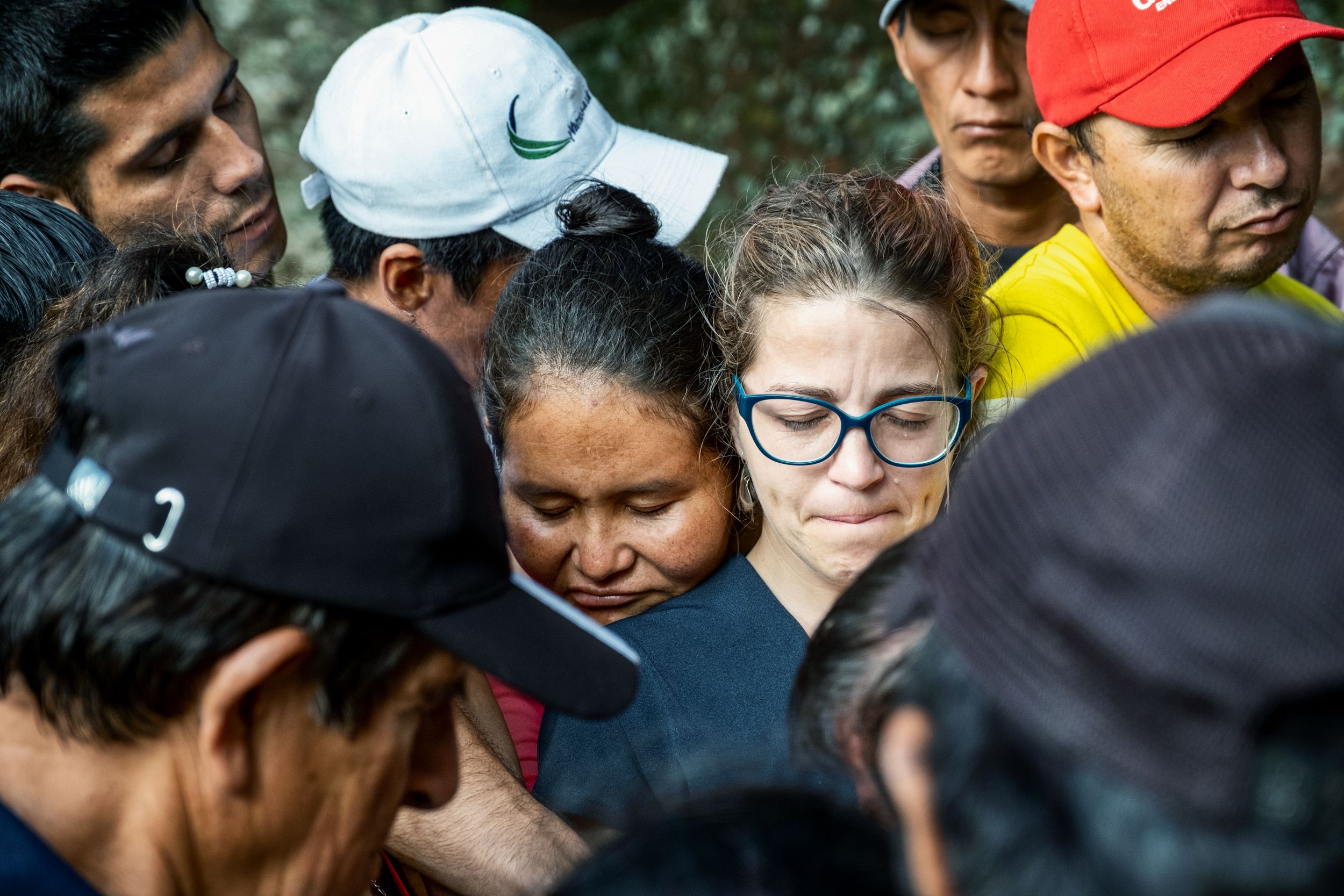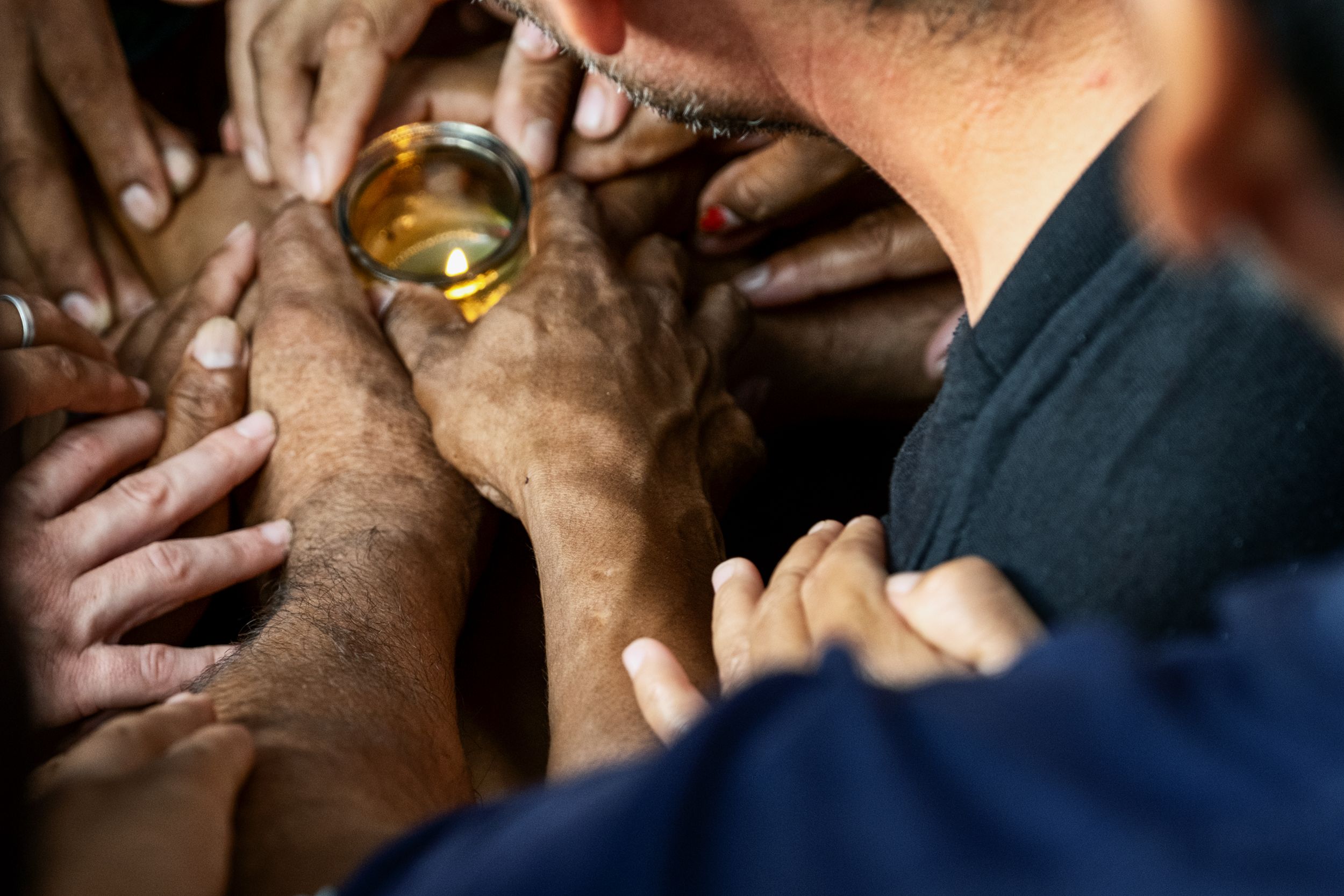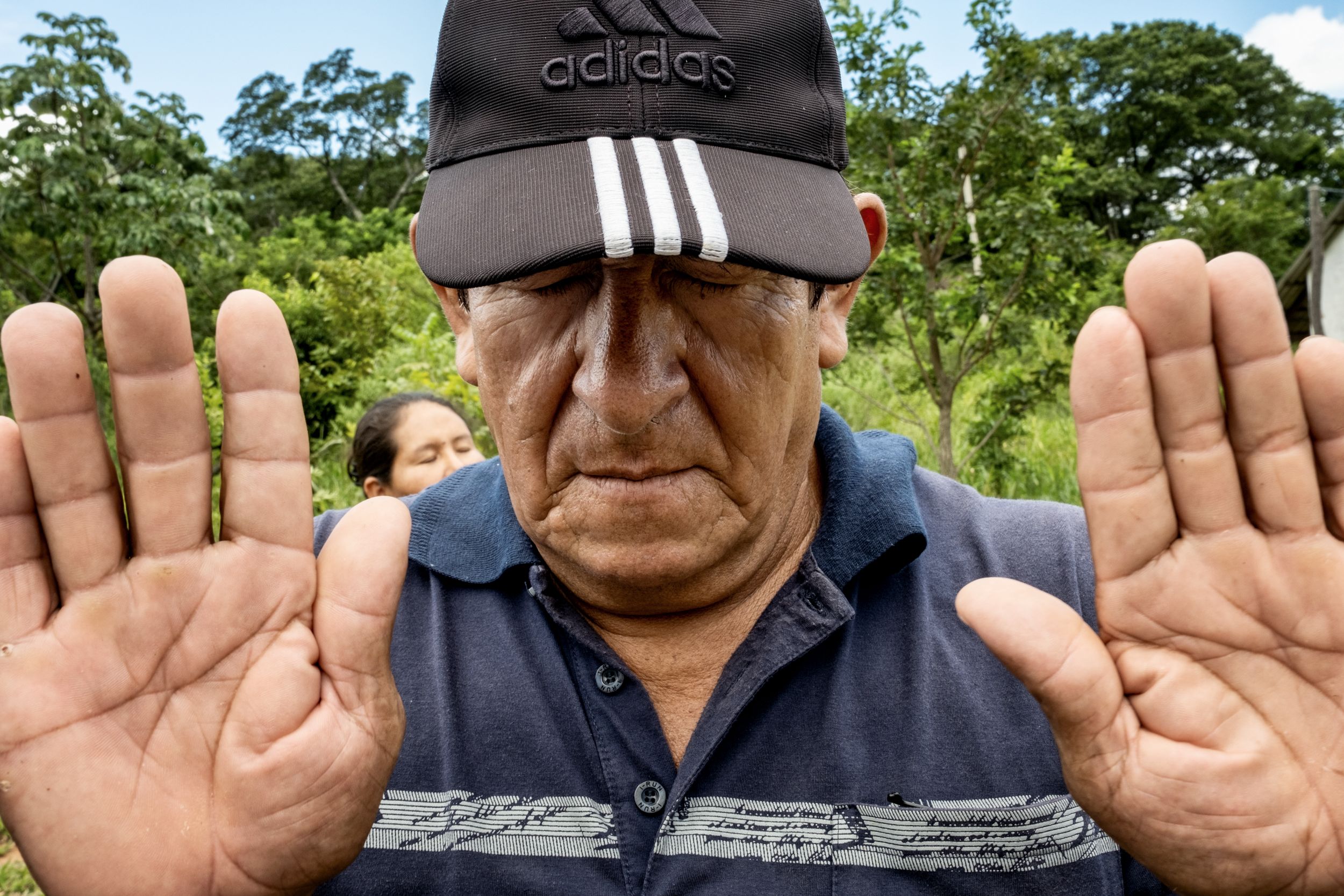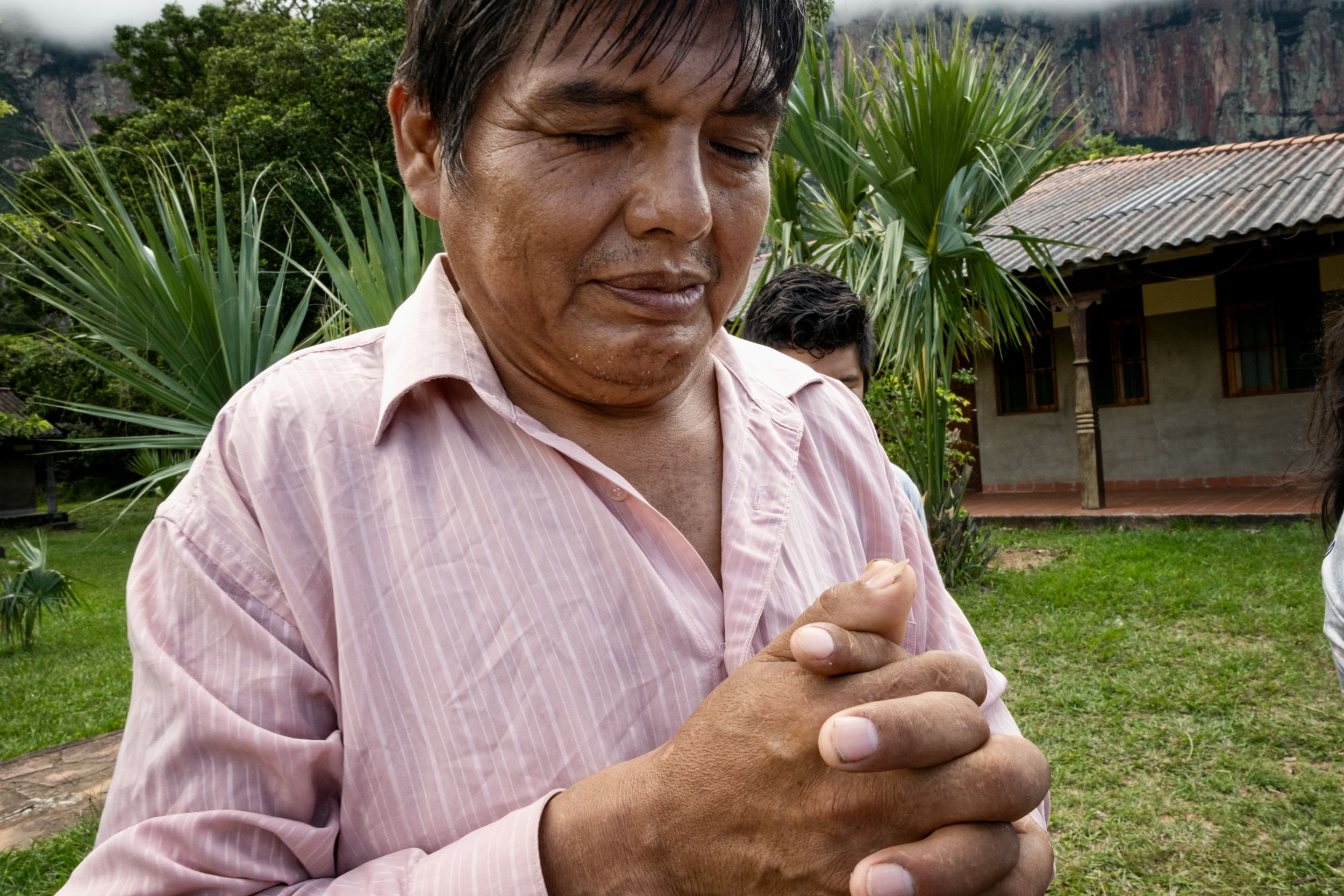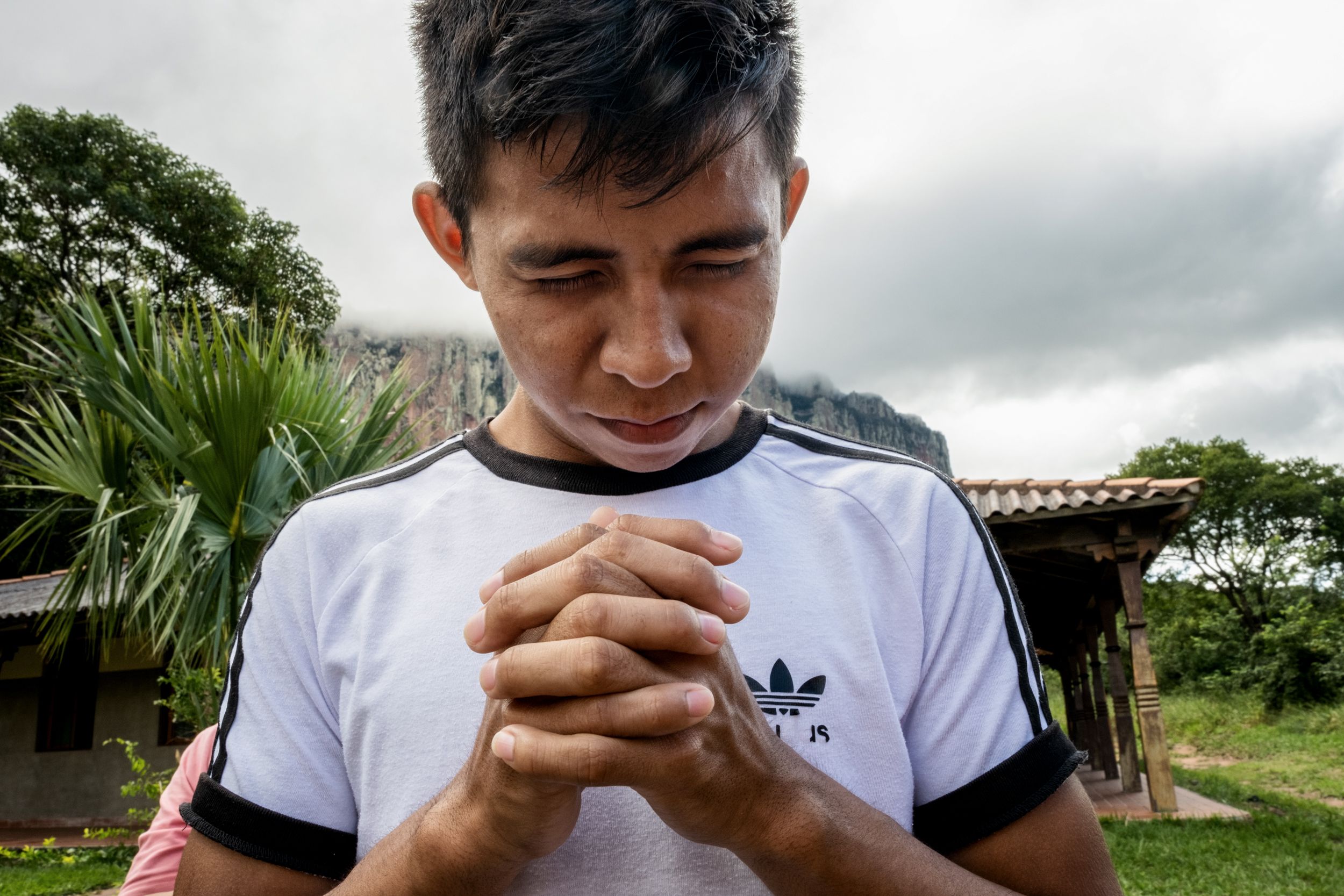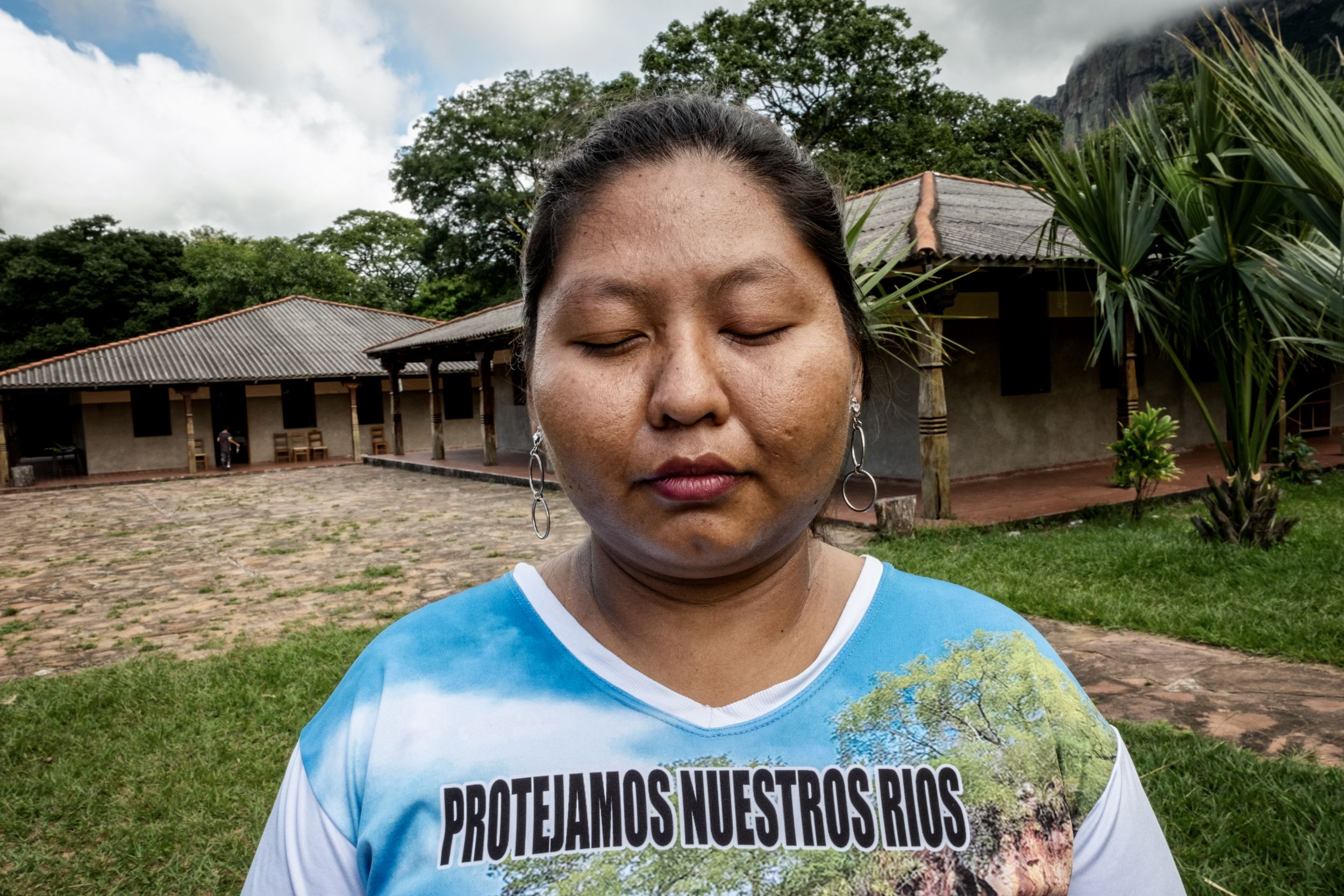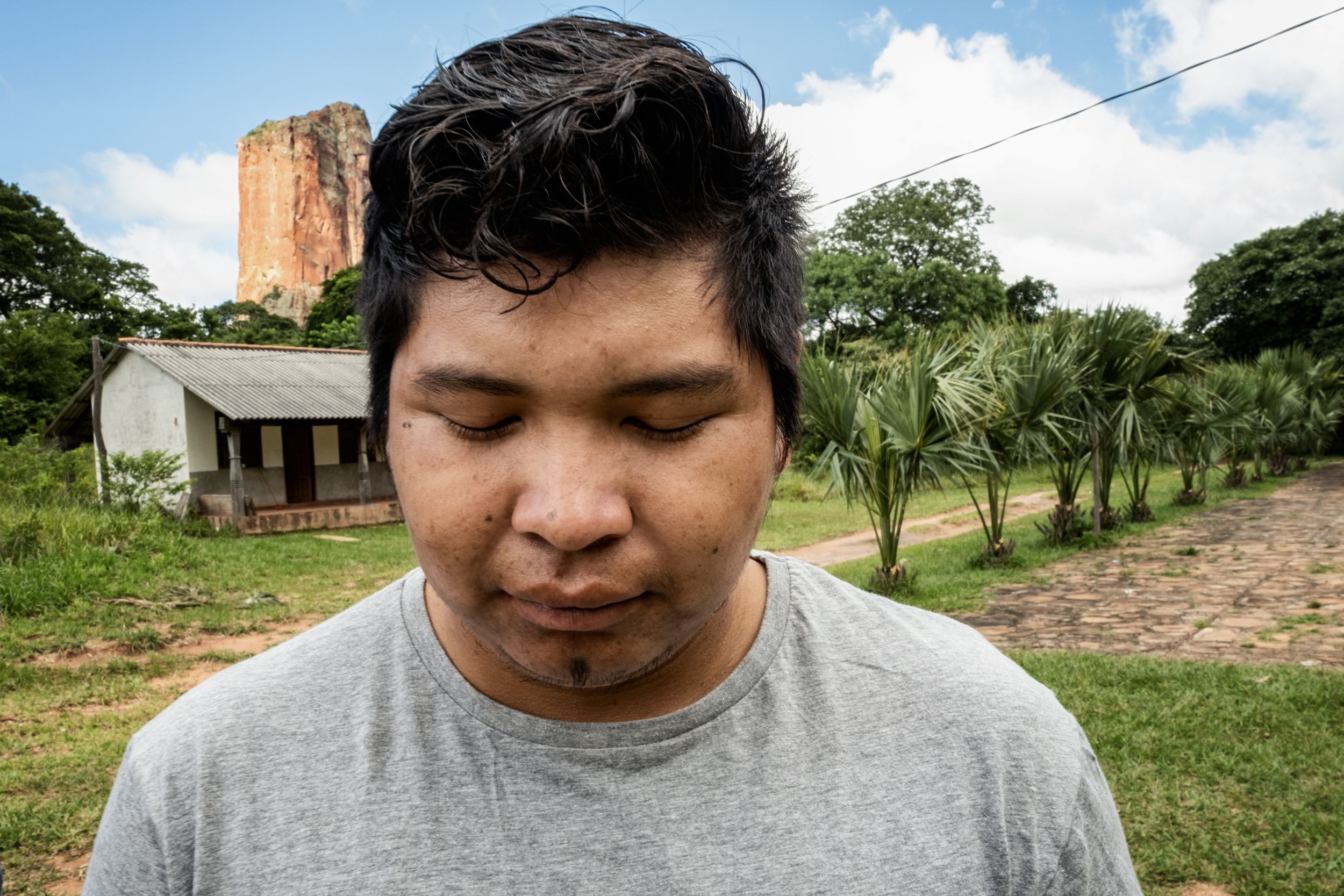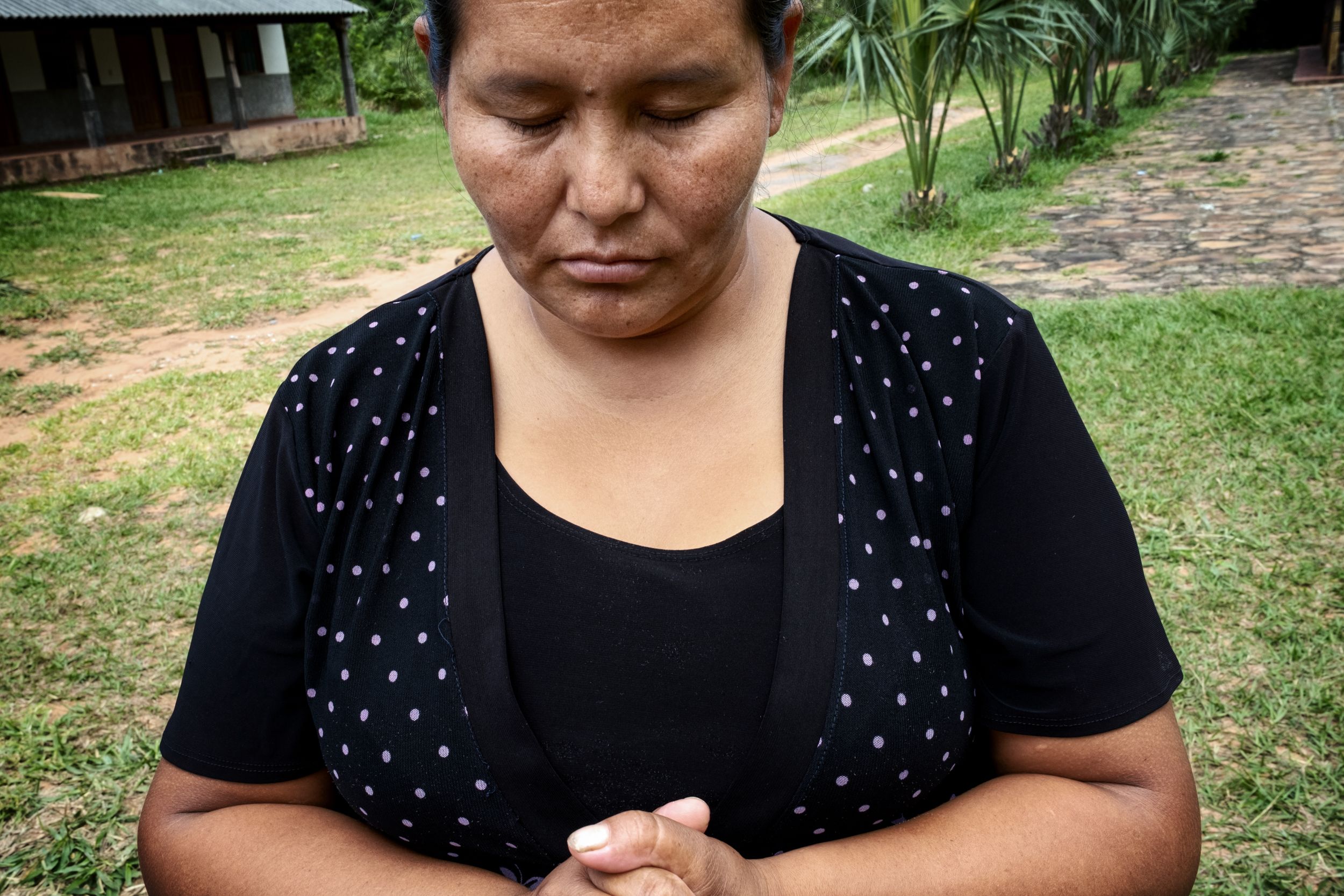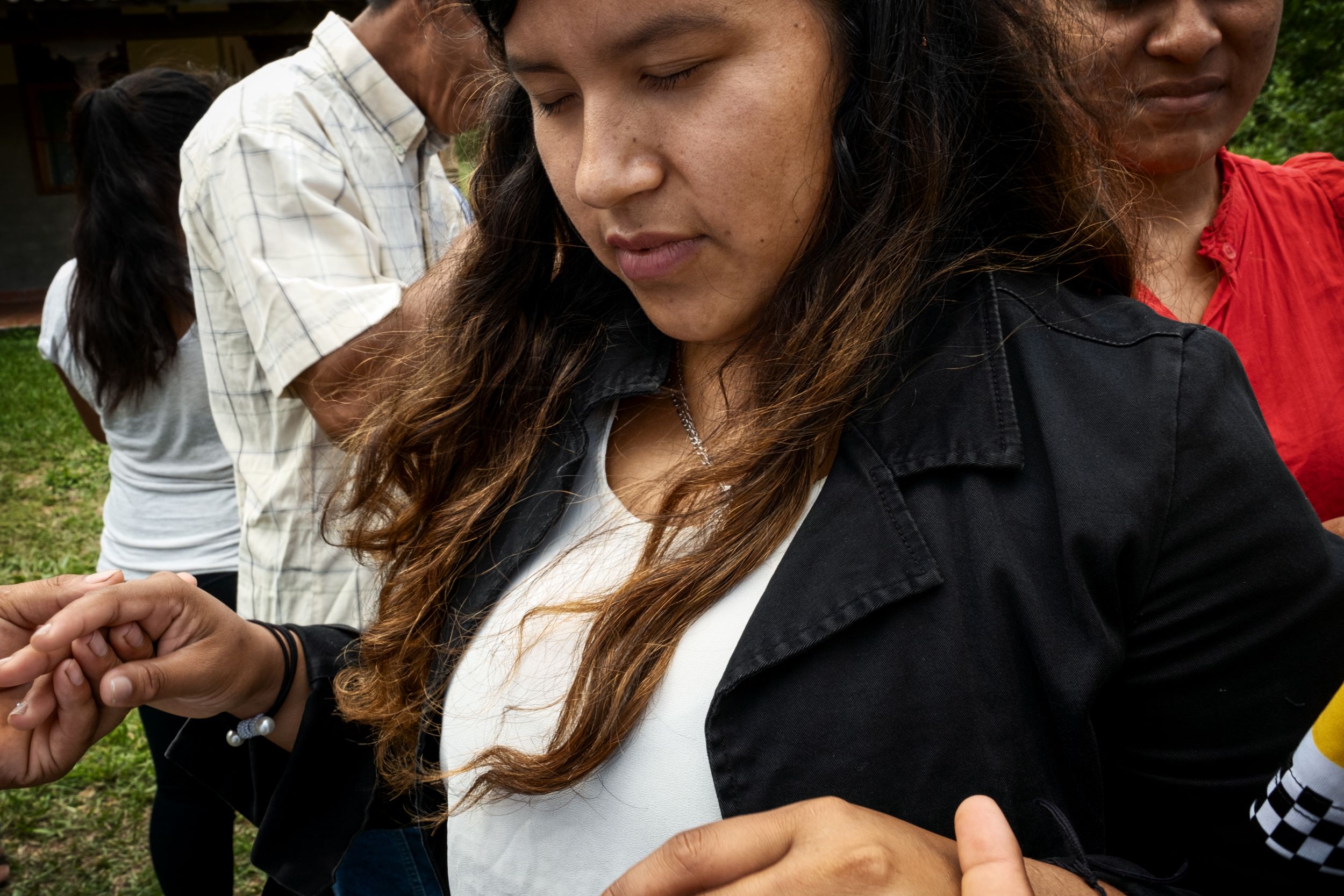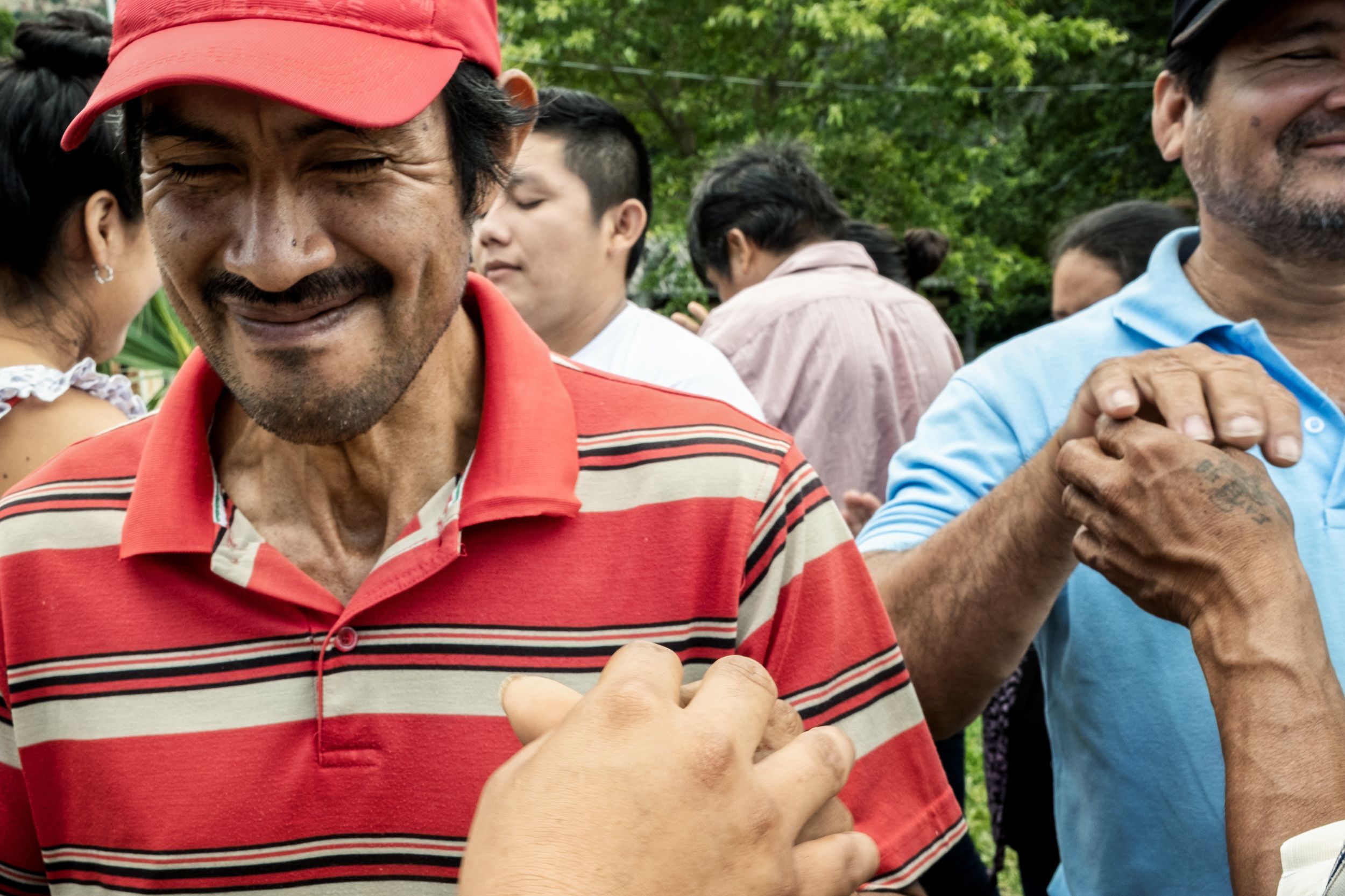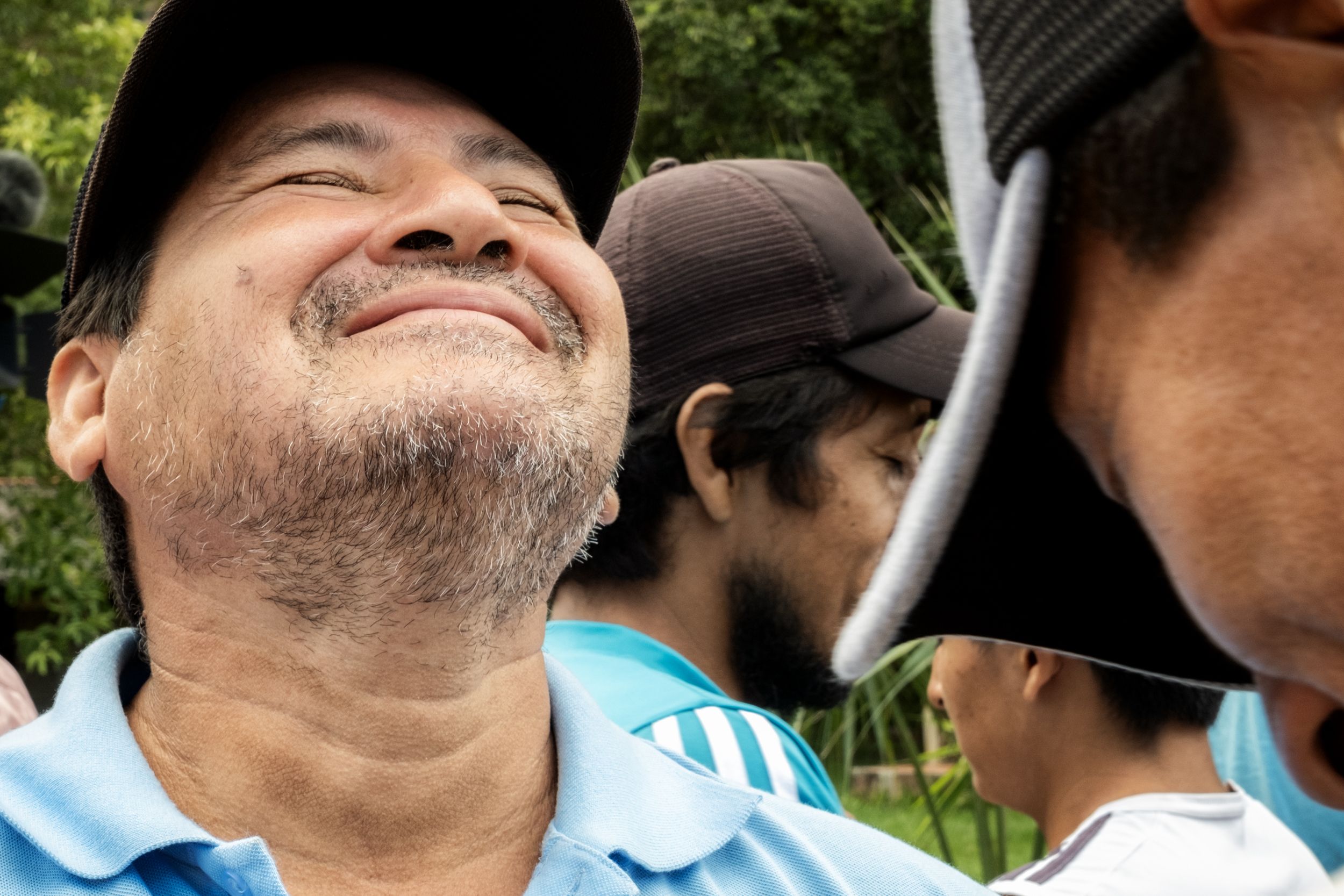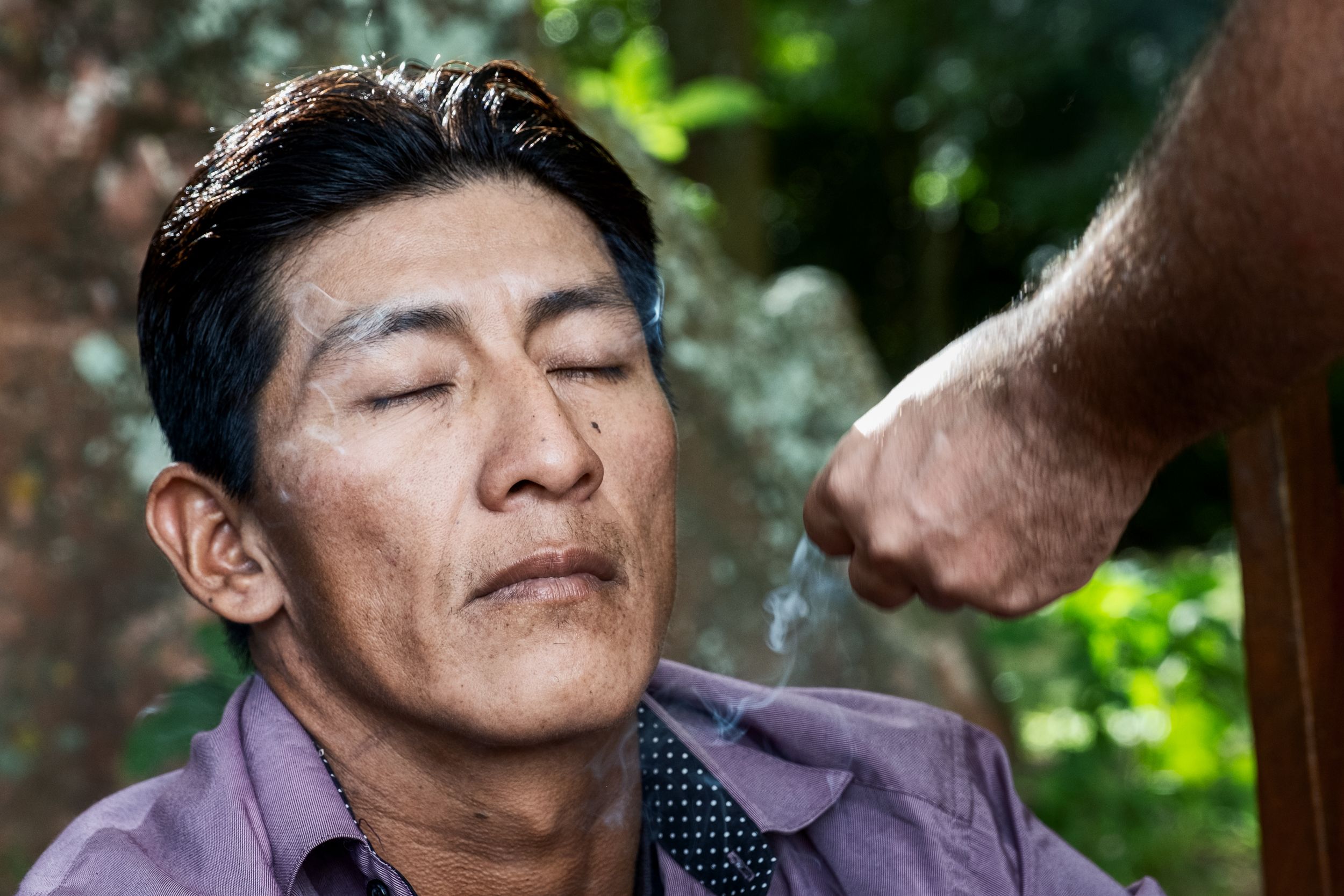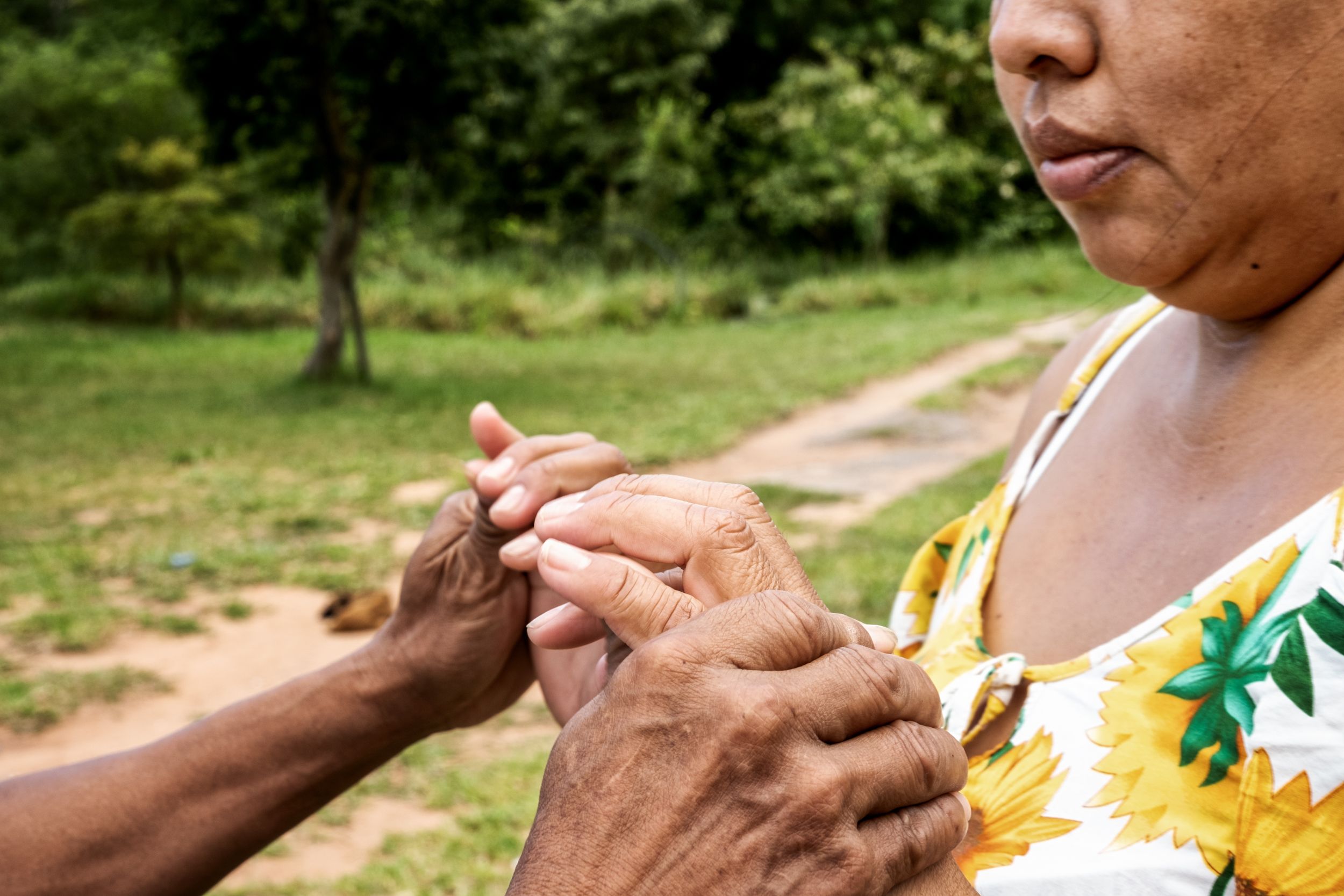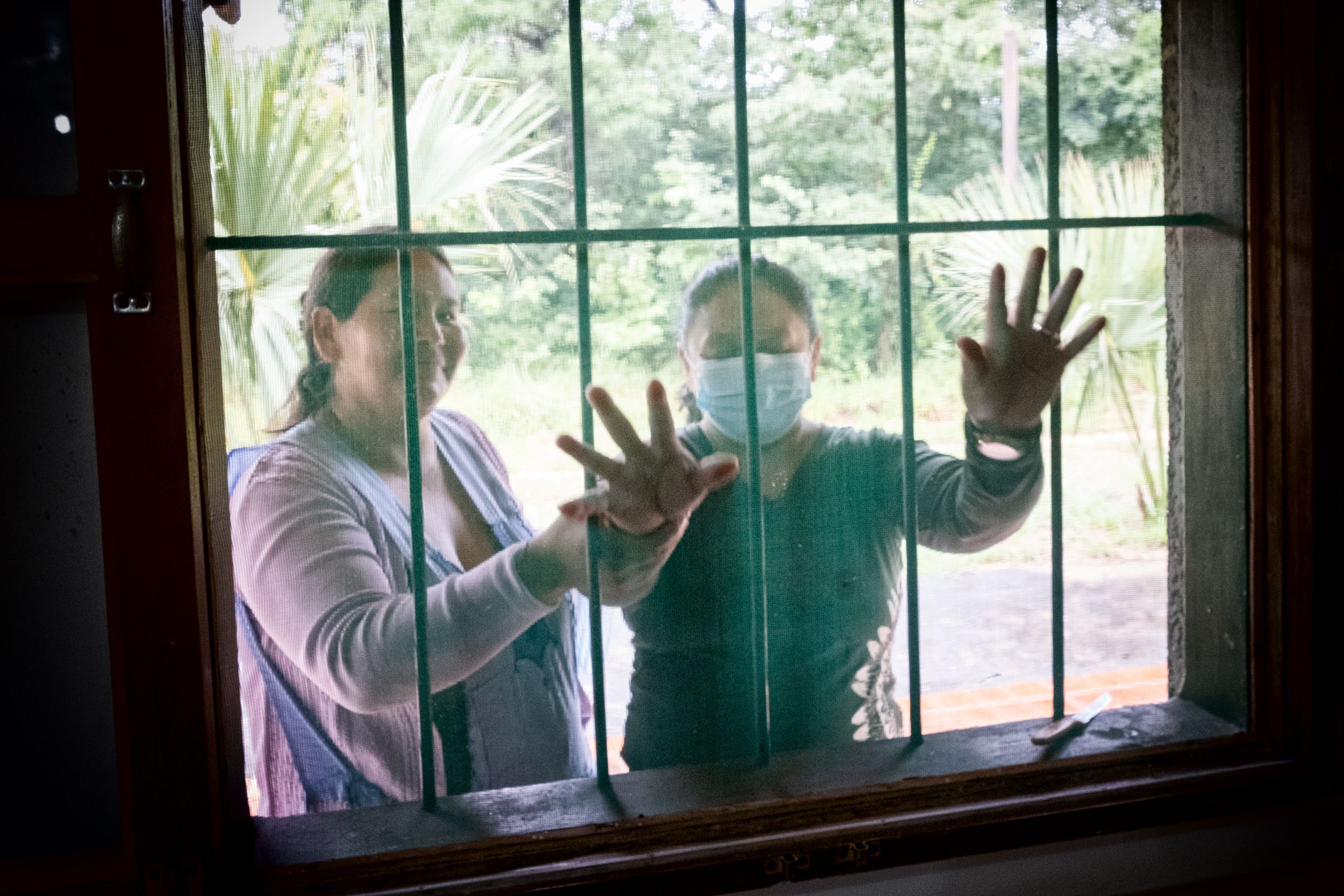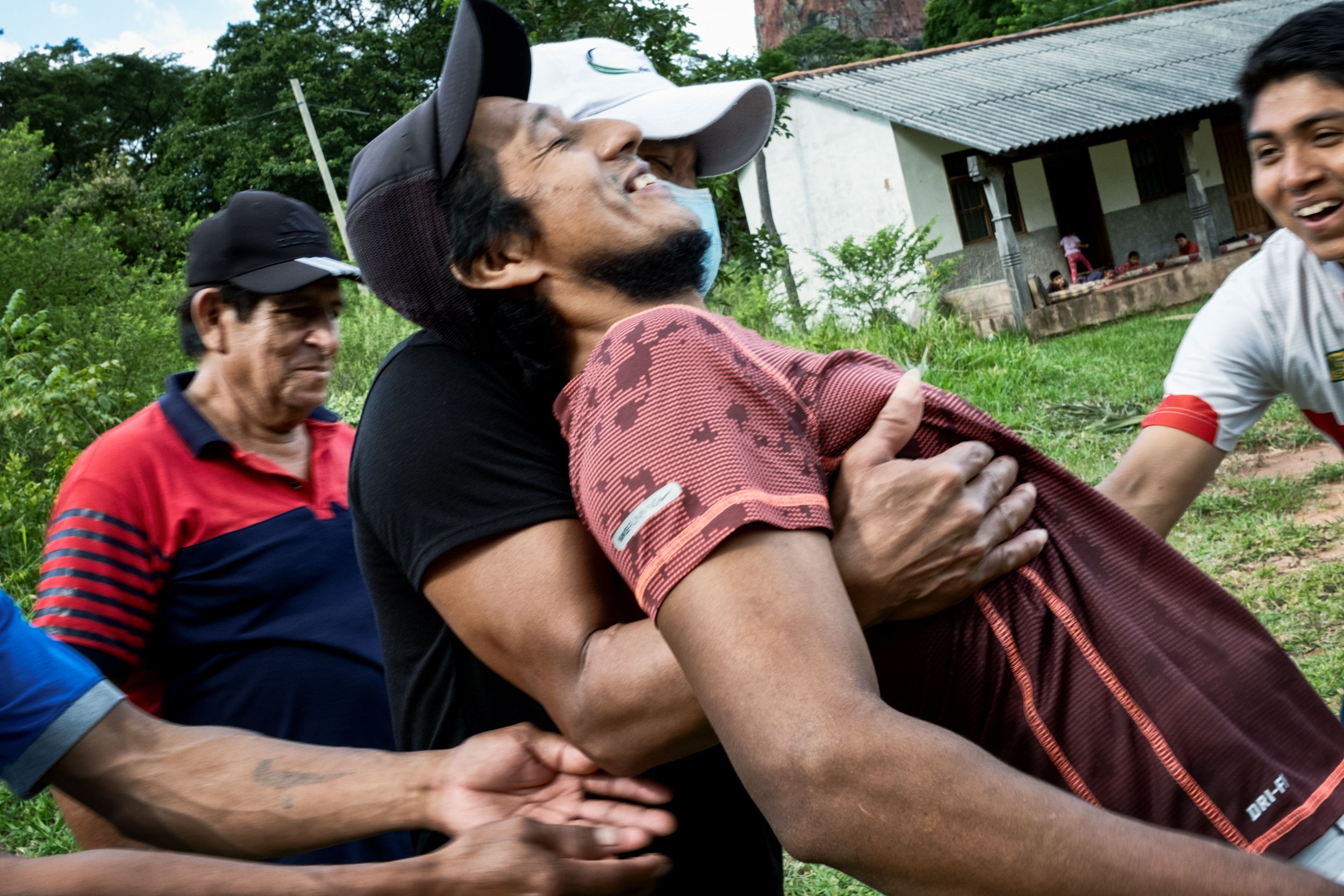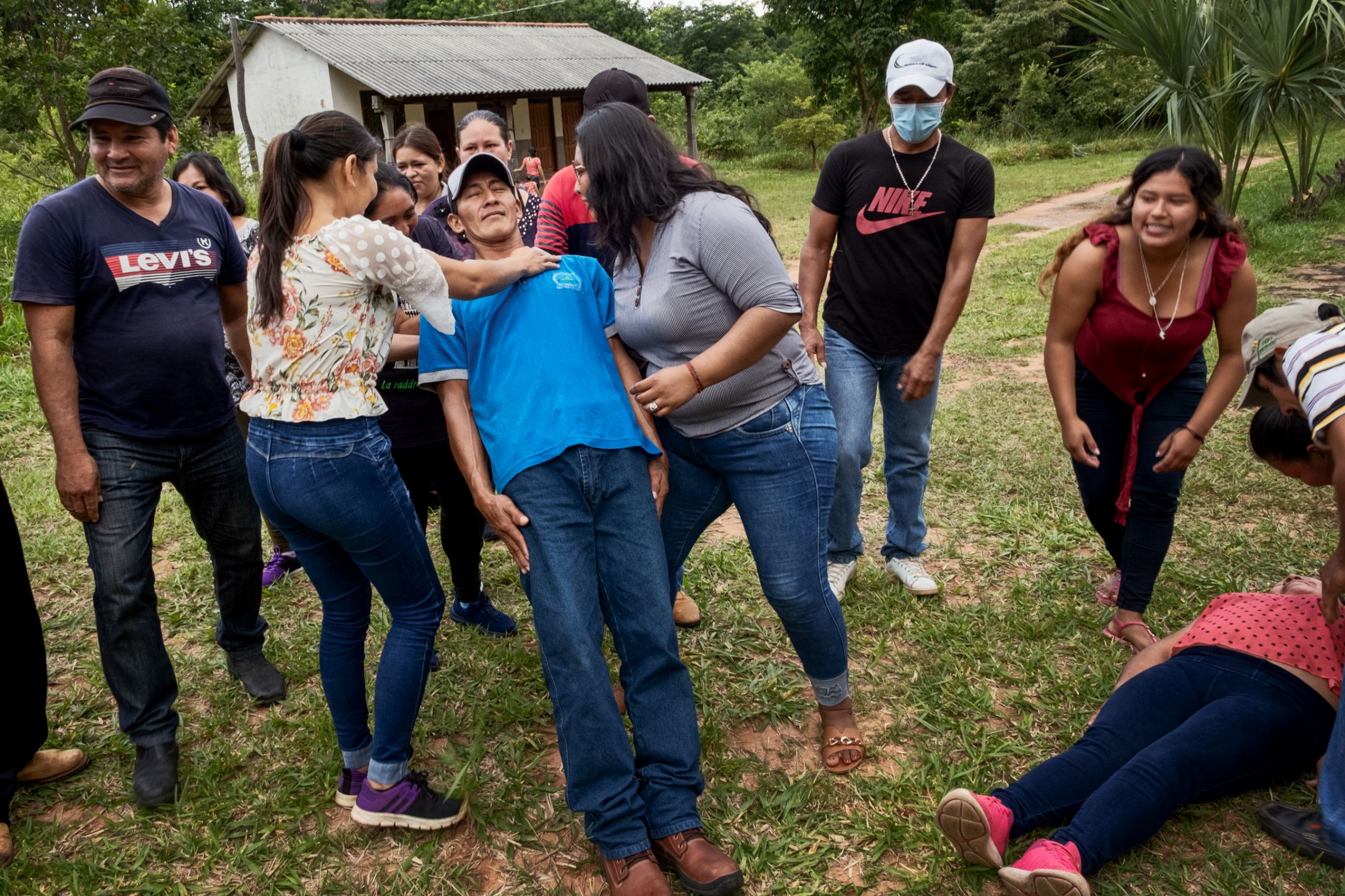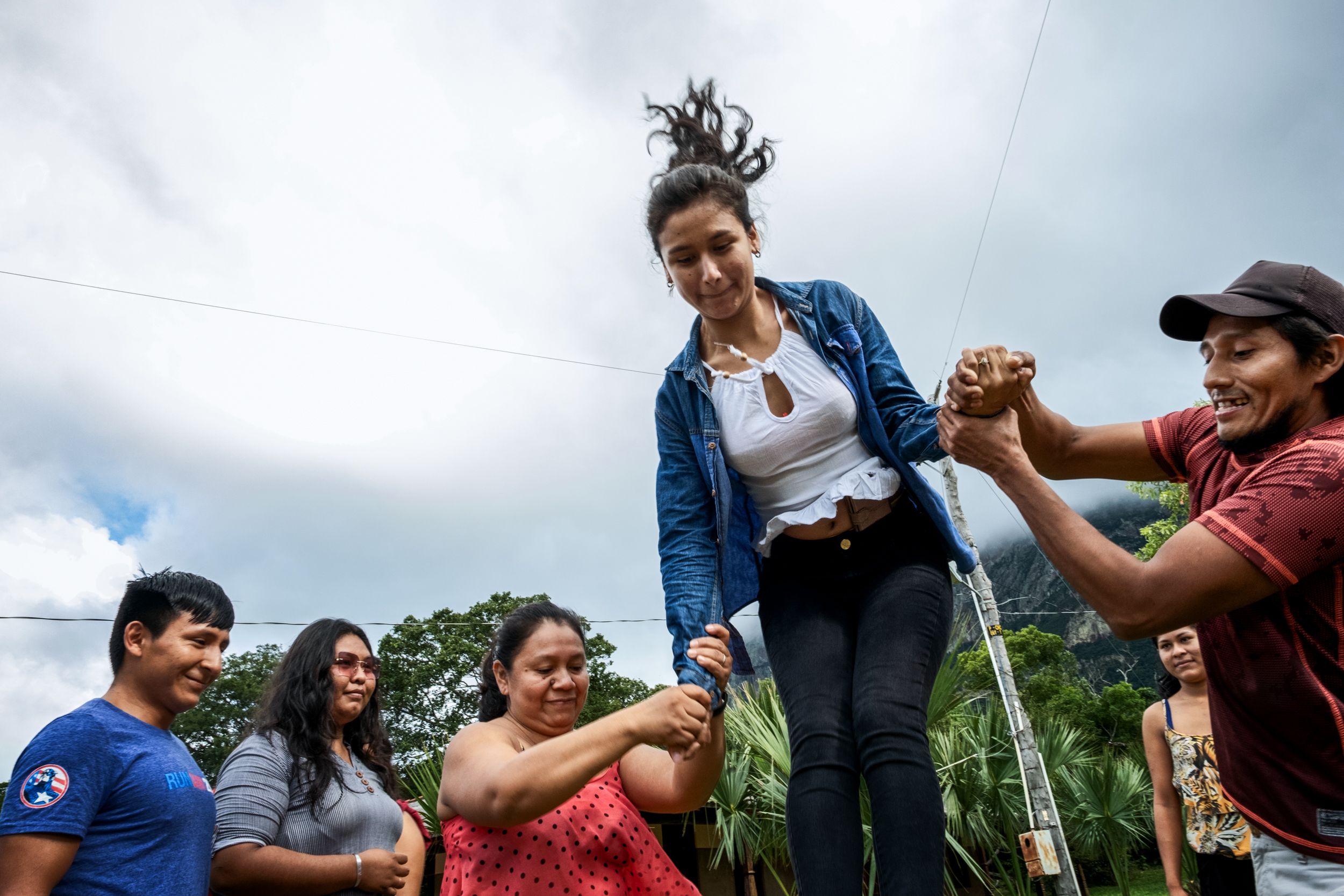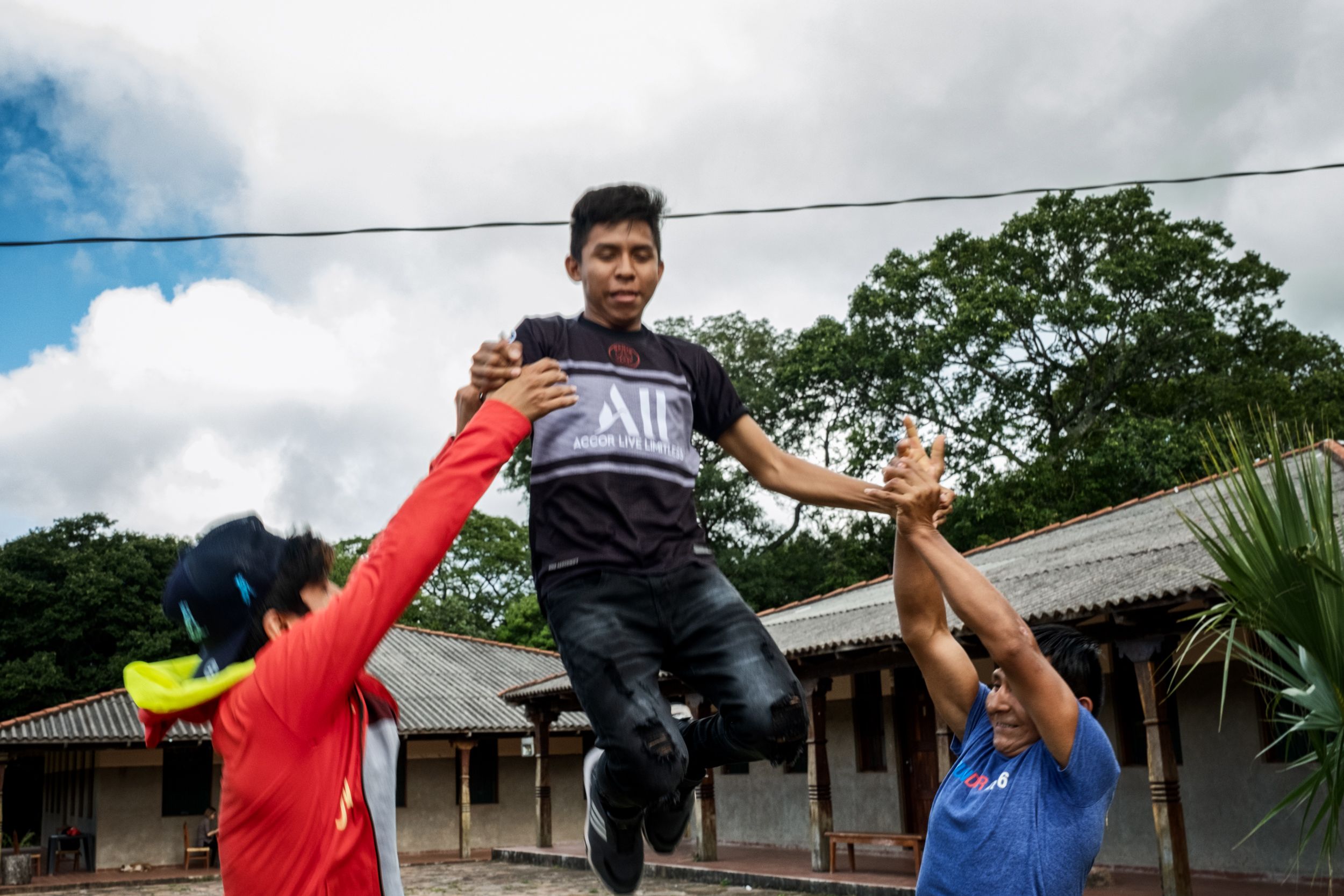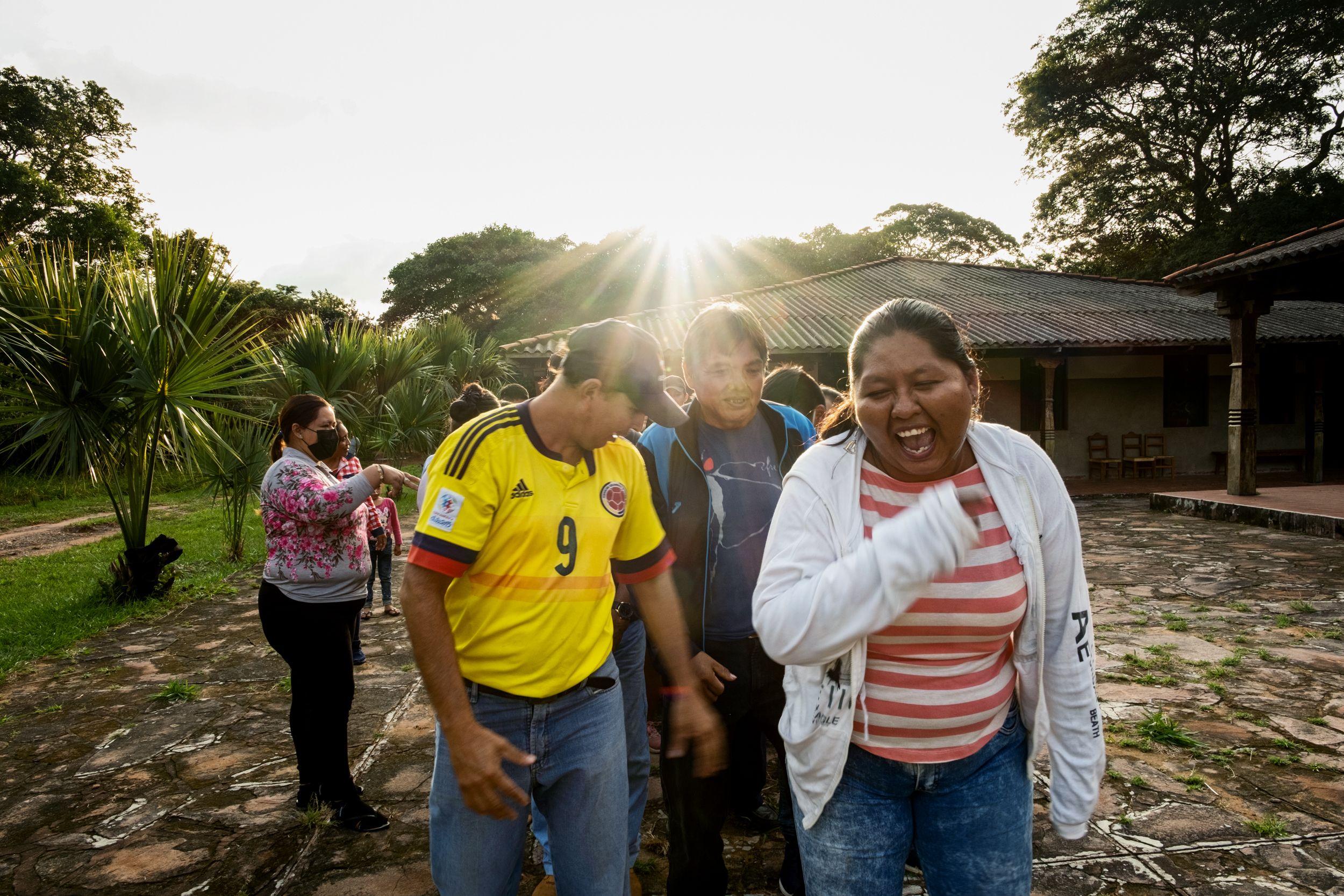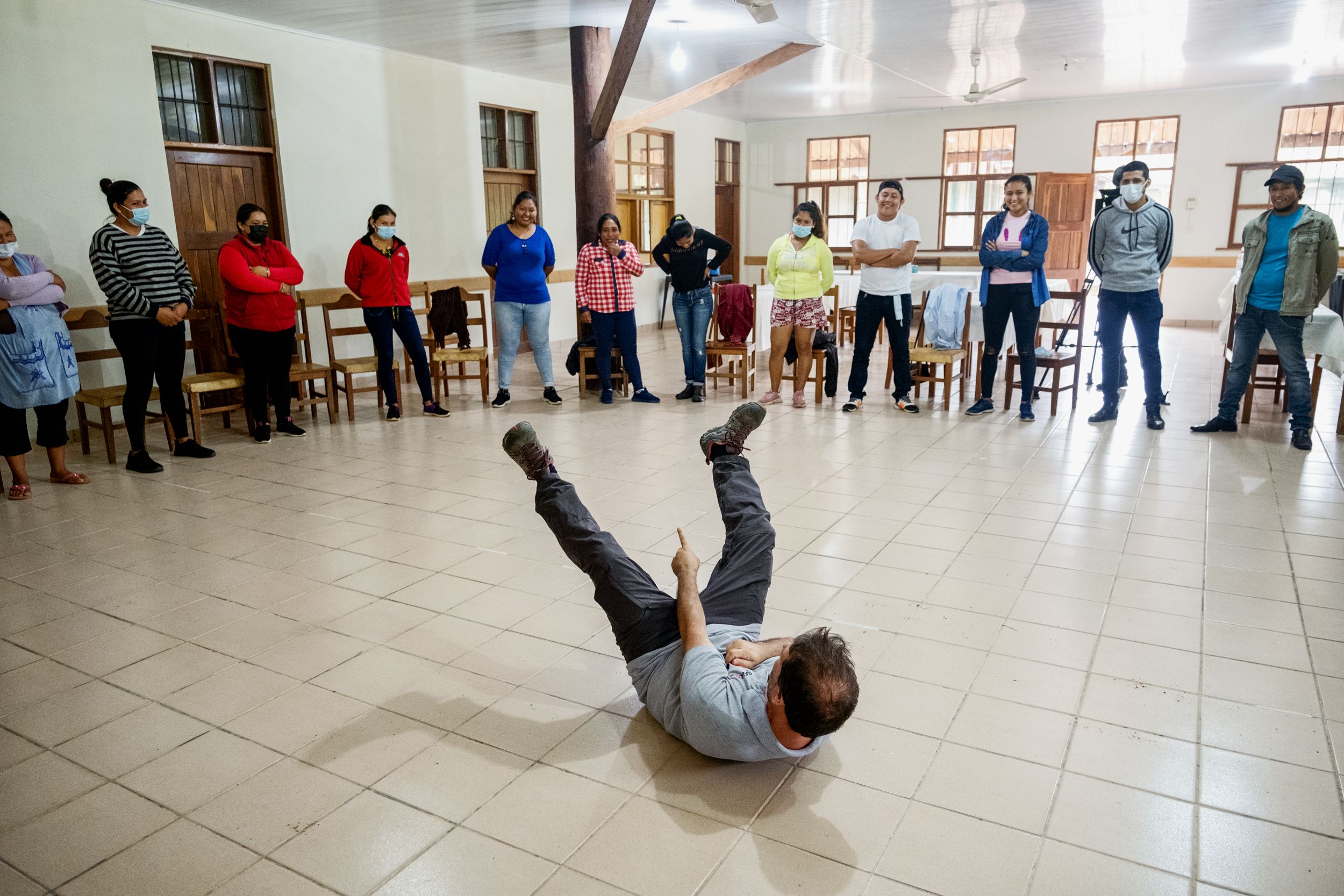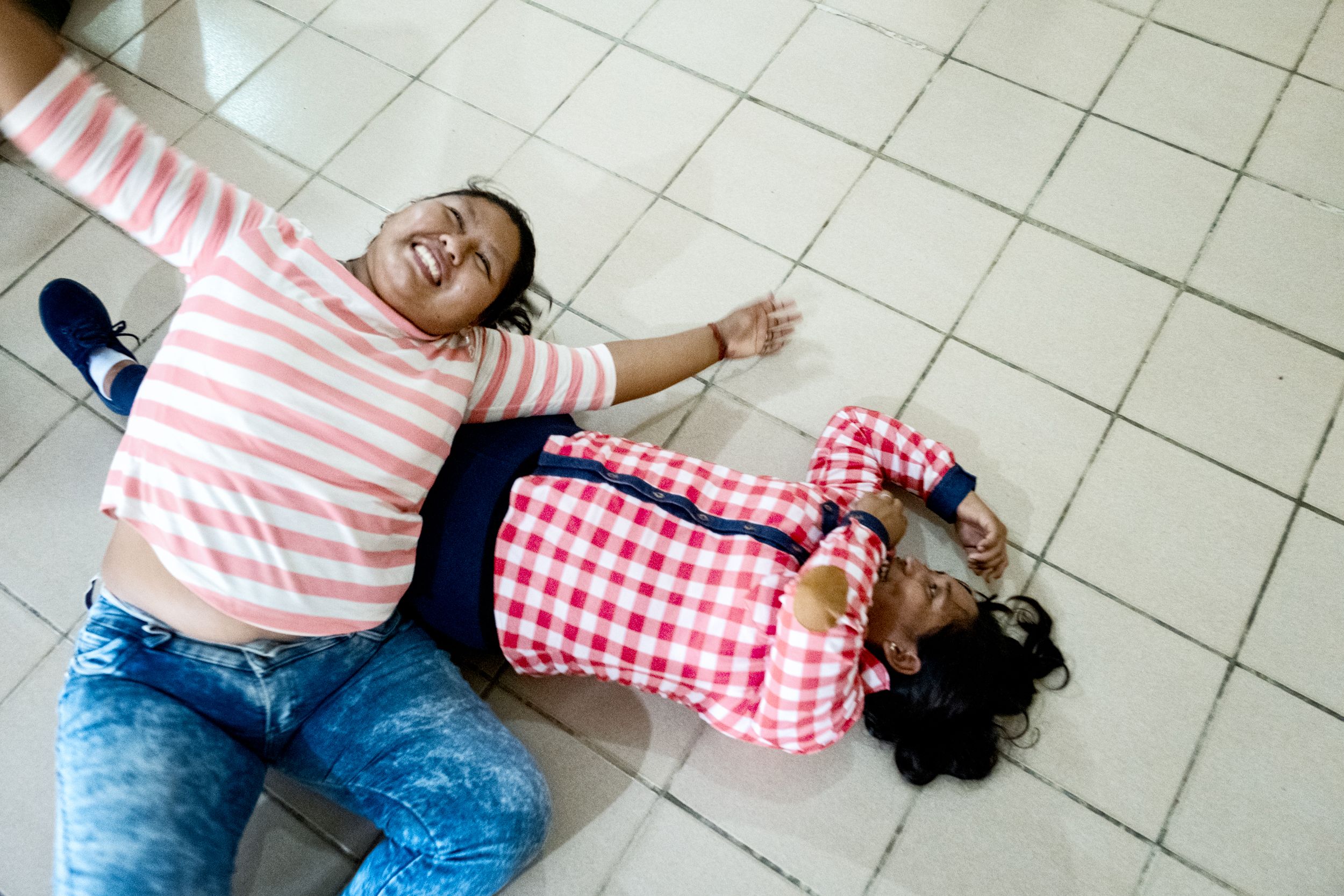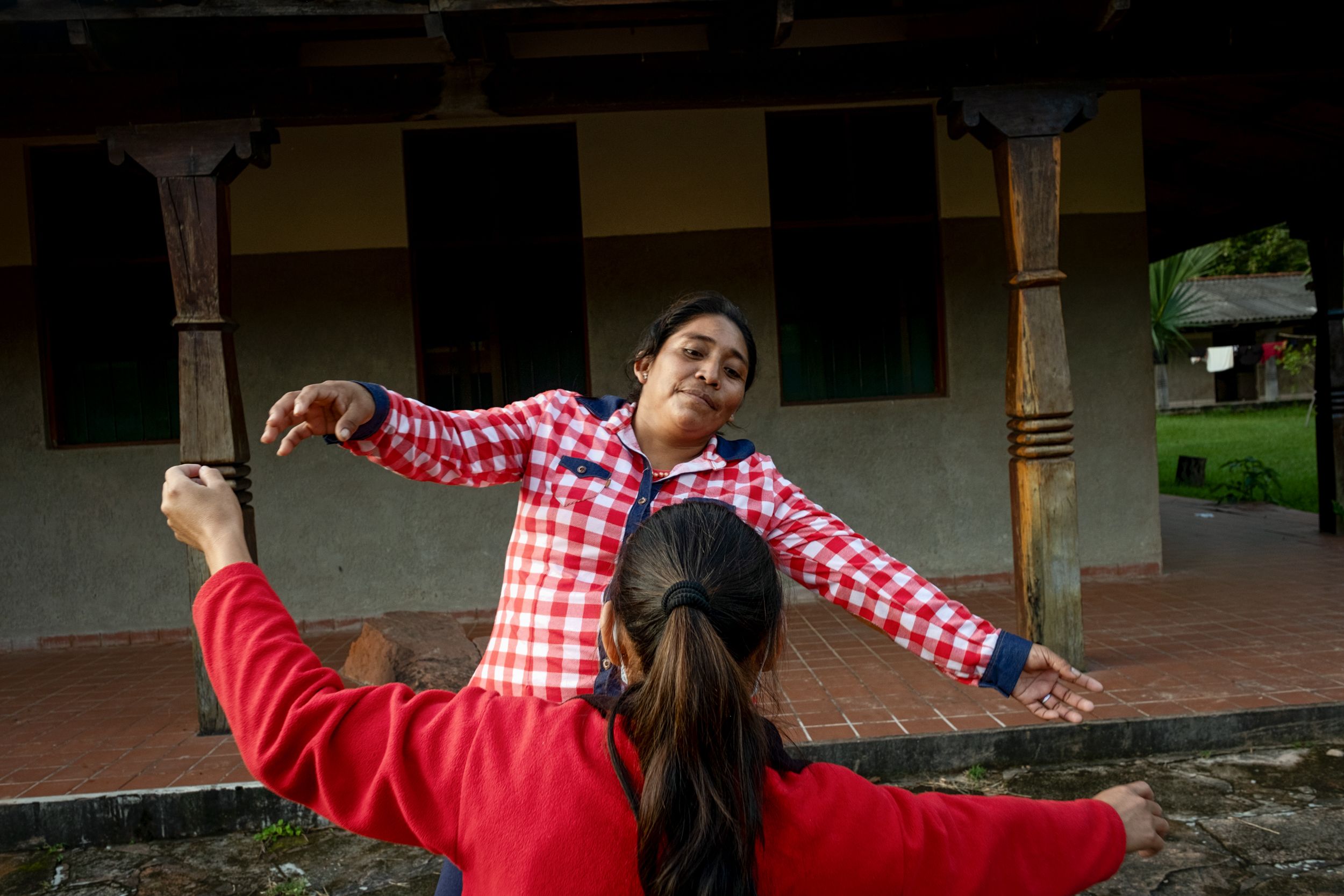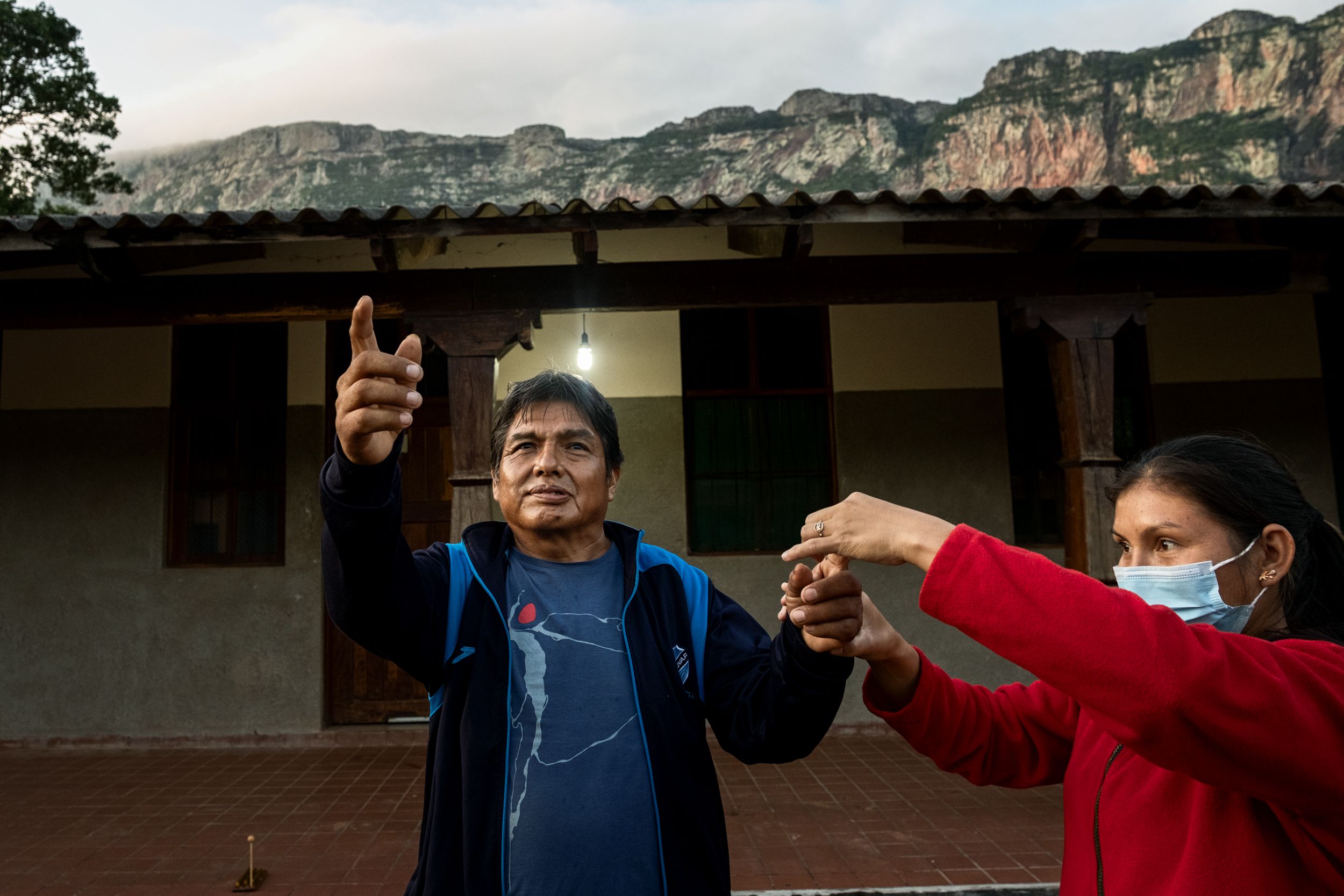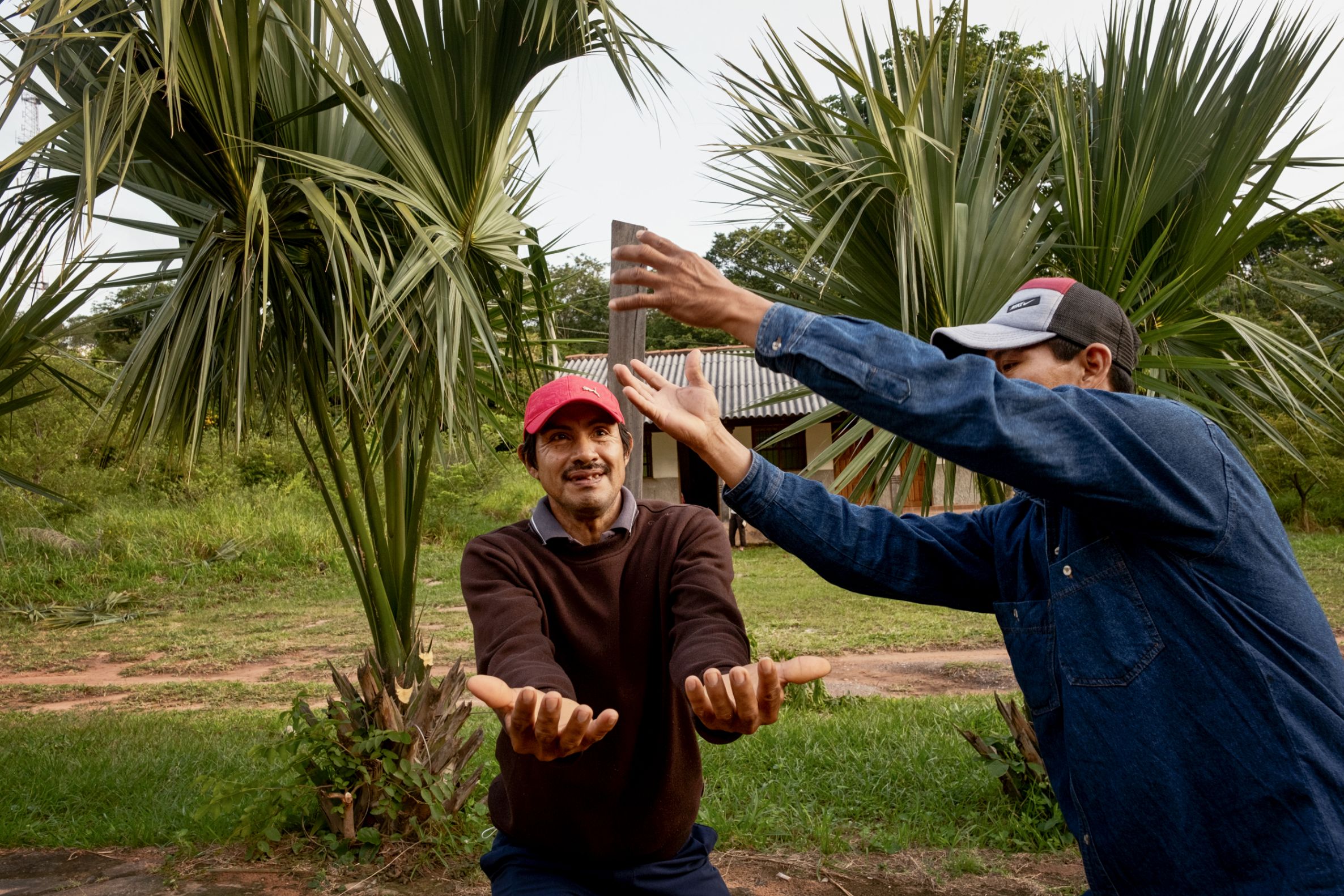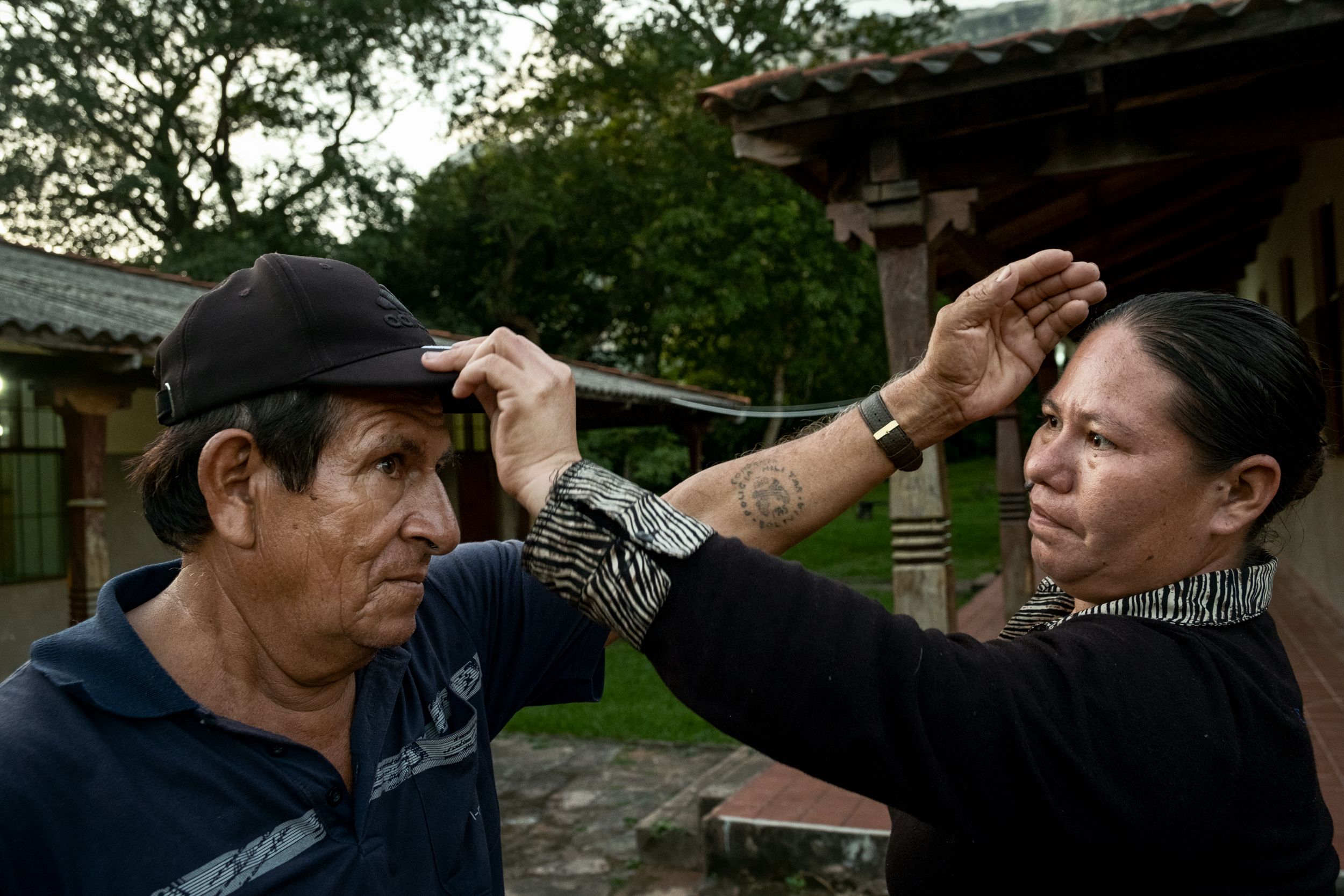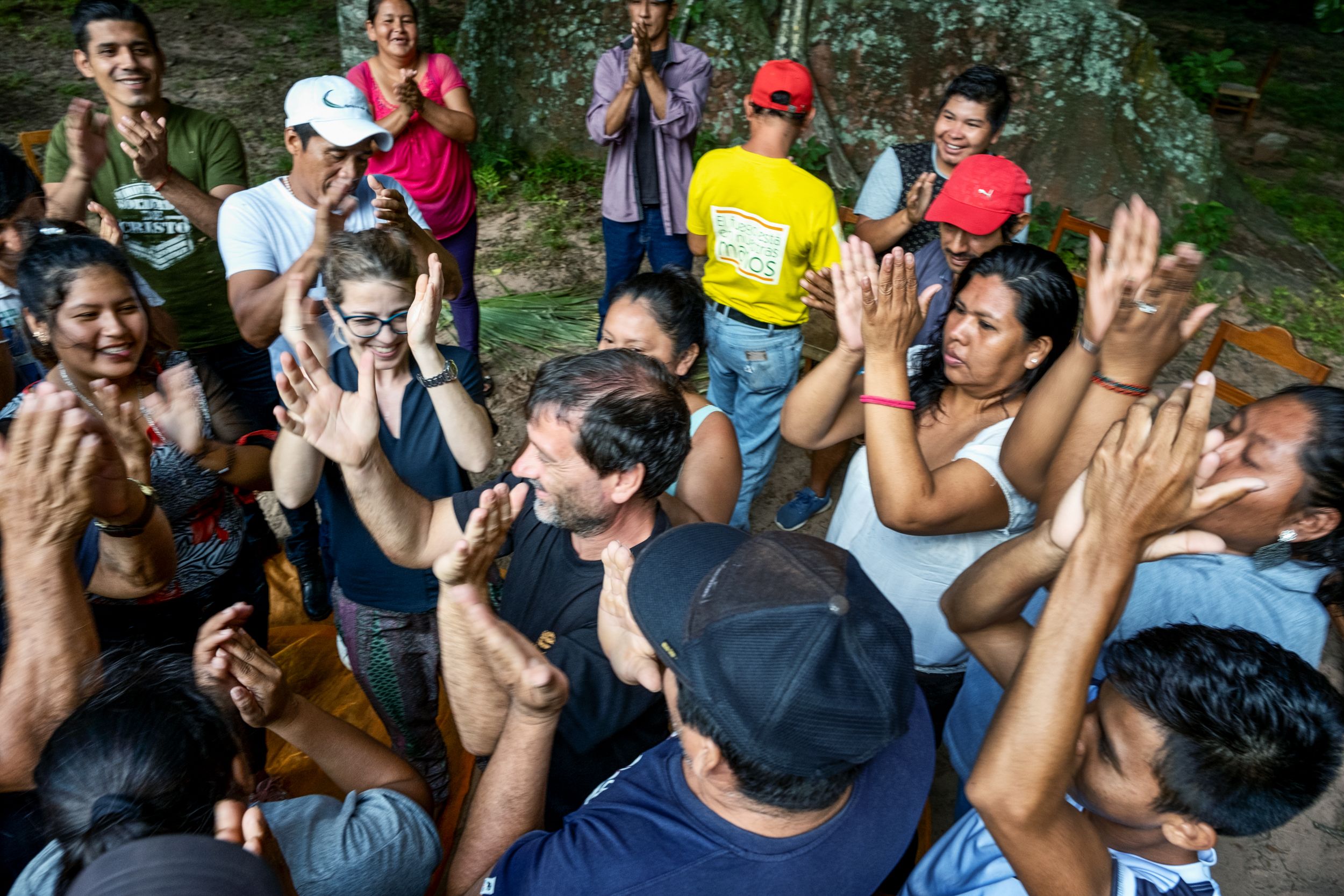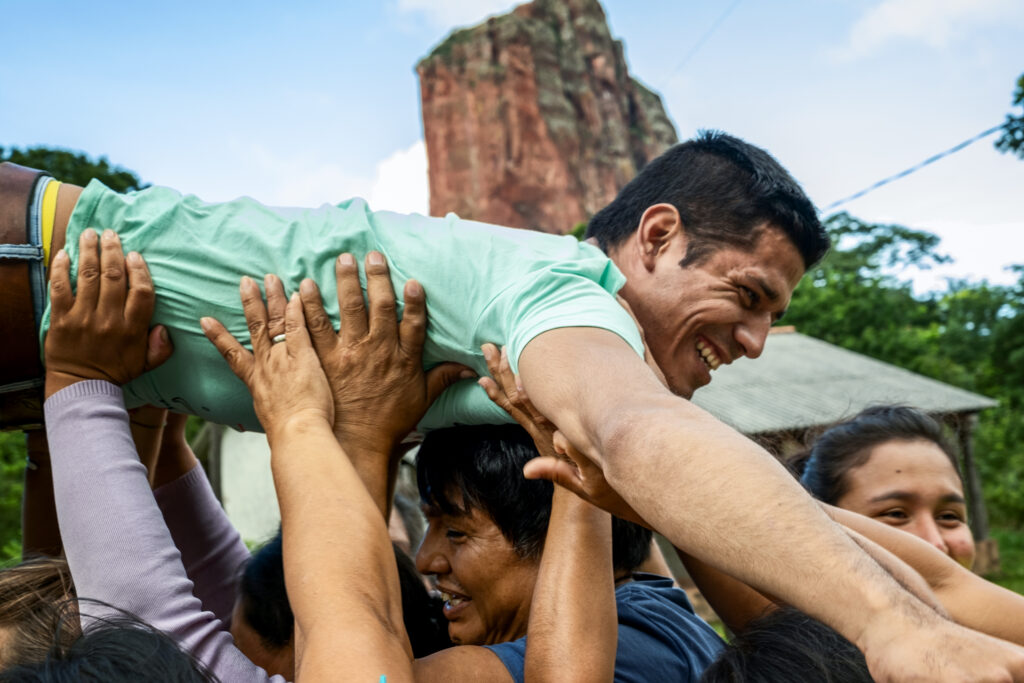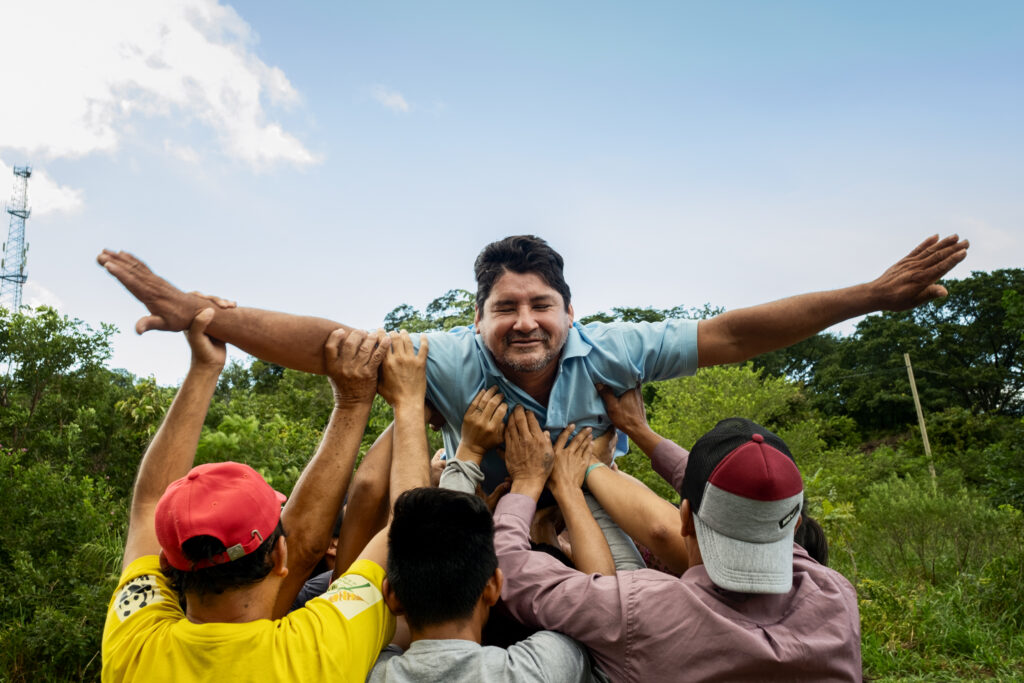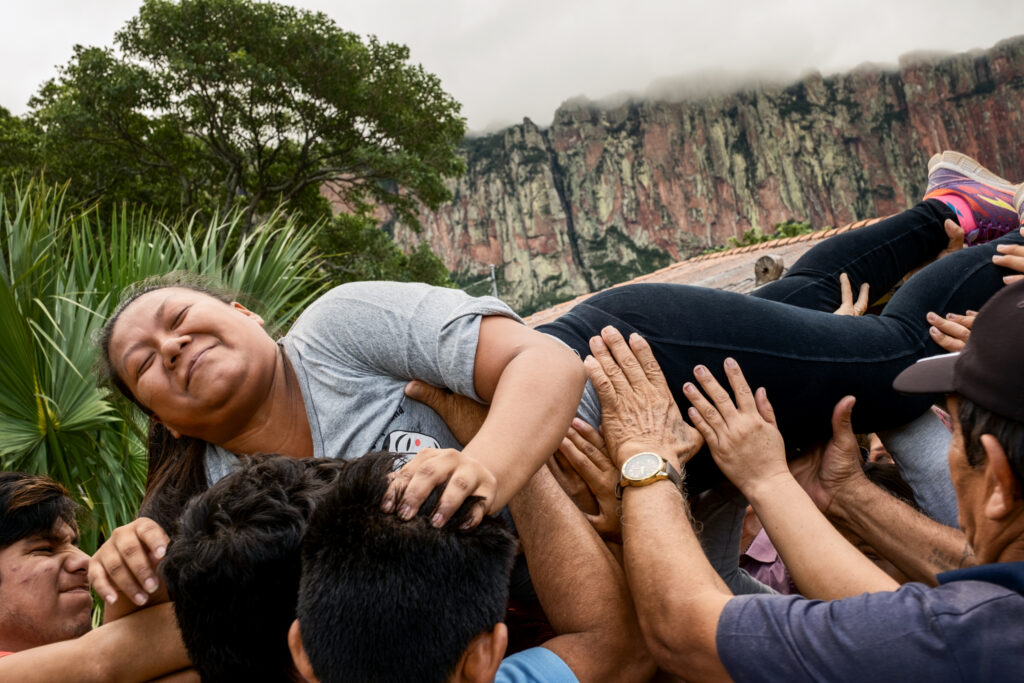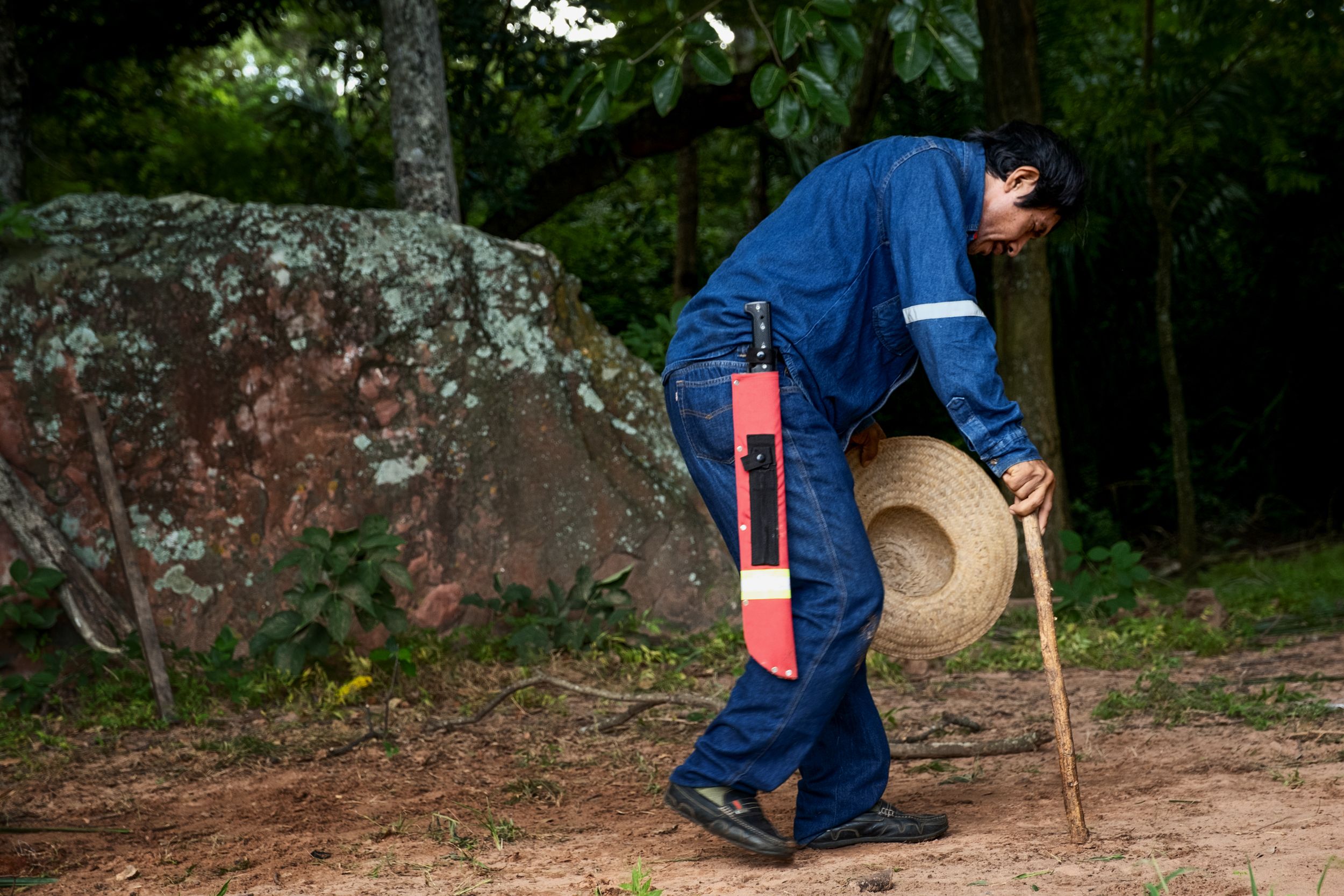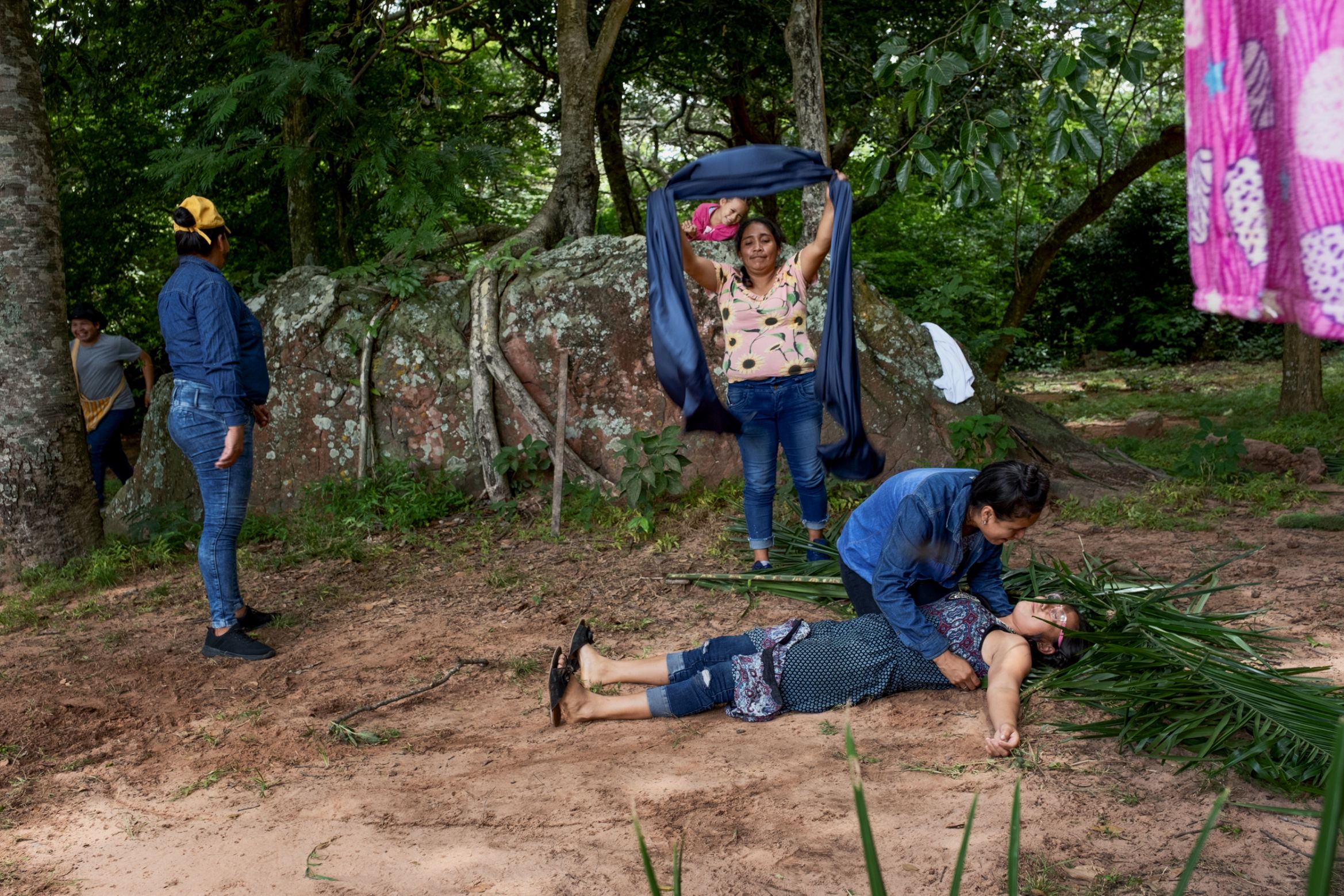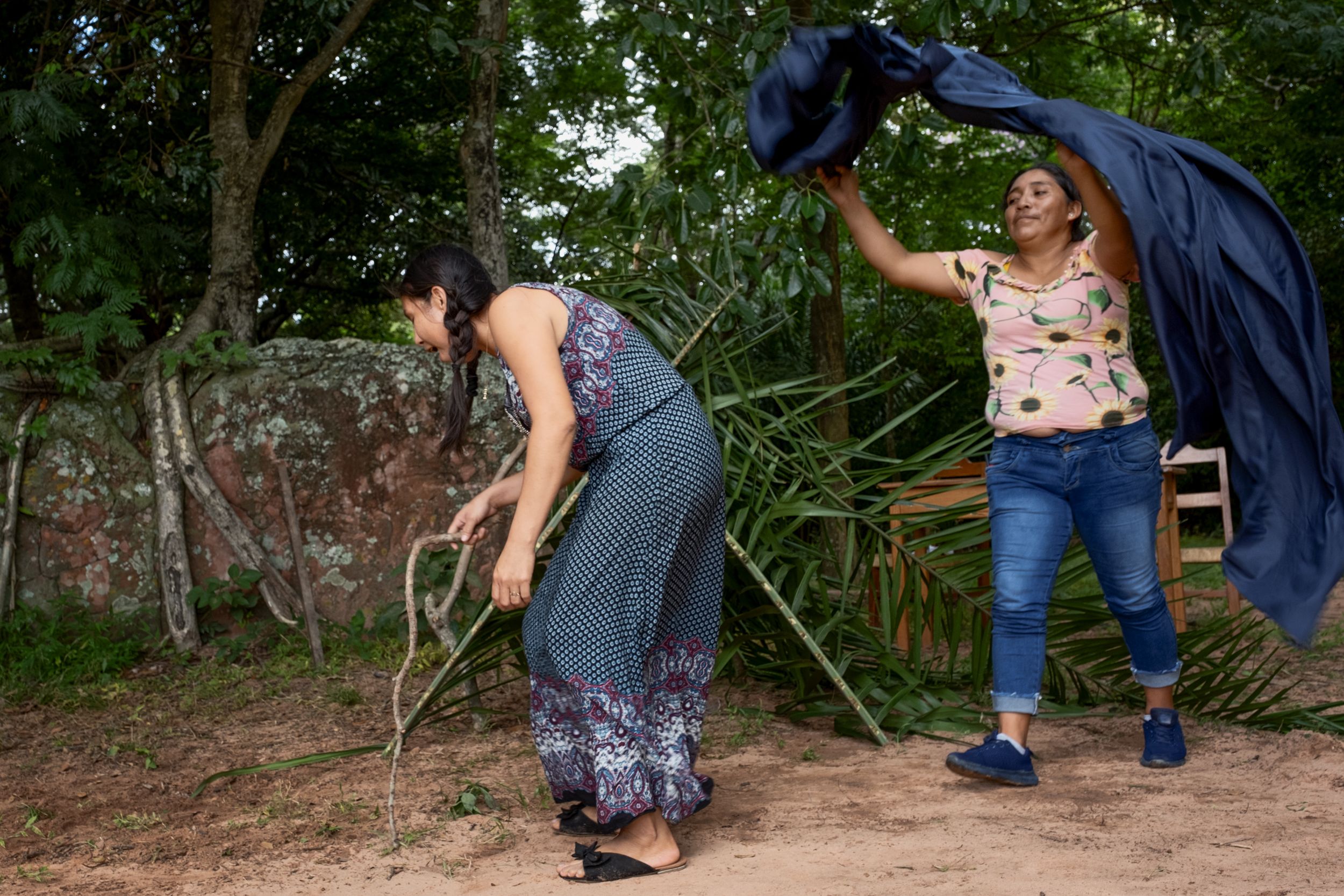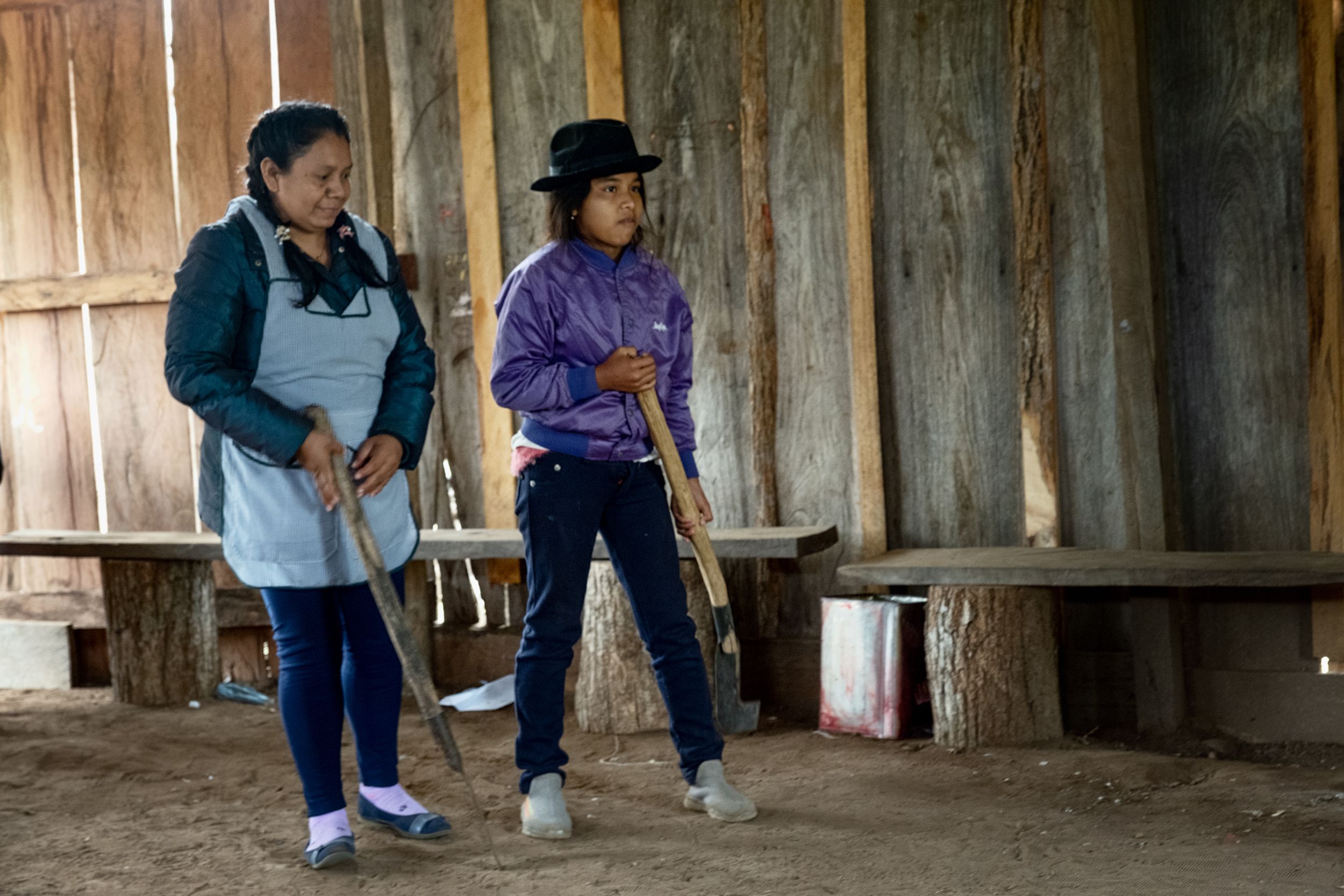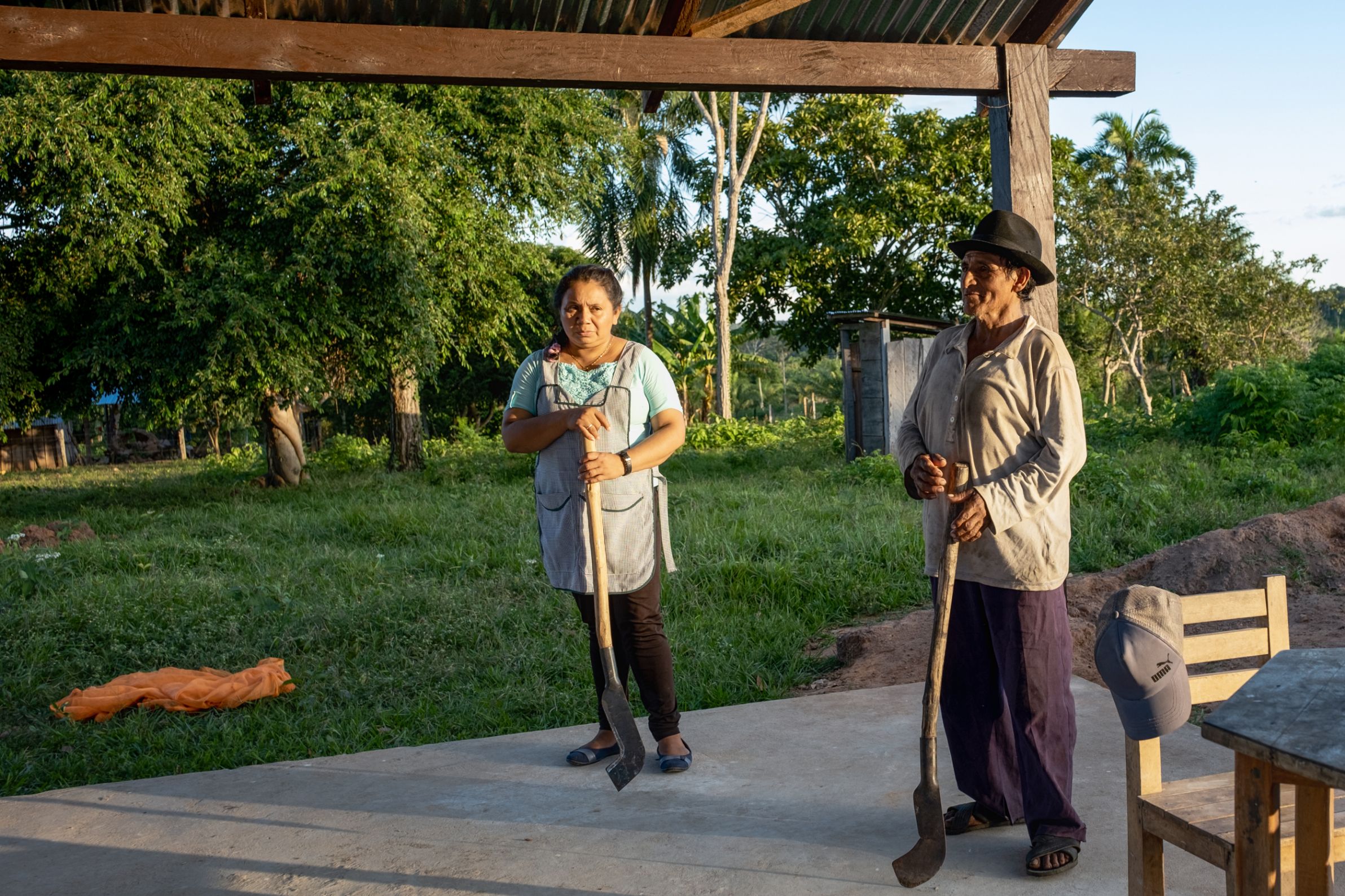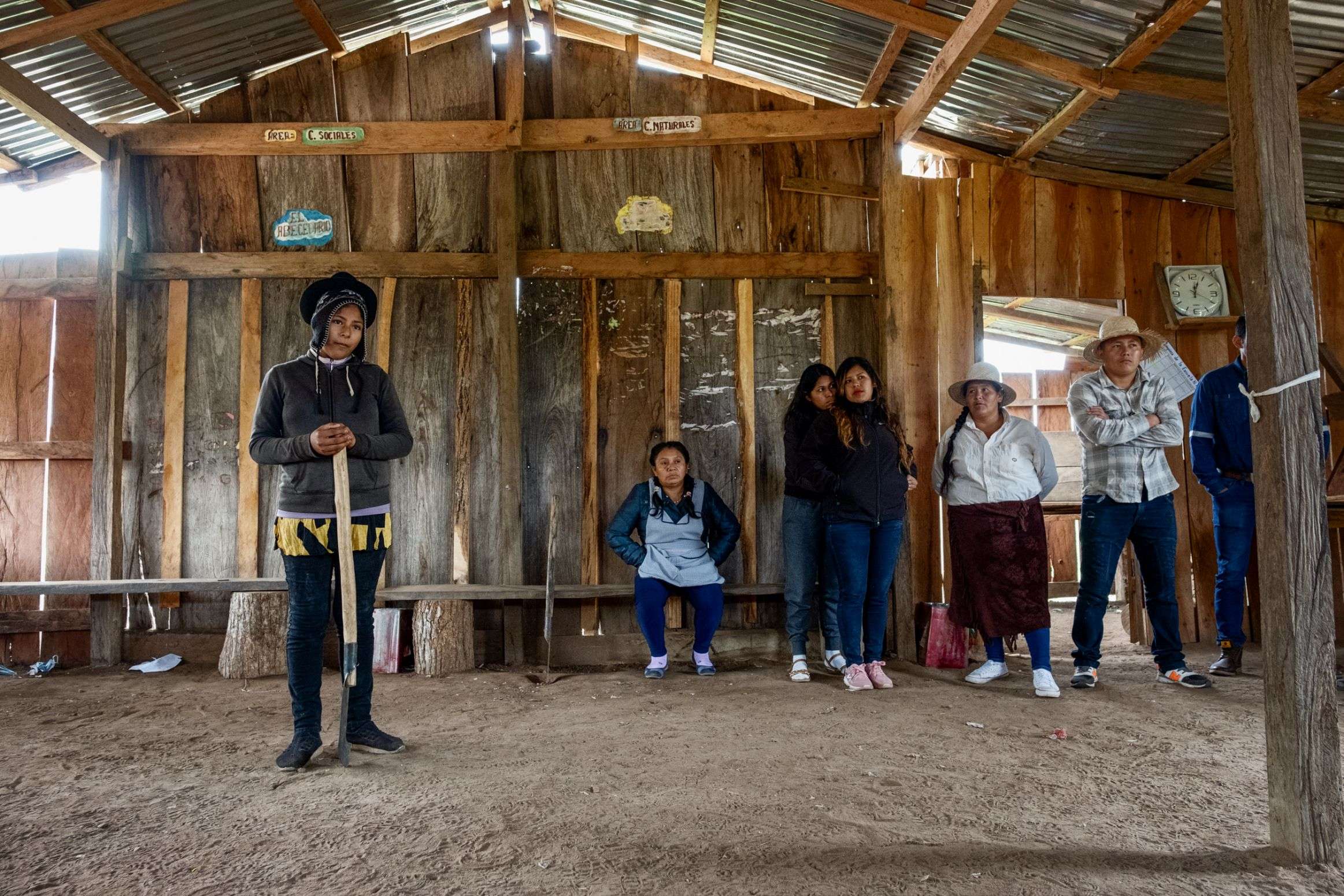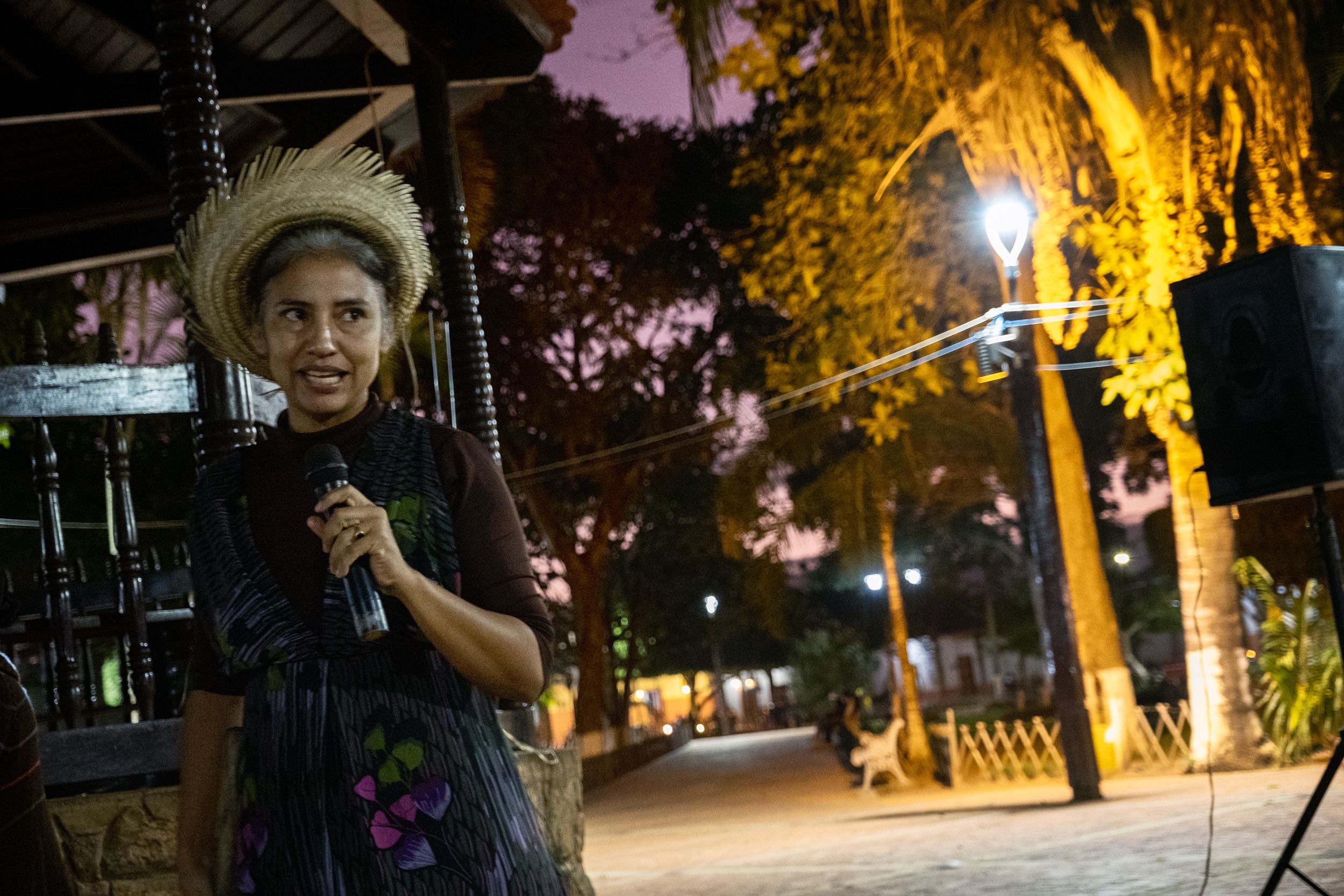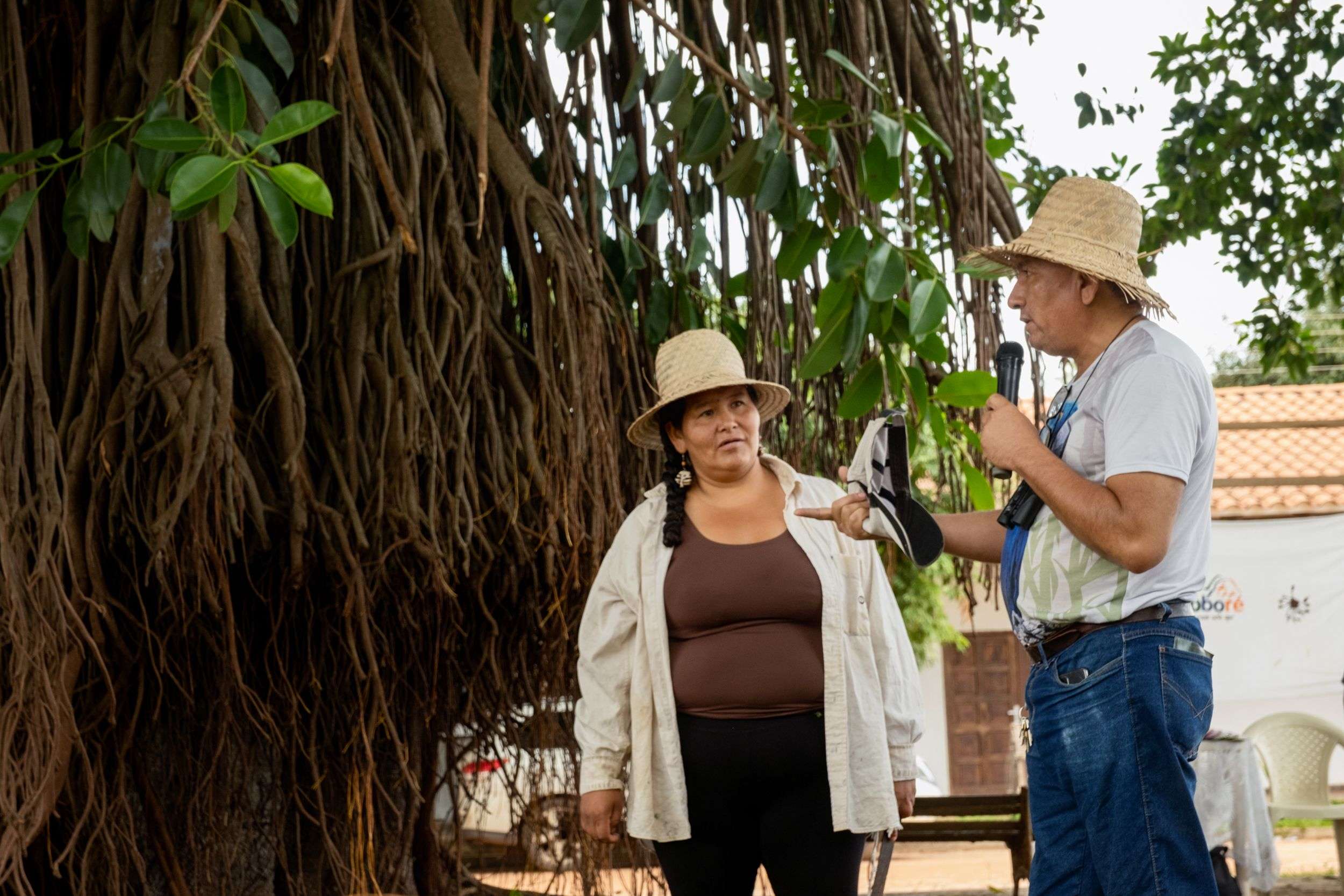Forum Theatre
Creating Forum Theatre
In March 2022, during a five-day workshop and using Forum Theatre methods, a group of 28 participants from 22 different communities in the Chiquitania region played together, shared their own stories and experiences of wildfires and created four short performances. The plays enacted a series of oppressions and conflicts drawn from these individuals’ lived experiences of recurrent fire crises.
Participants from different social groups, including indigenous communities, peasant migrants, farmers and farm labourers had no prior theatrical skill: they were ‘life experts’ selected for their situated knowledge on the issues.
The workshop was an intense individual and collective experience. Techniques from the FT repertoires were used to build an environment of trust and deep listening among the participants, who shared their feelings and emotions as they changed throughout the process.
They reported enjoying the freedom from daily concerns and responsibilities and the feeling to reconnect to their “interior child”.
They also talked about how they learned new perspectives and experiences of fires through the stories of others as well as shared challenges and problems faced by local communities.
The workshop was also a rich site of research, offering an opportunity to understand how people talk, represent, and embody situations of oppression linked to wildfires, enabling conflicts to be explored in a safe environment. To further understand these aspects, interviews were conducted with all workshop participants.
Staging Public Dialogue
Seven participants were selected to perform the FT play in four locations in the Chiquitania region: Roboré, San José de Chiquitos, San Ignacio de Velasco and Concepción. These municipalities includes some of the areas most affected by fires in recent years as well as hosting a variety of social groups including indigenous, peasant, Mennonite and urban communities.
Two of the fours FT plays were performed 14 times during a two-week tour. The locations of the performances included urban settings (e.g., the main town square in each municipality) and mainly rural indigenous and peasant communities, some of them quite remote. Audiences vary greatly from groups of over 100 people to small groups of 15 or 20 individuals. We performed in front of high school students as well as for younger kids; but we tried mostly to engage with adults with lived experiences of wildfires.
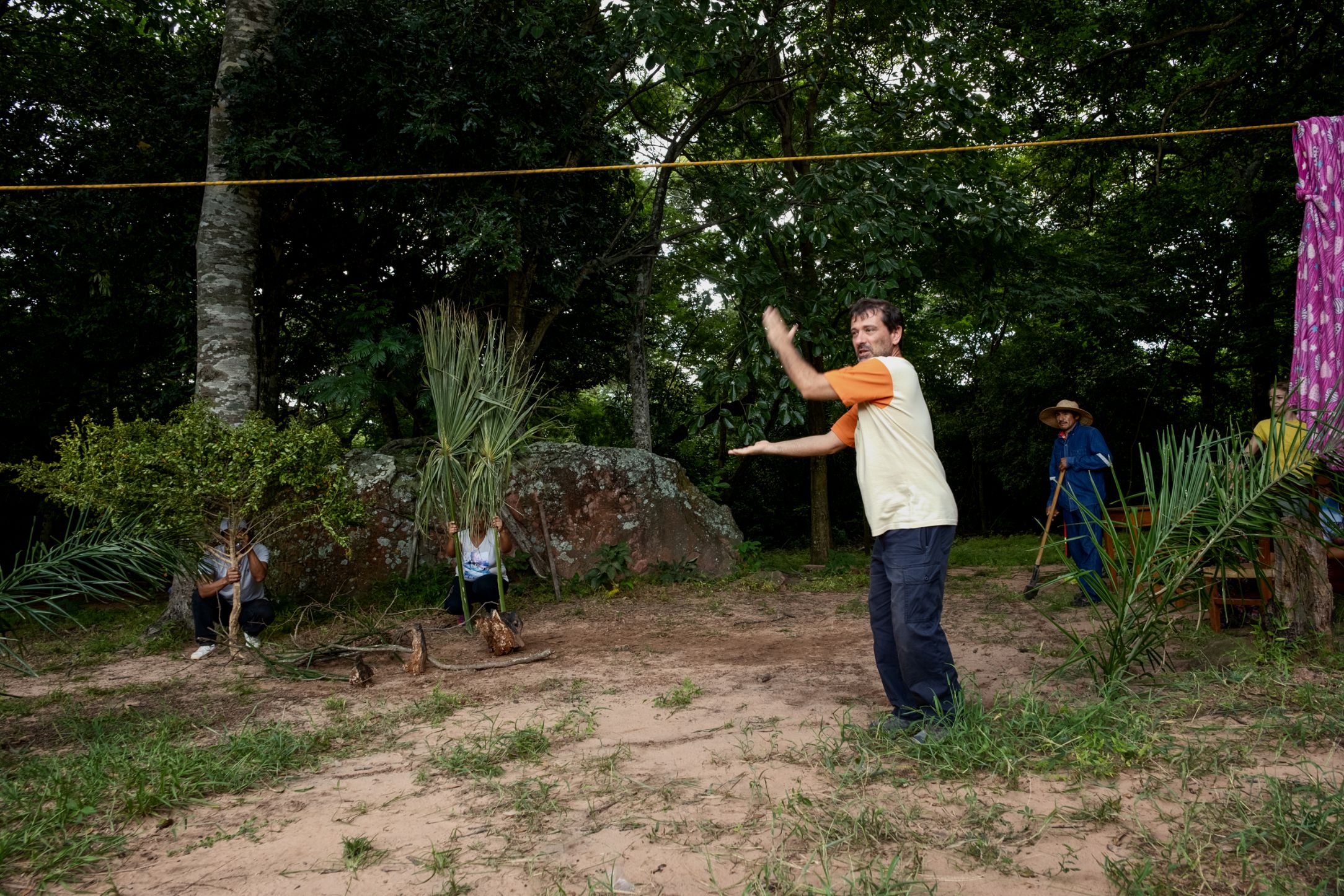
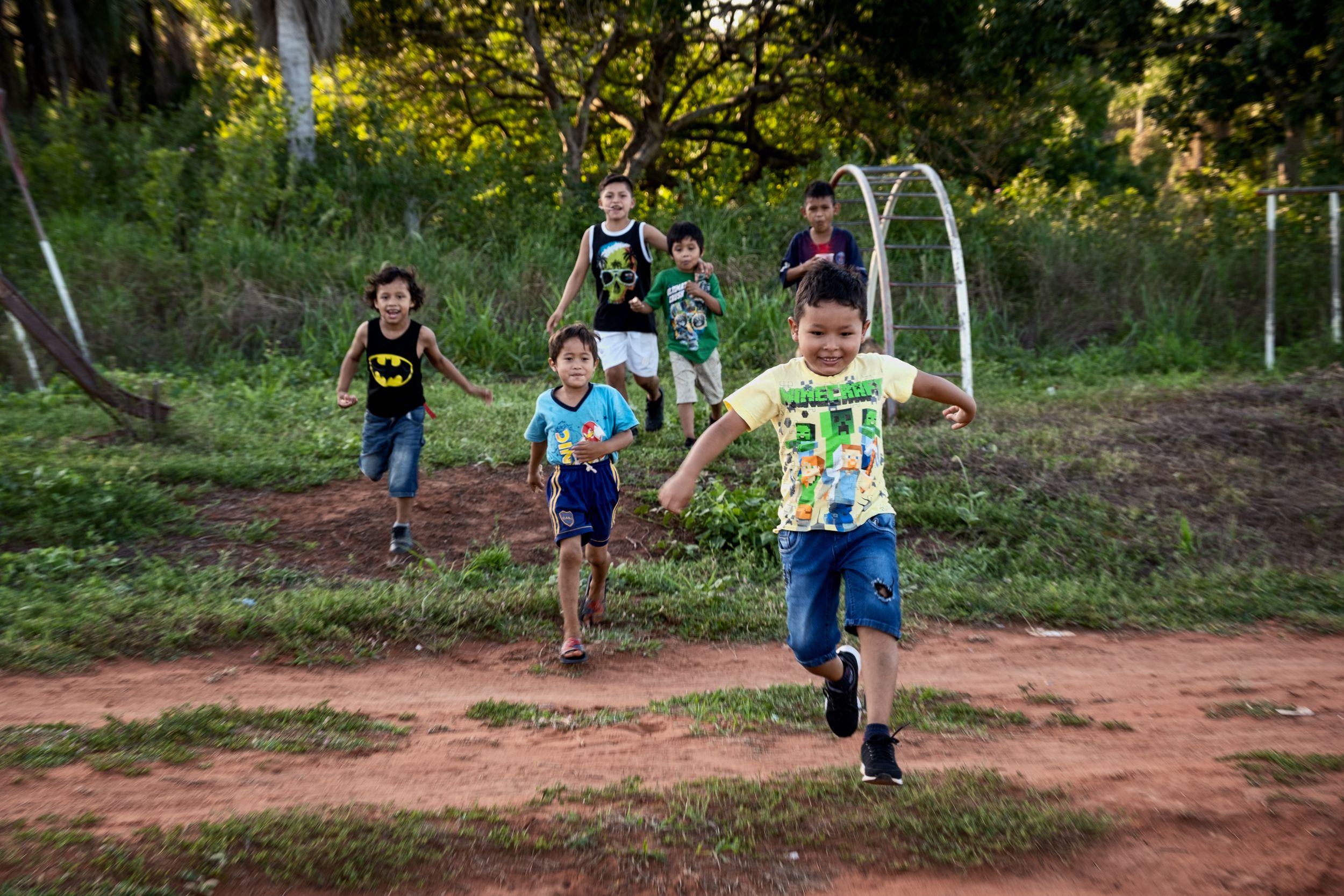
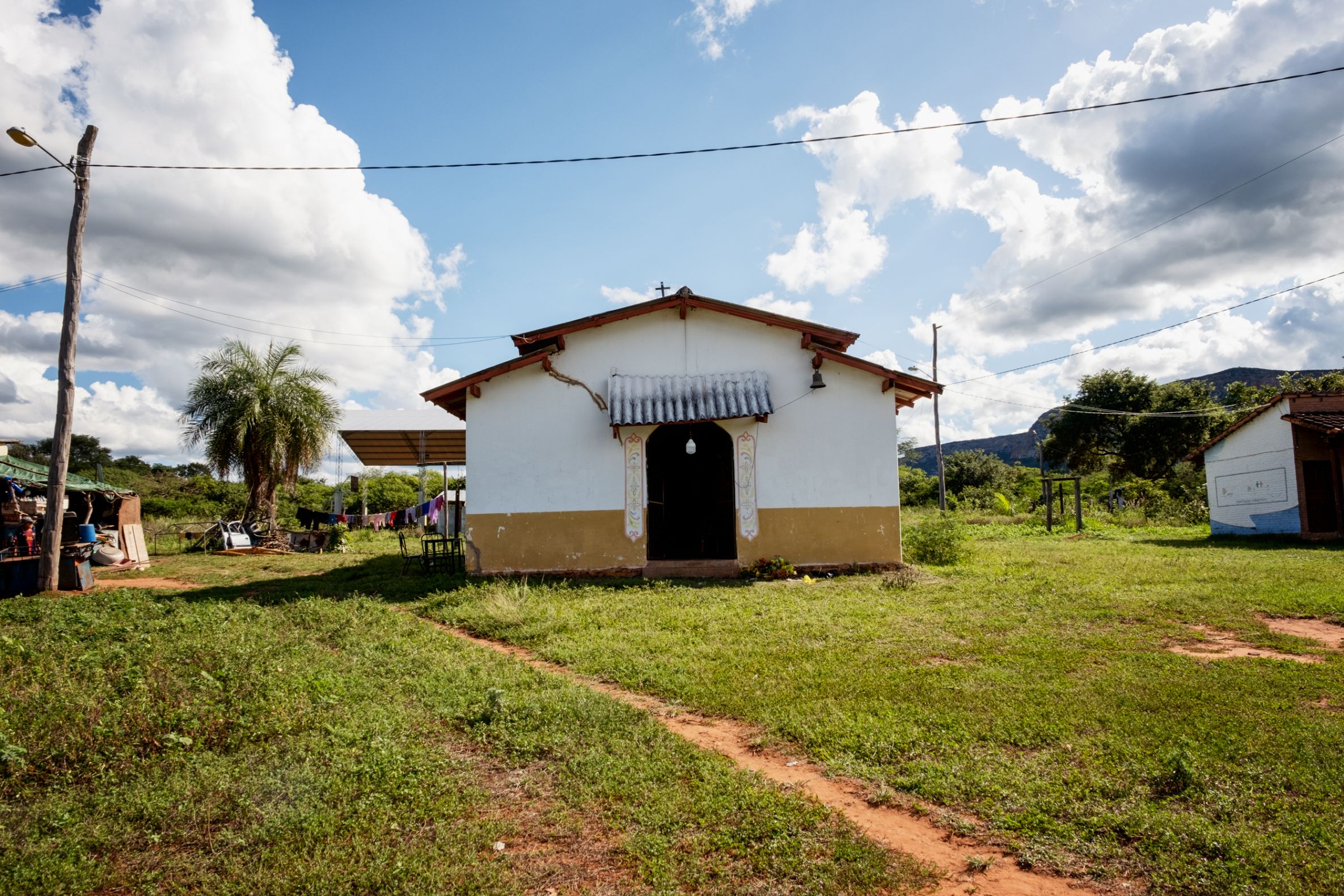
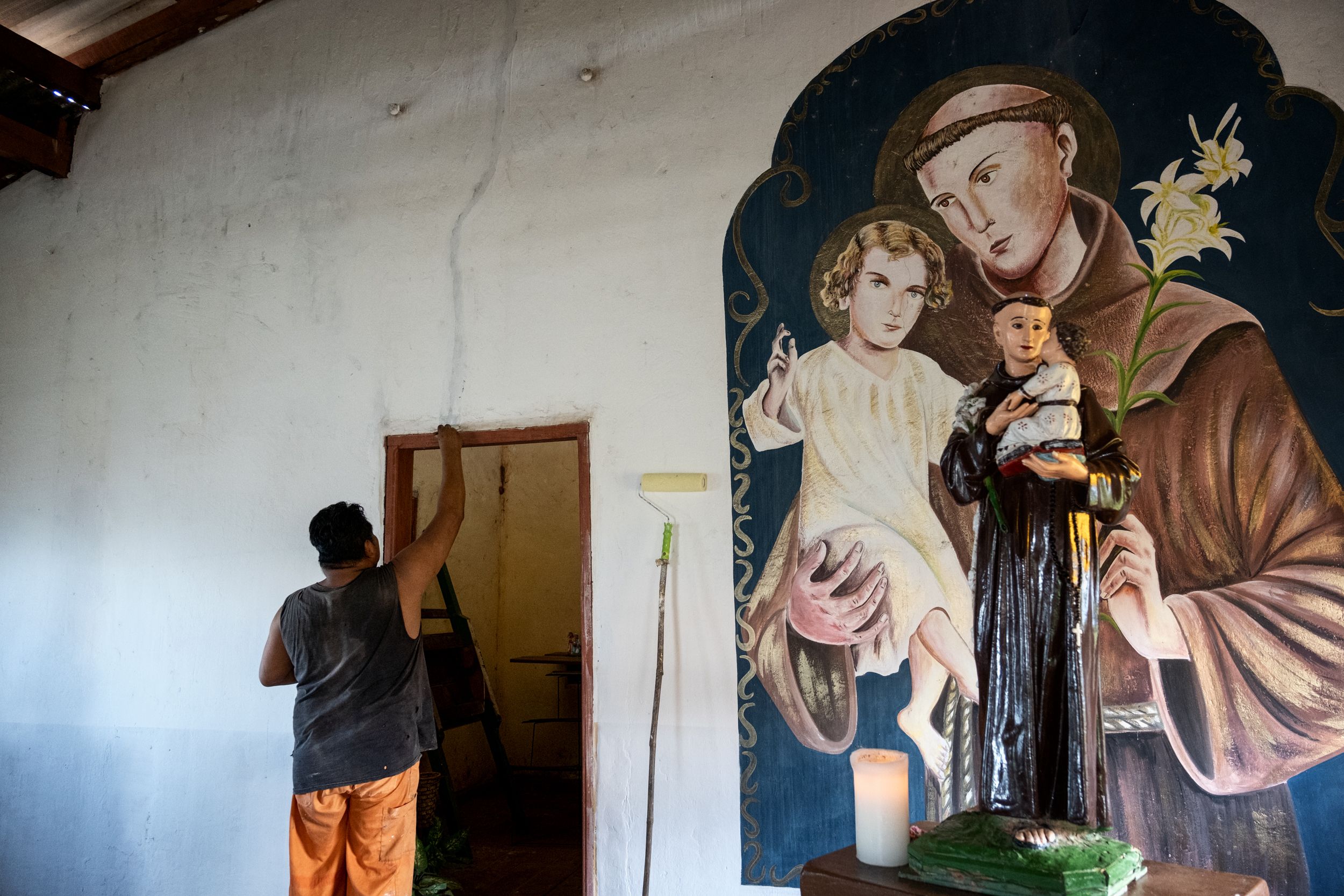
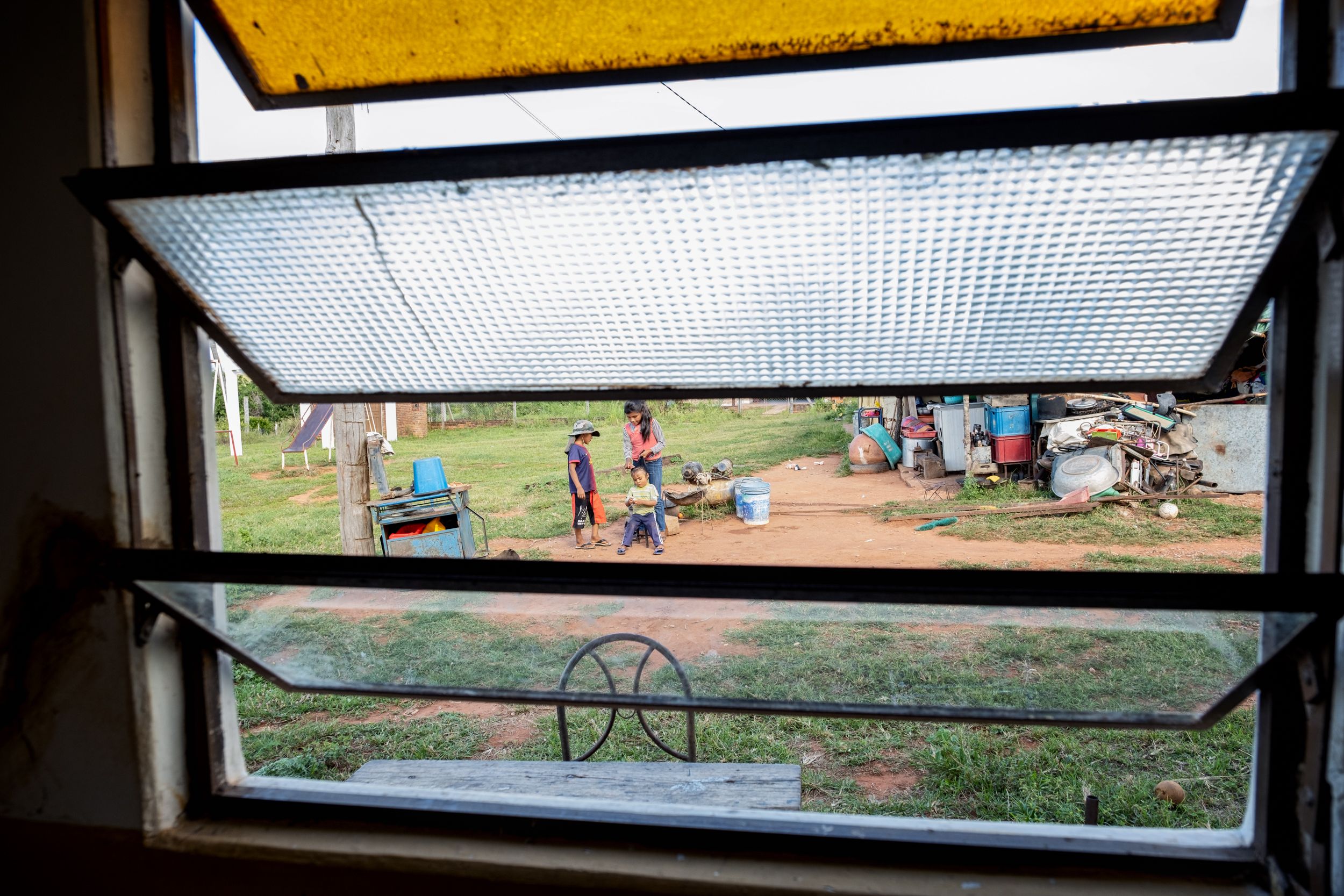
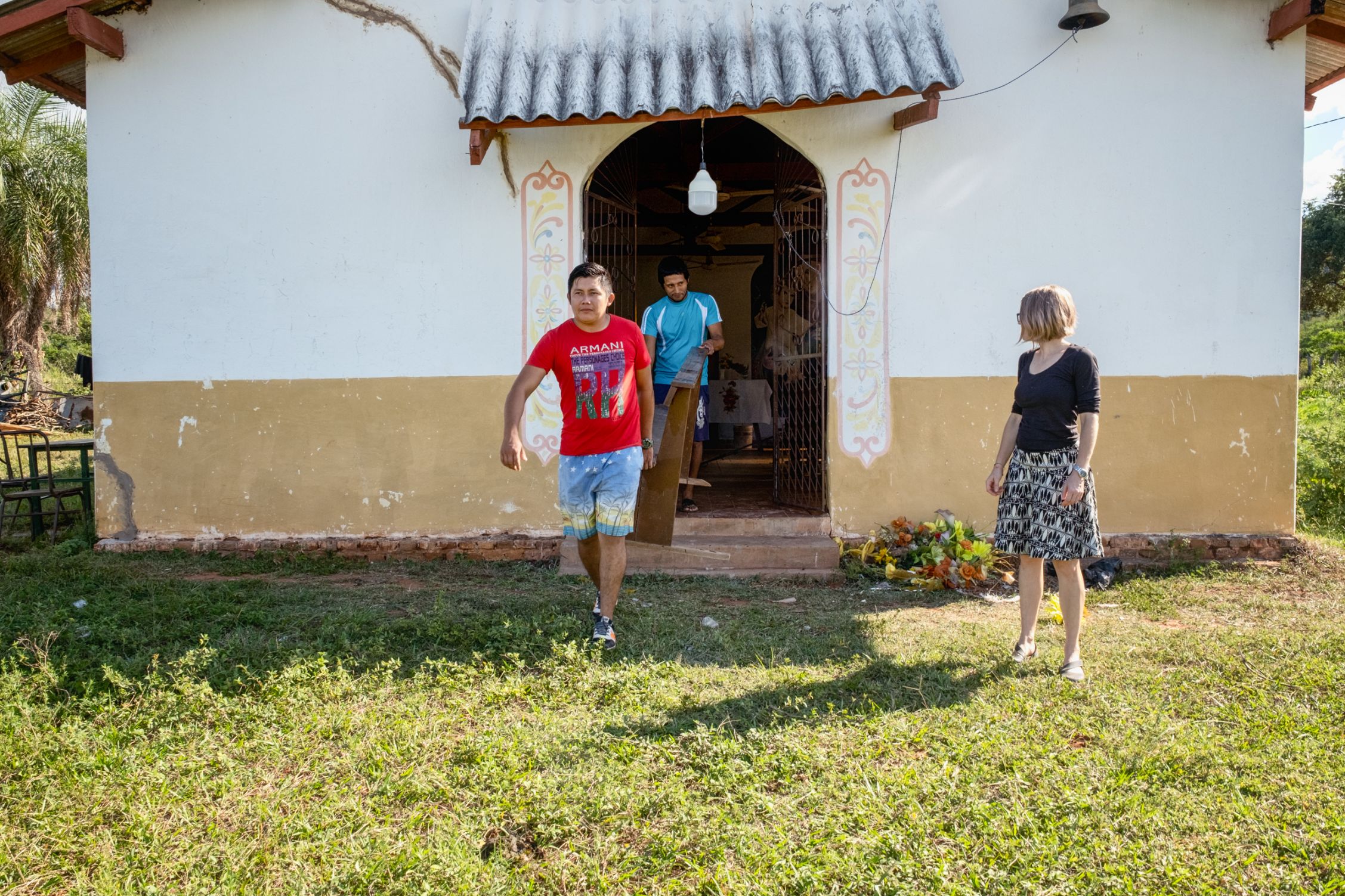
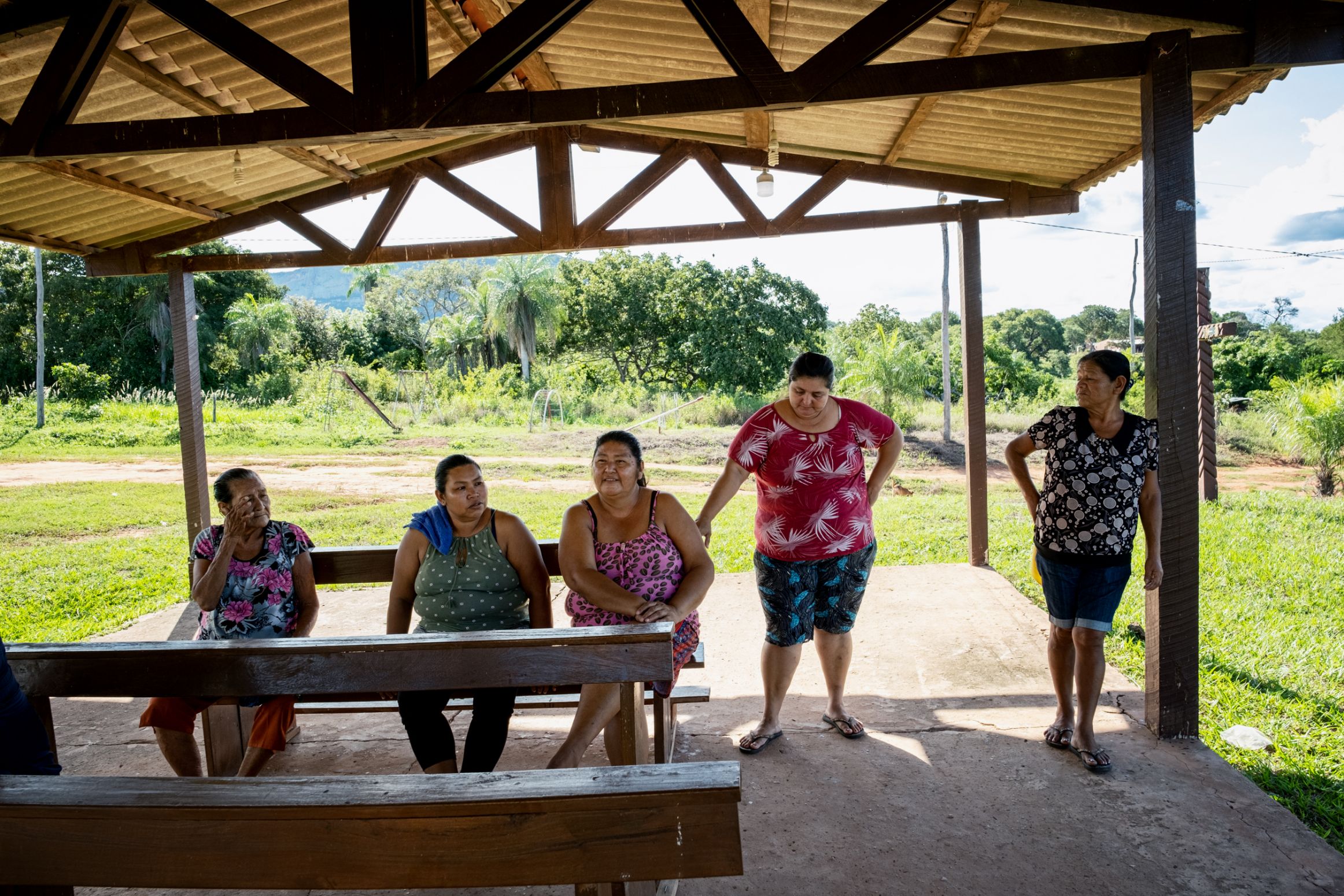
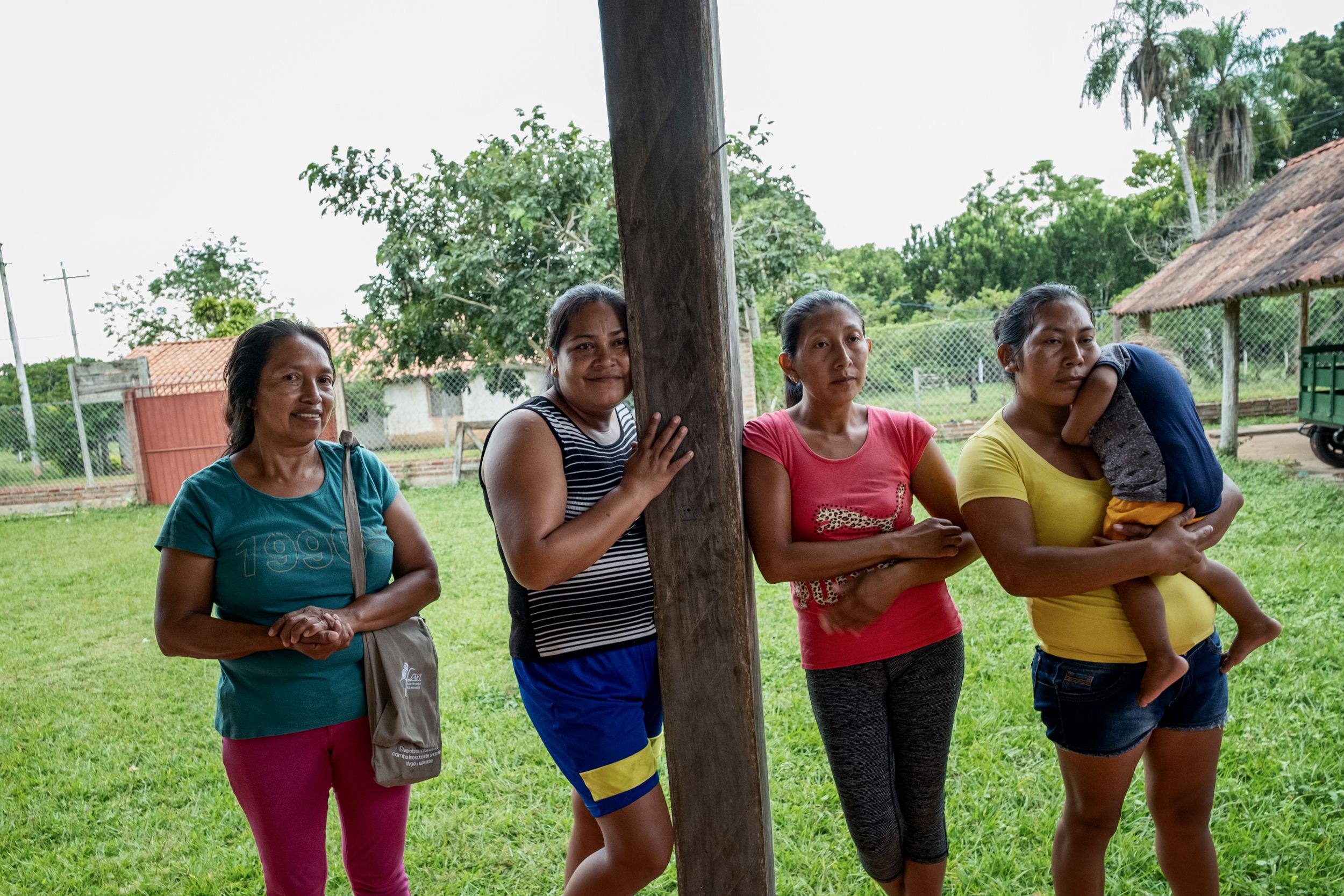
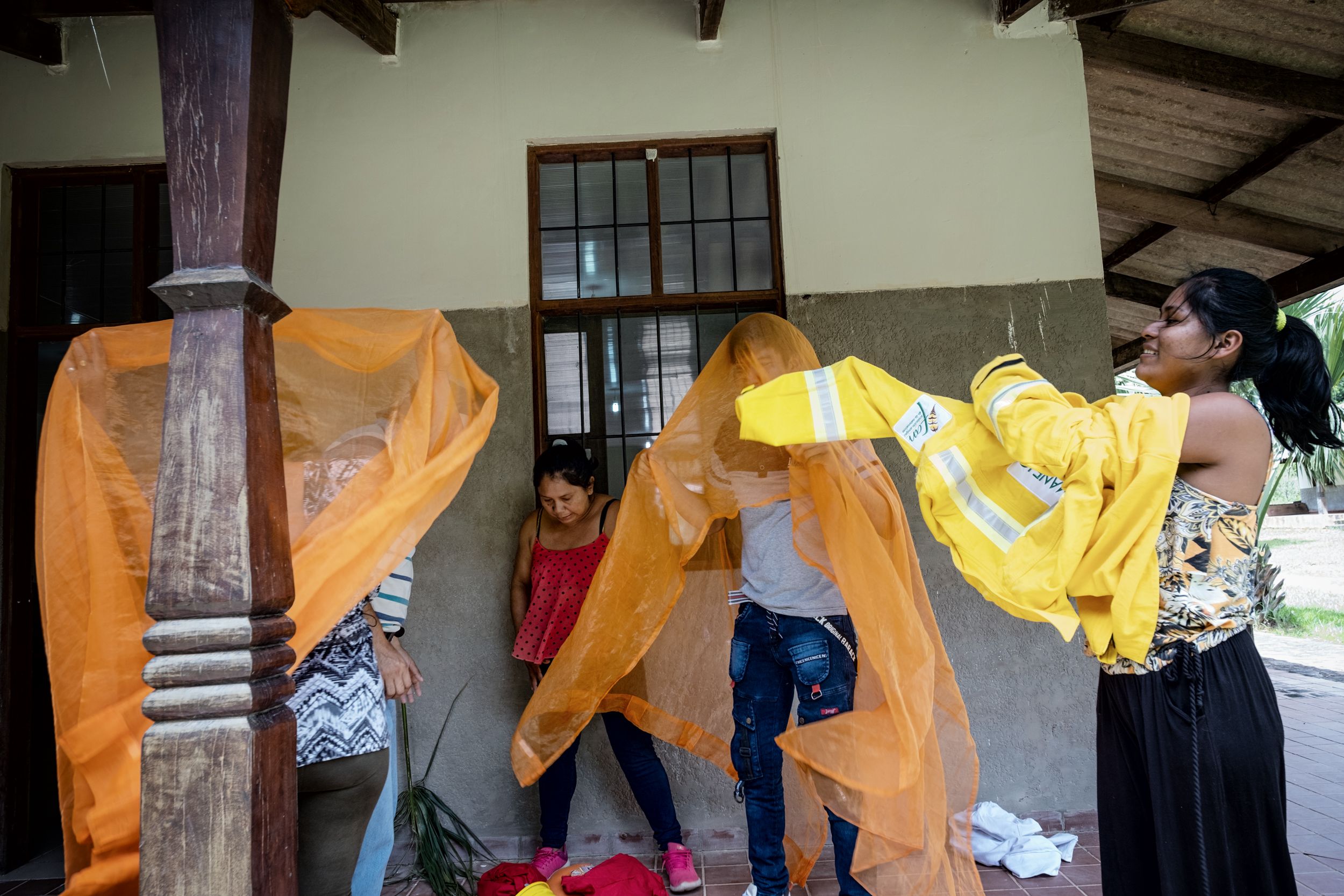
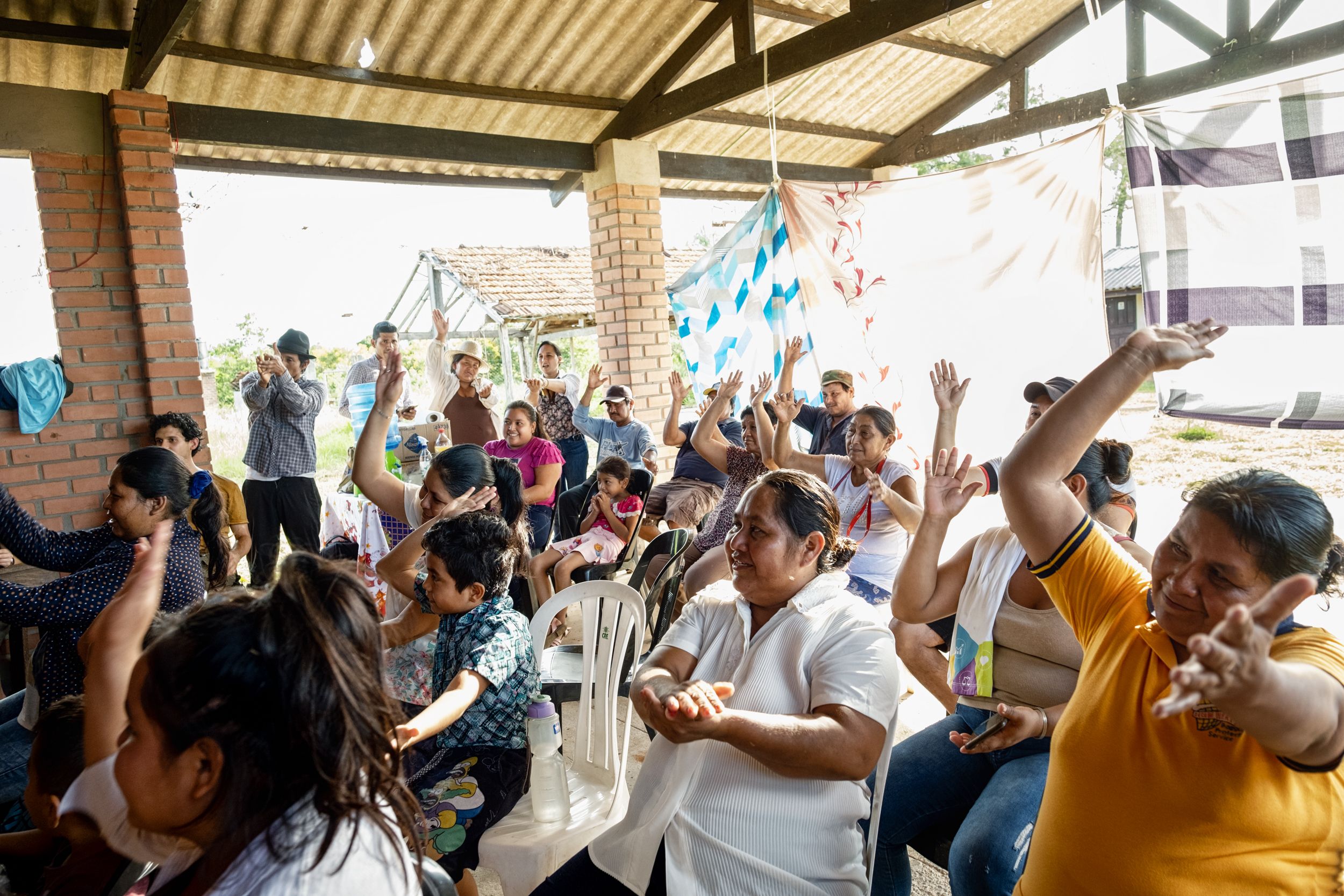
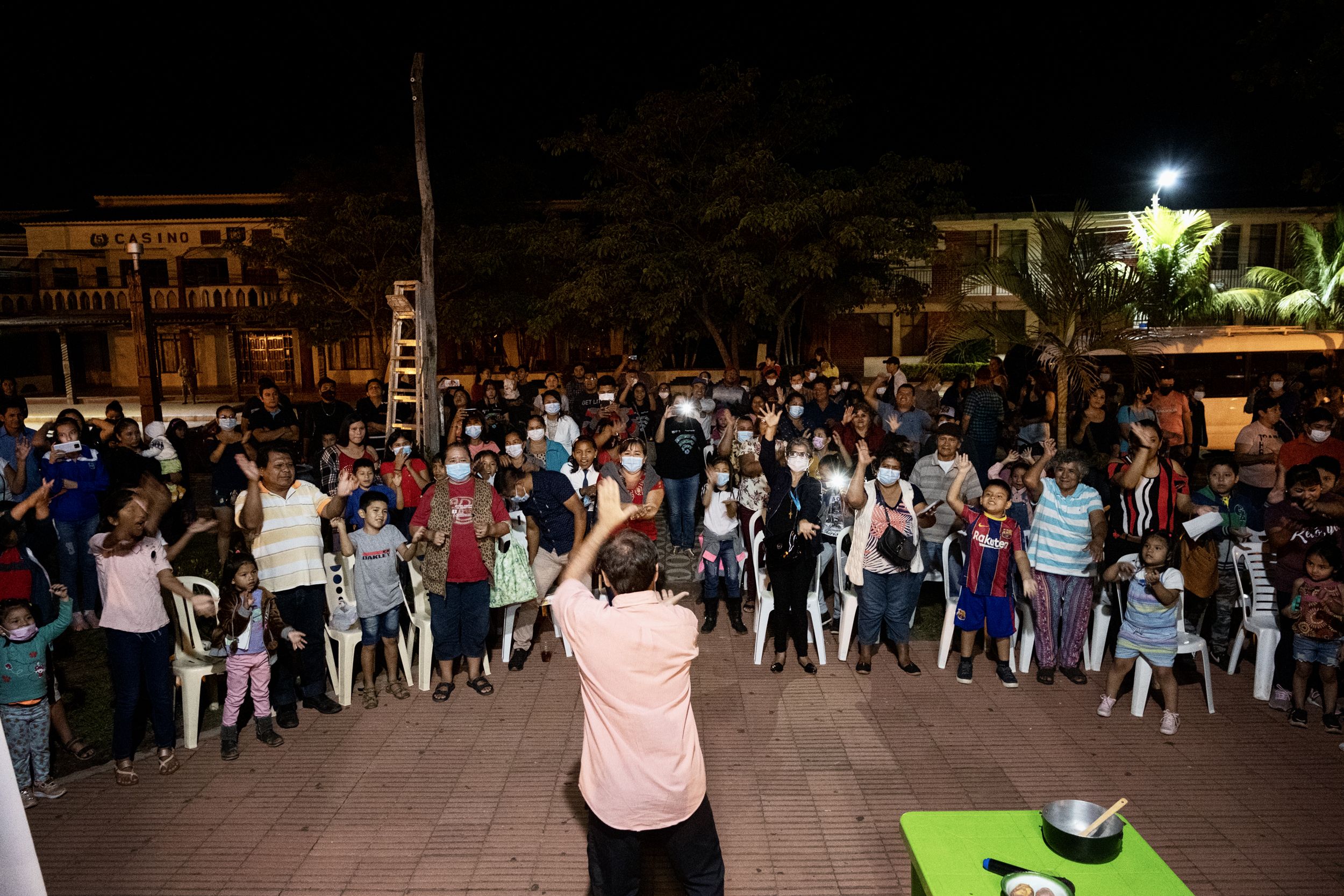
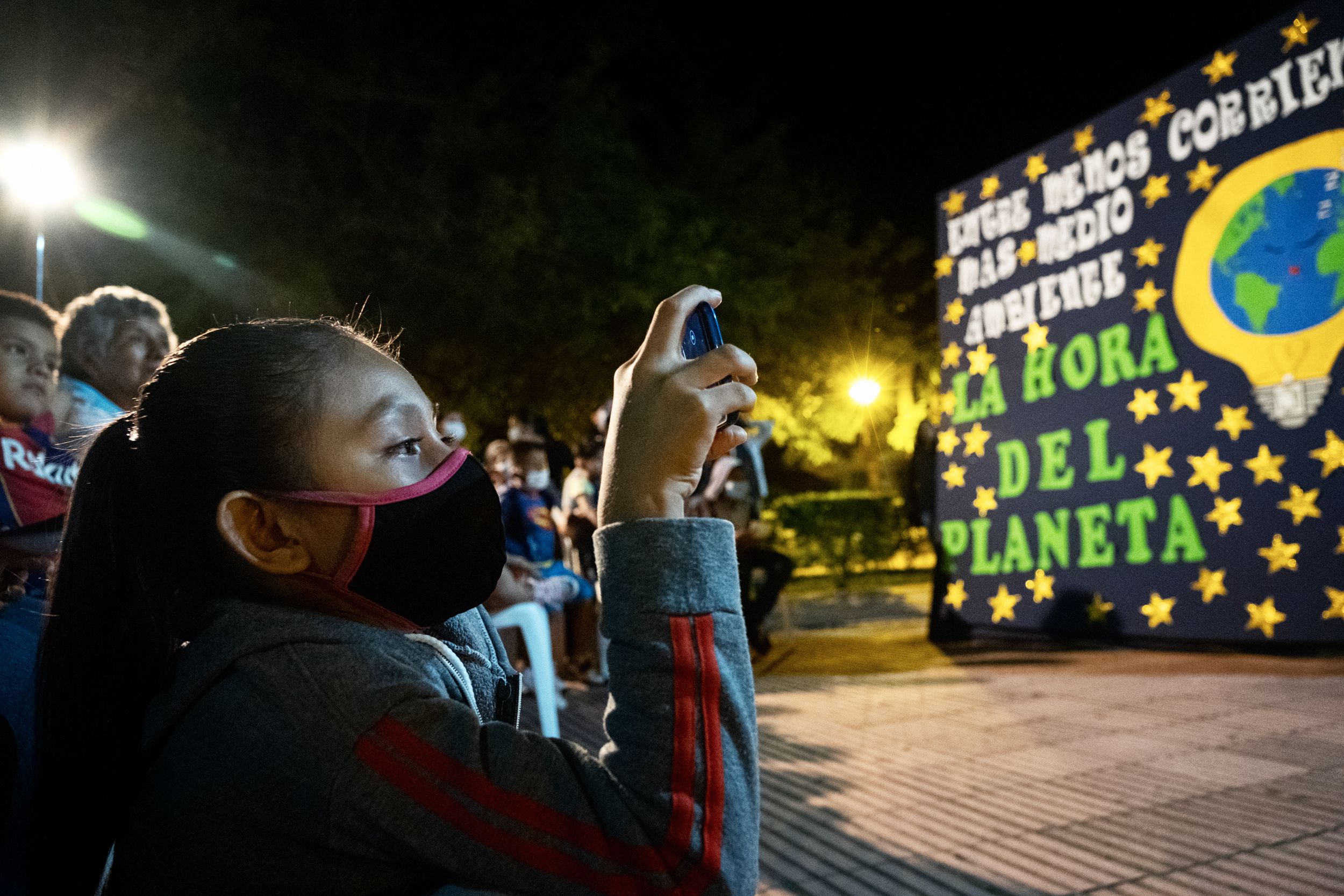
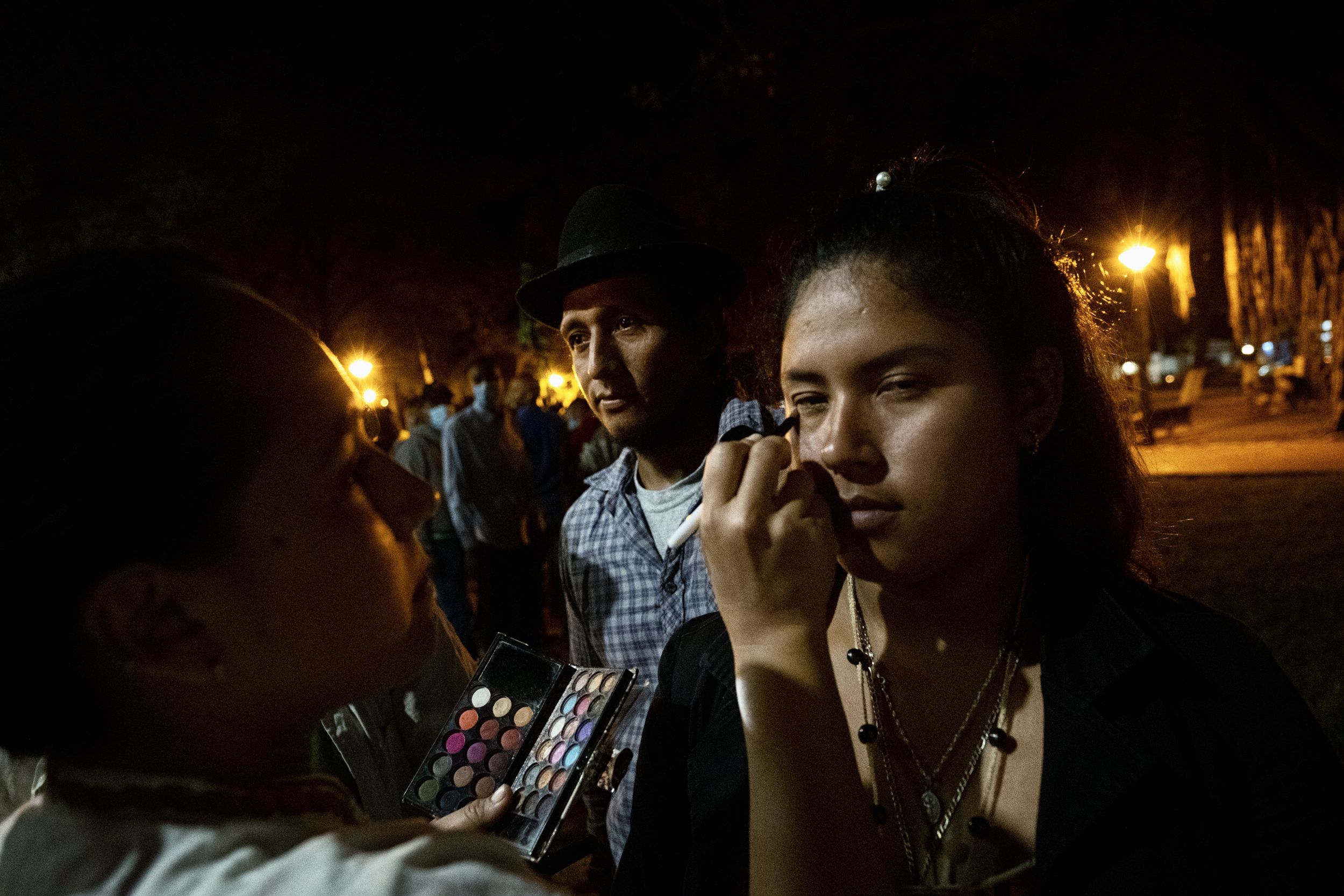
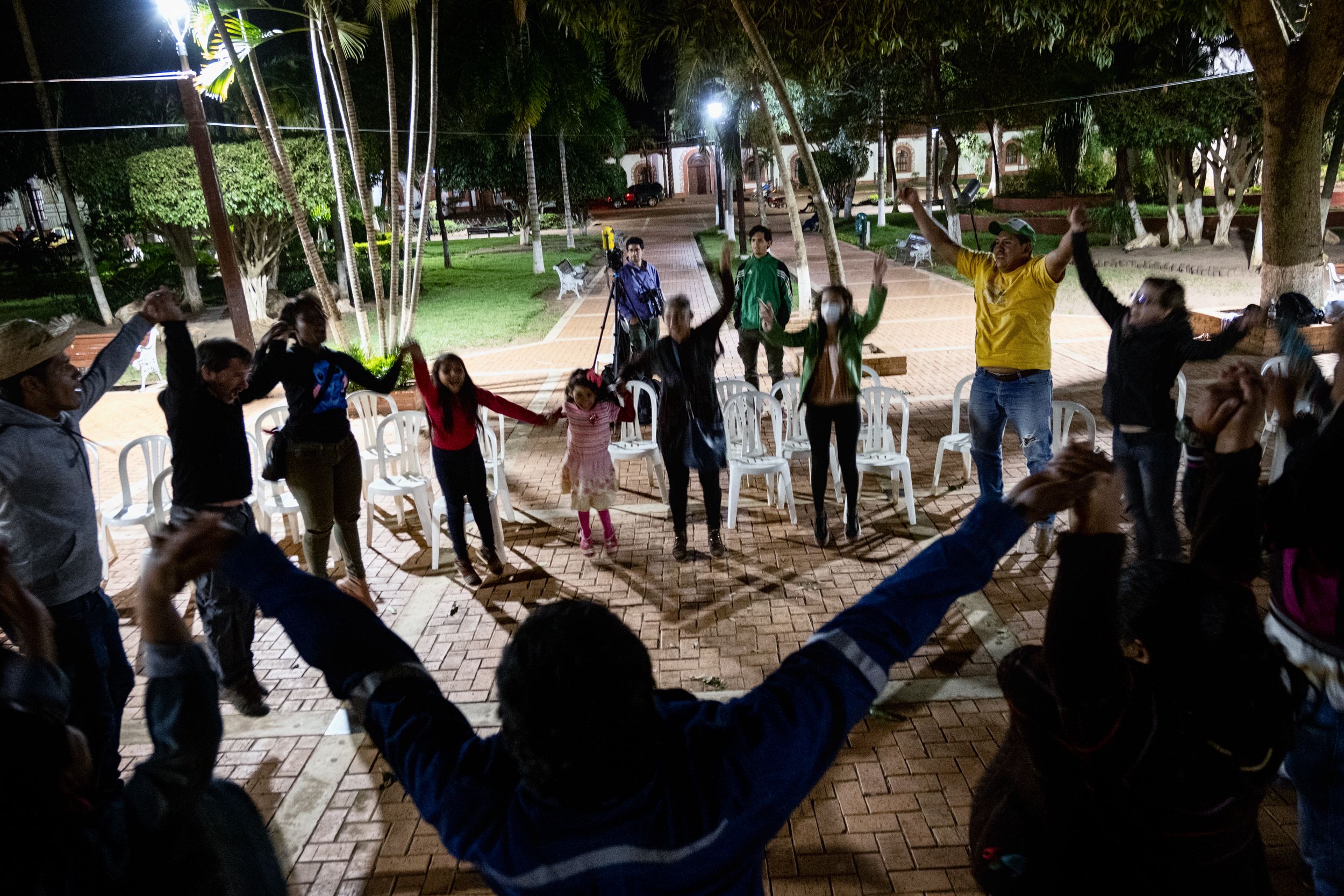
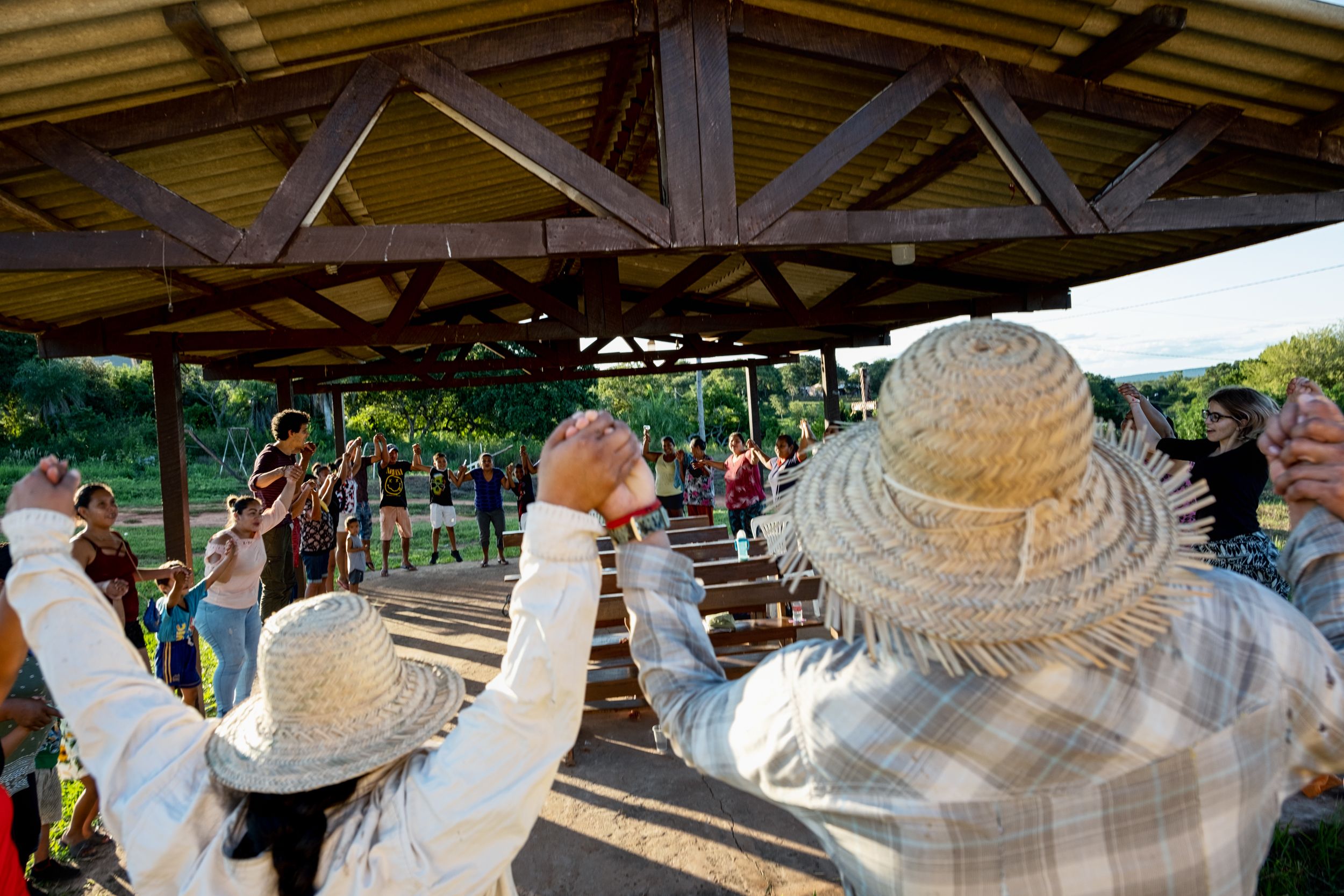
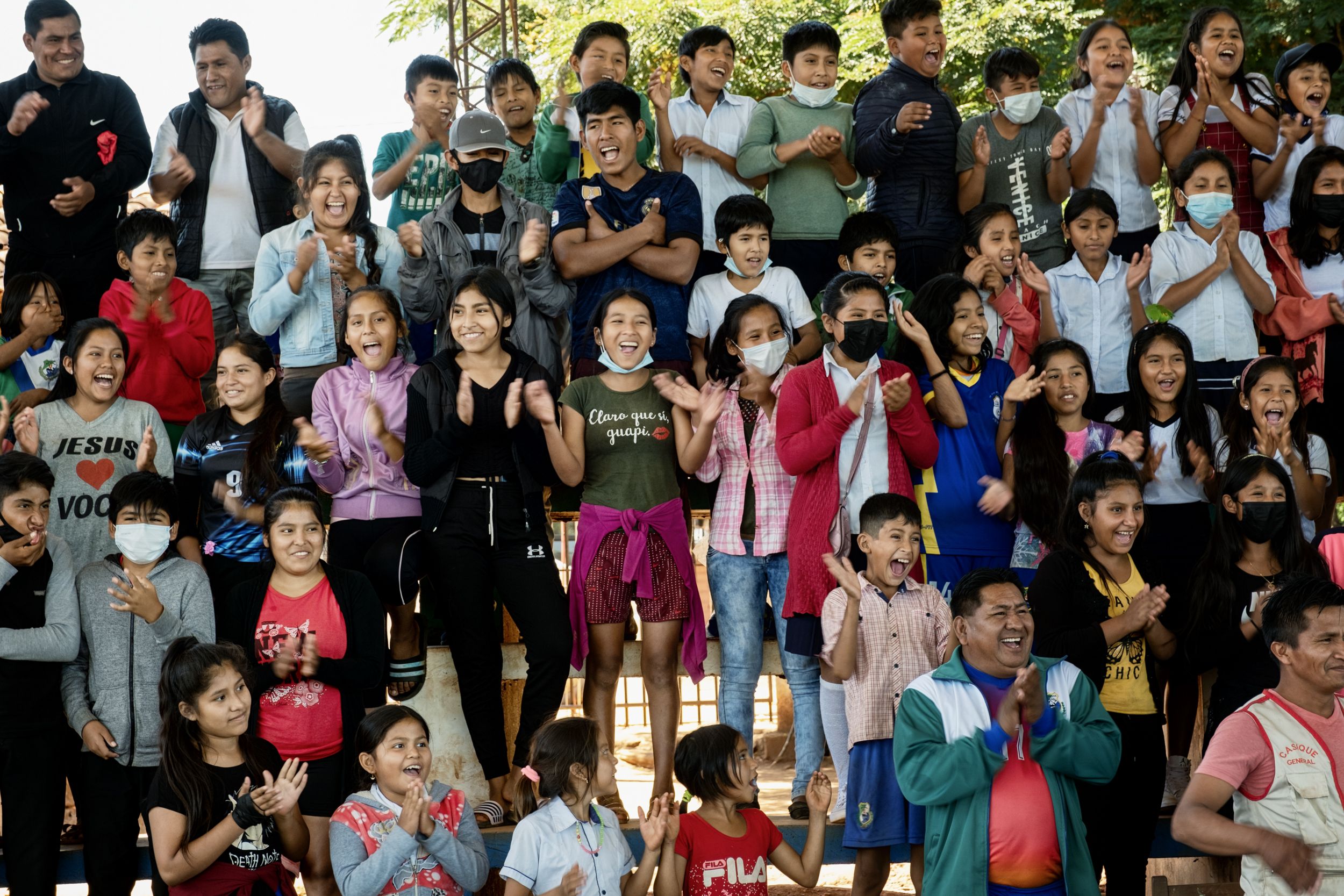
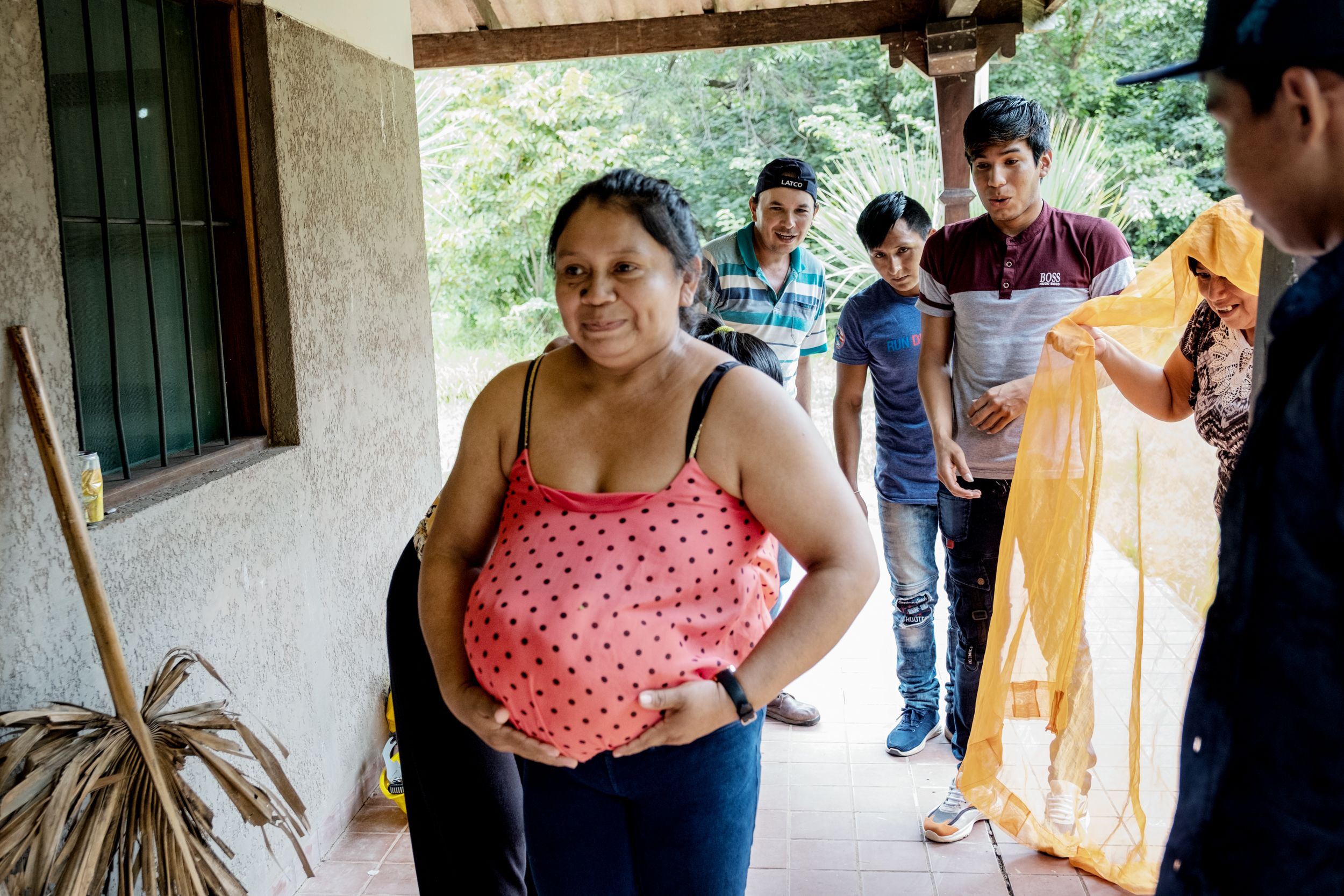
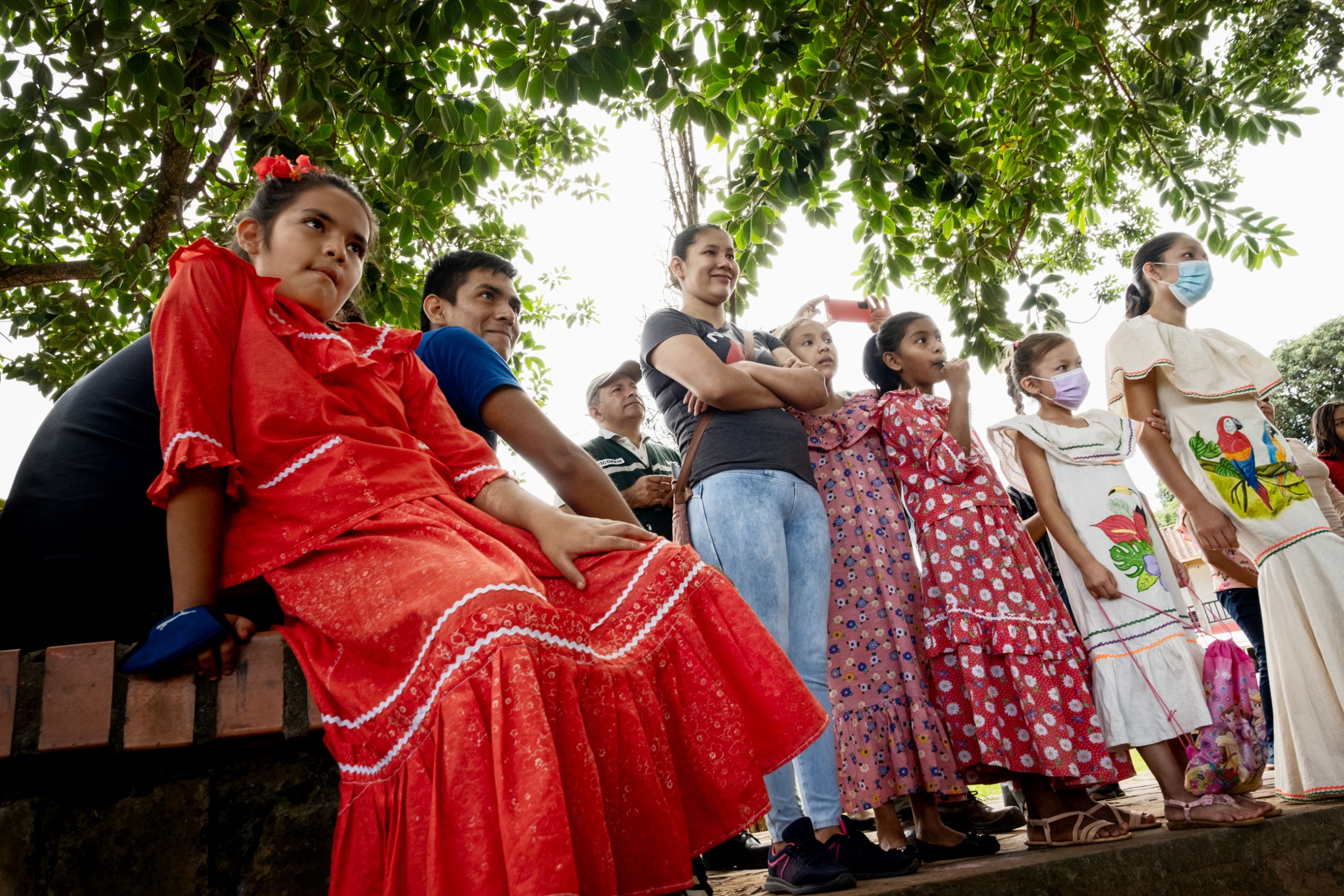
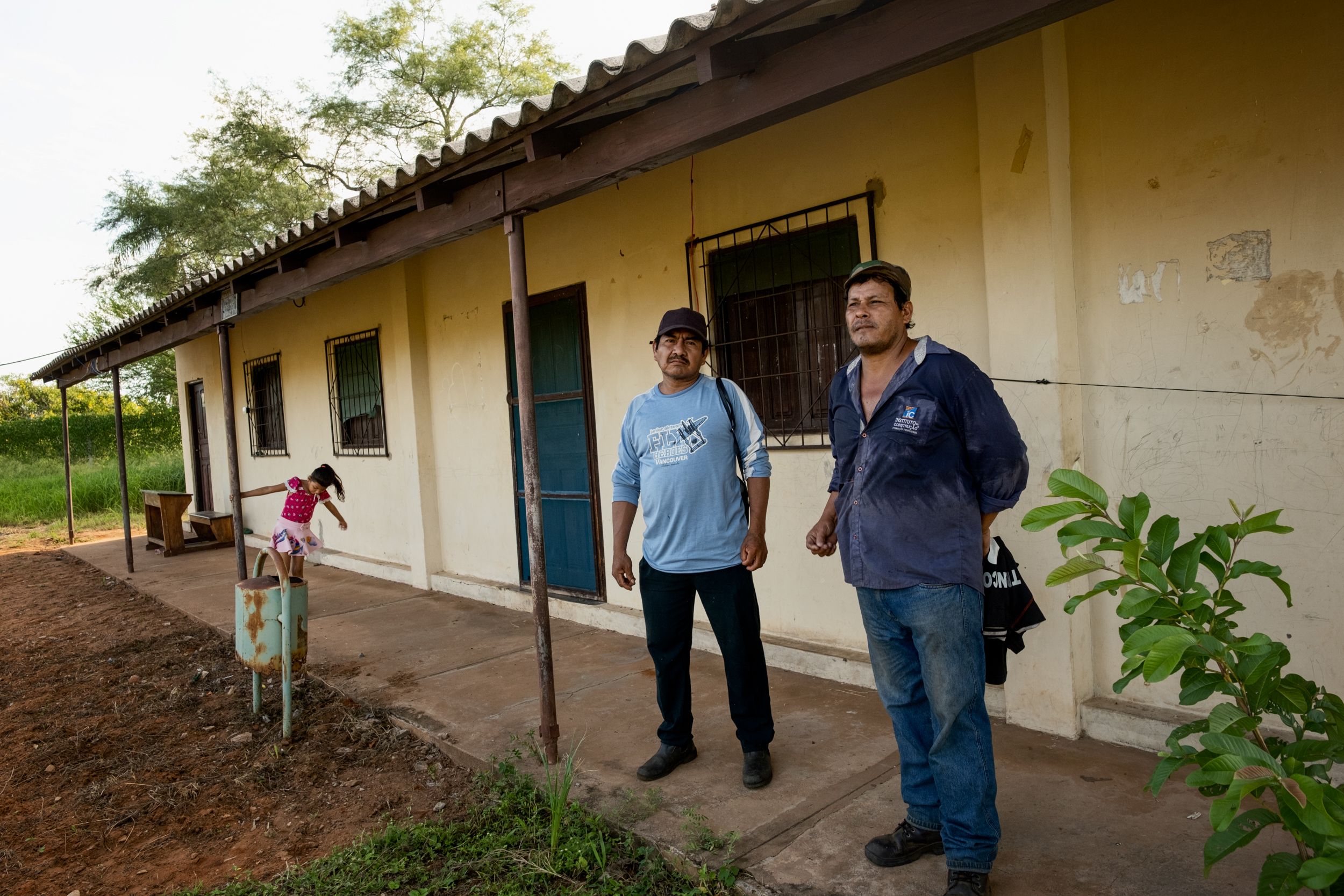
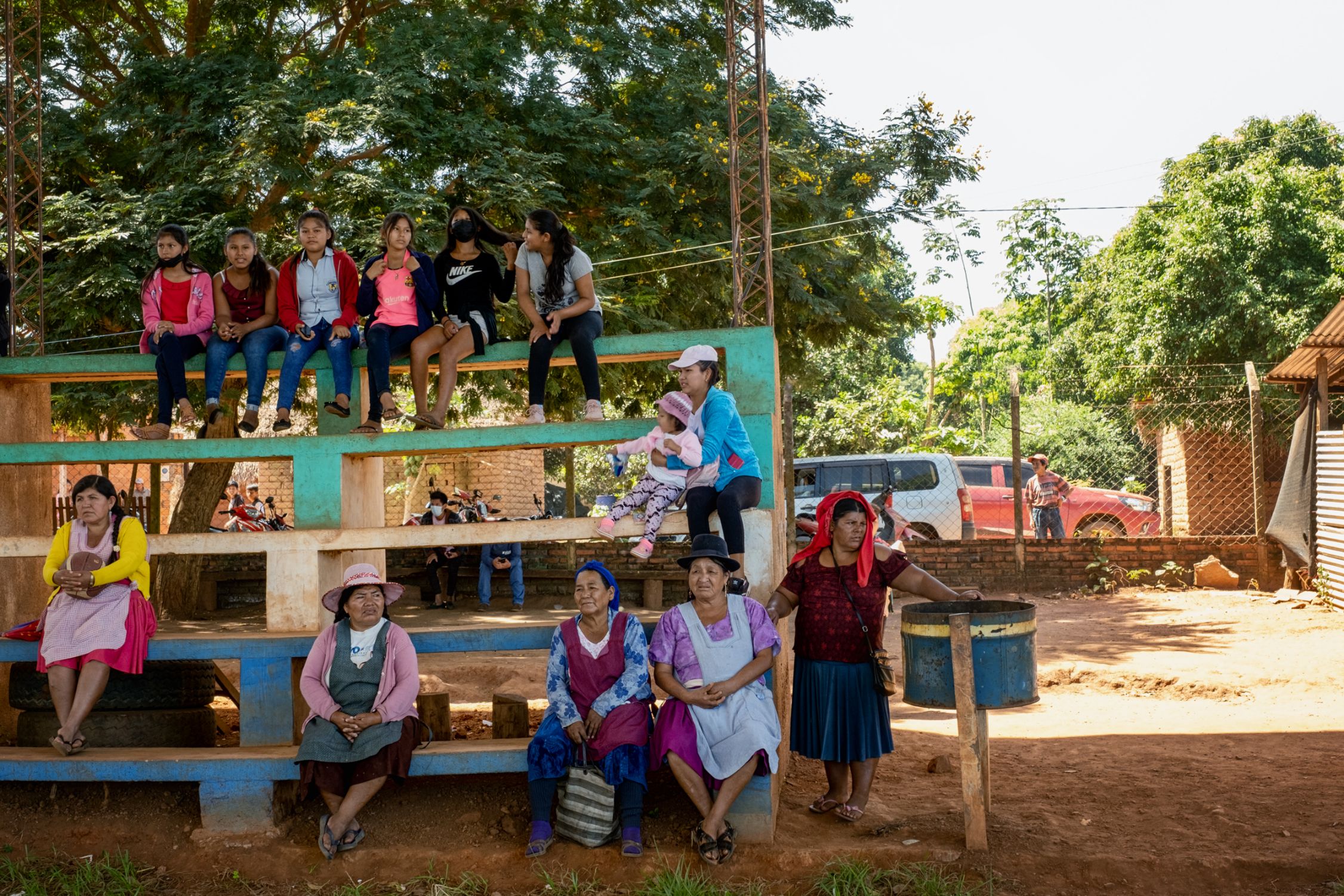
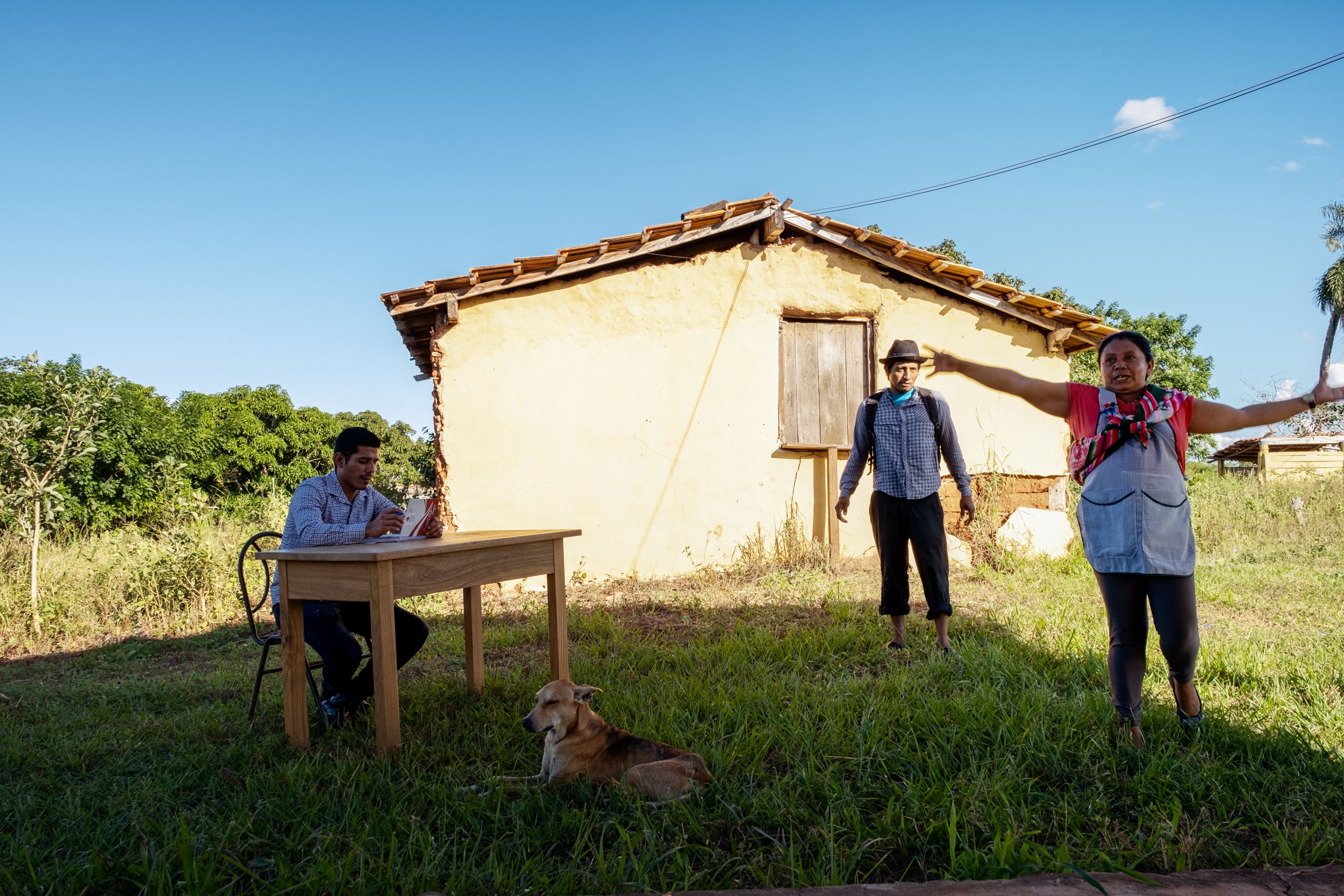
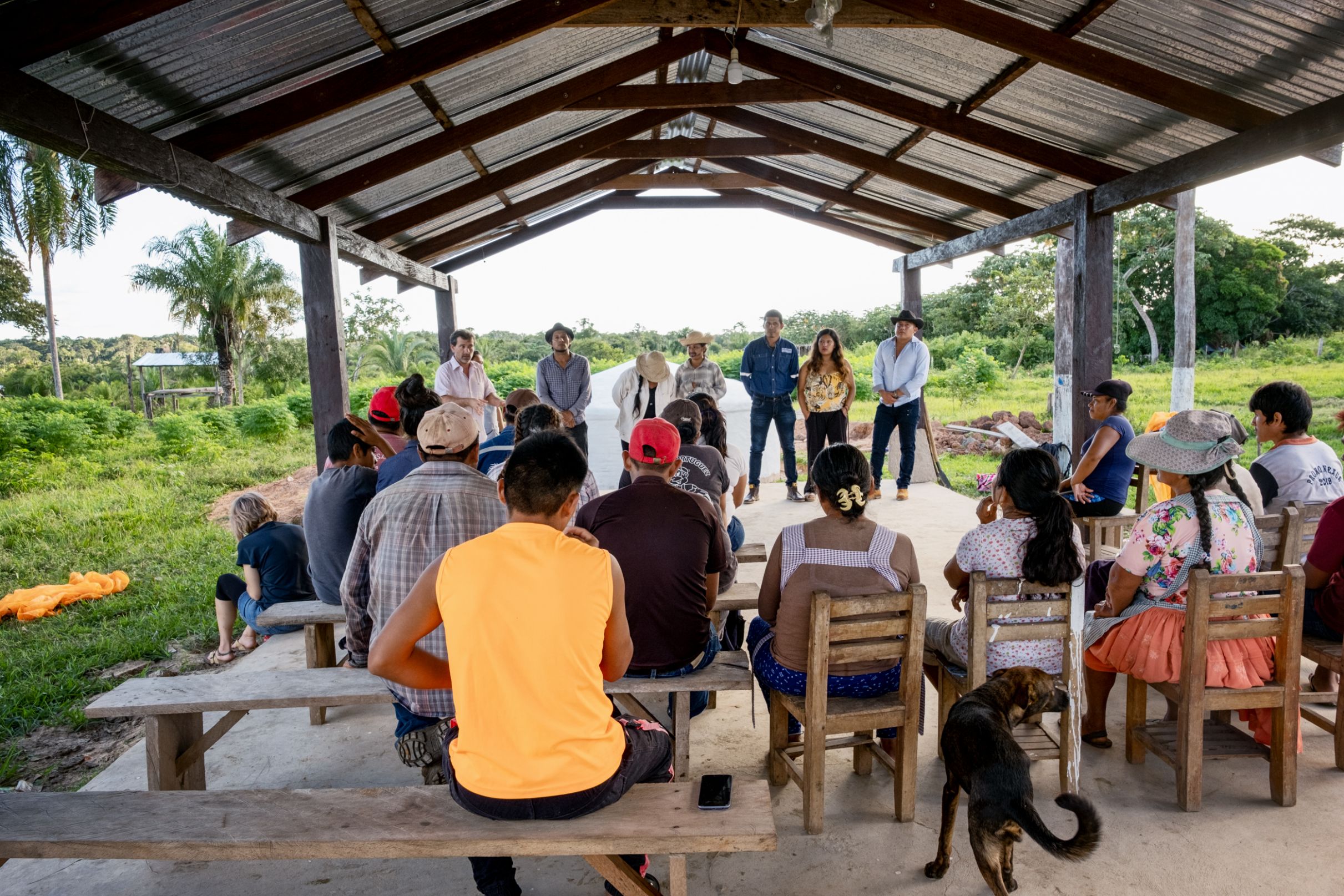
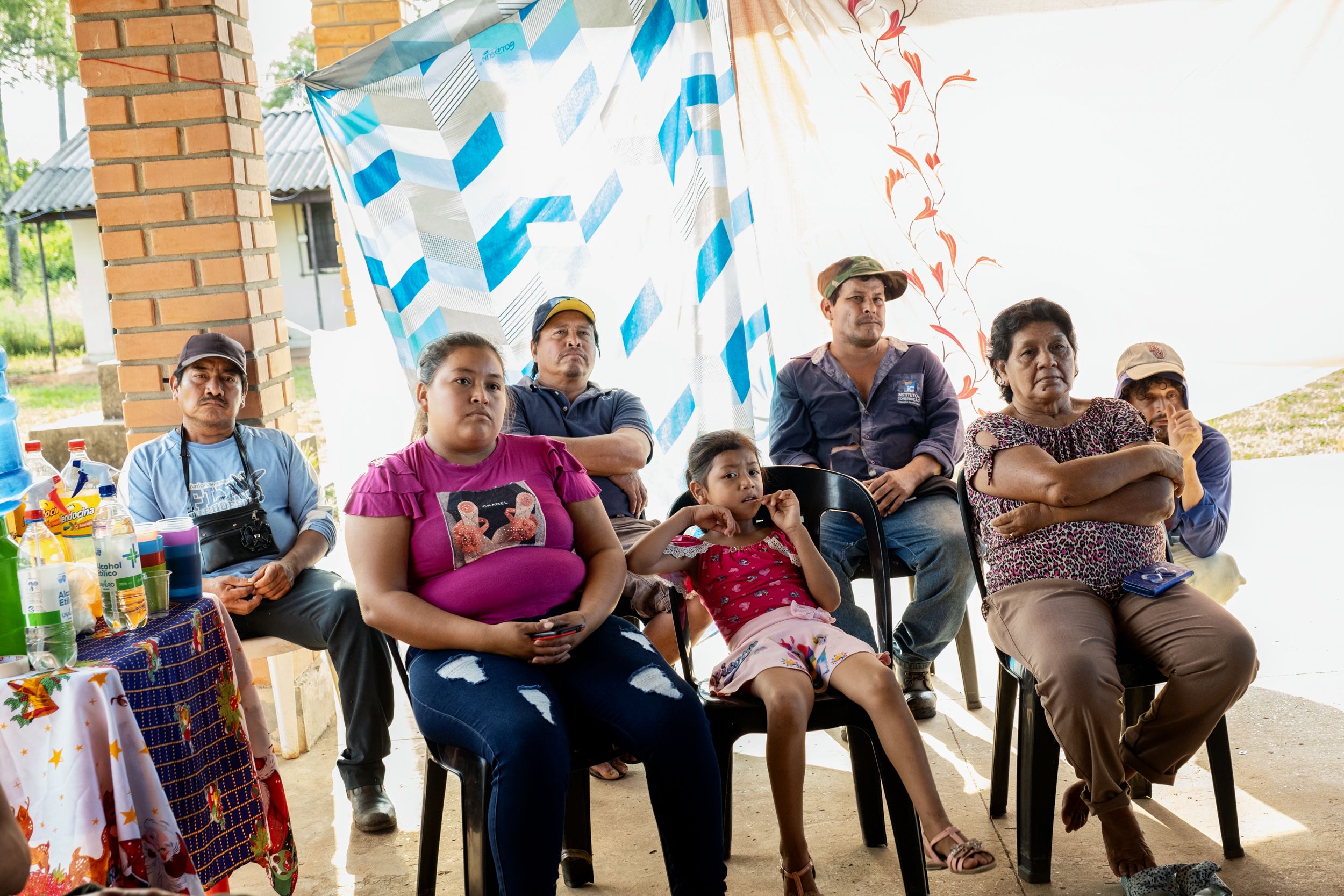
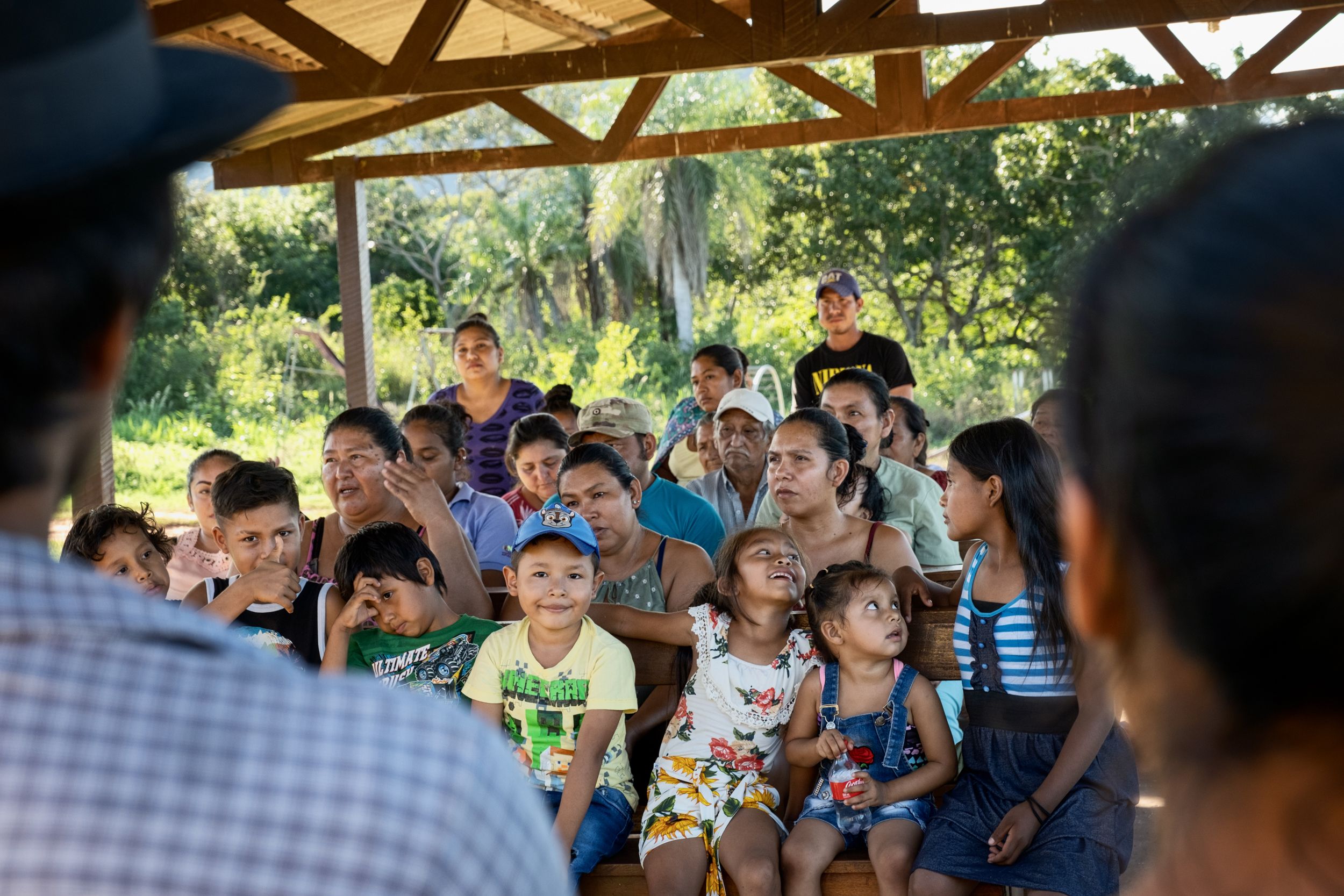
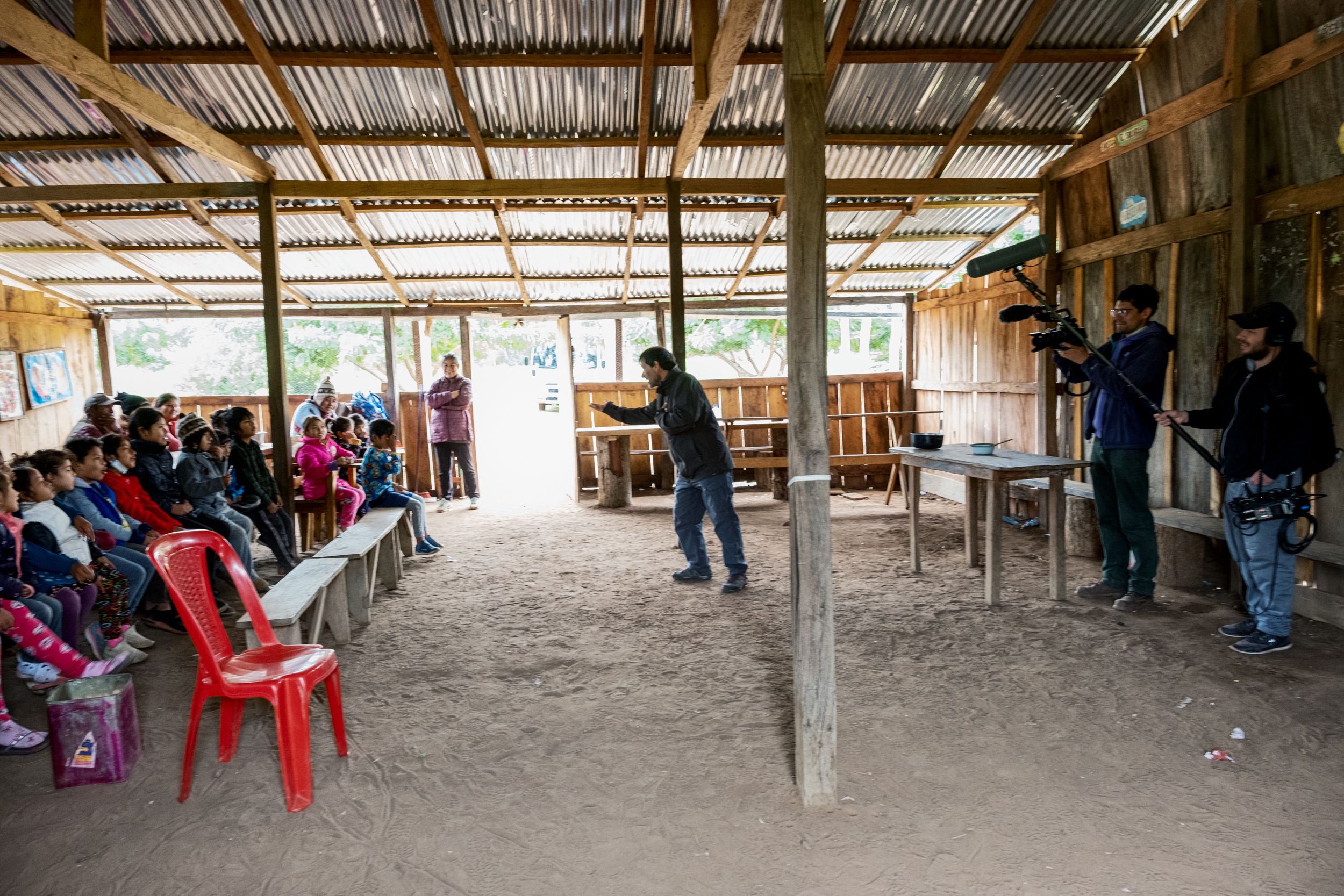
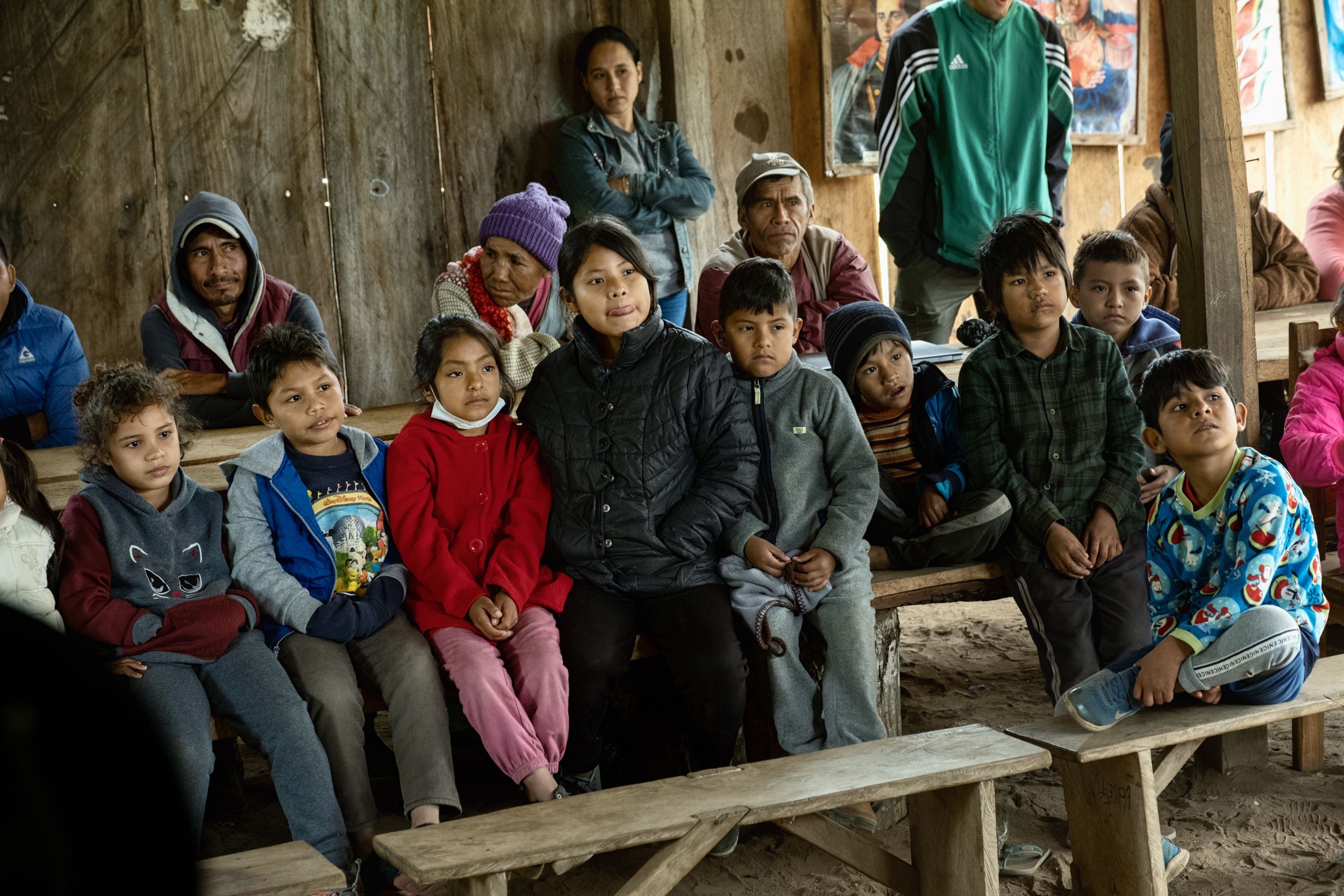


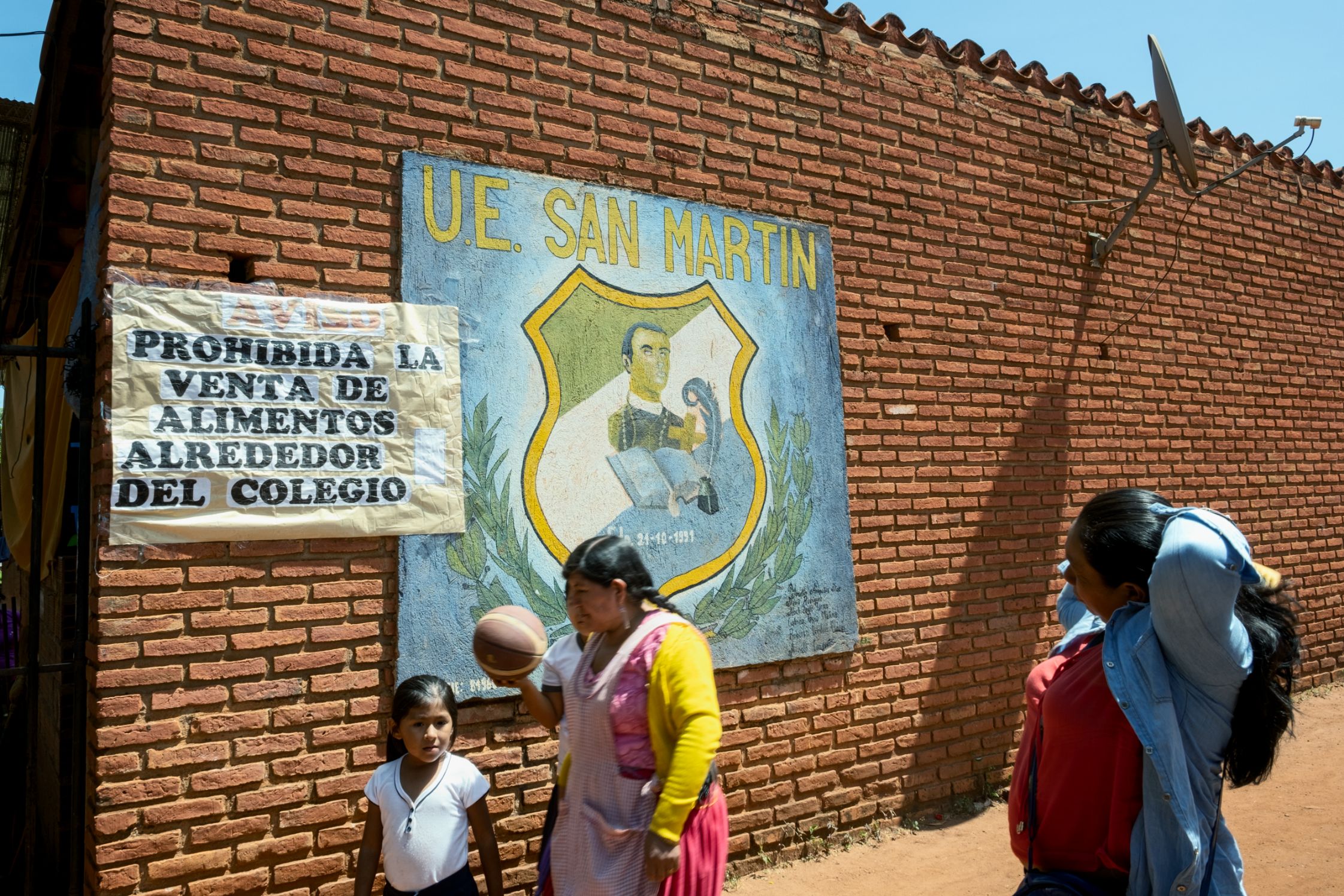
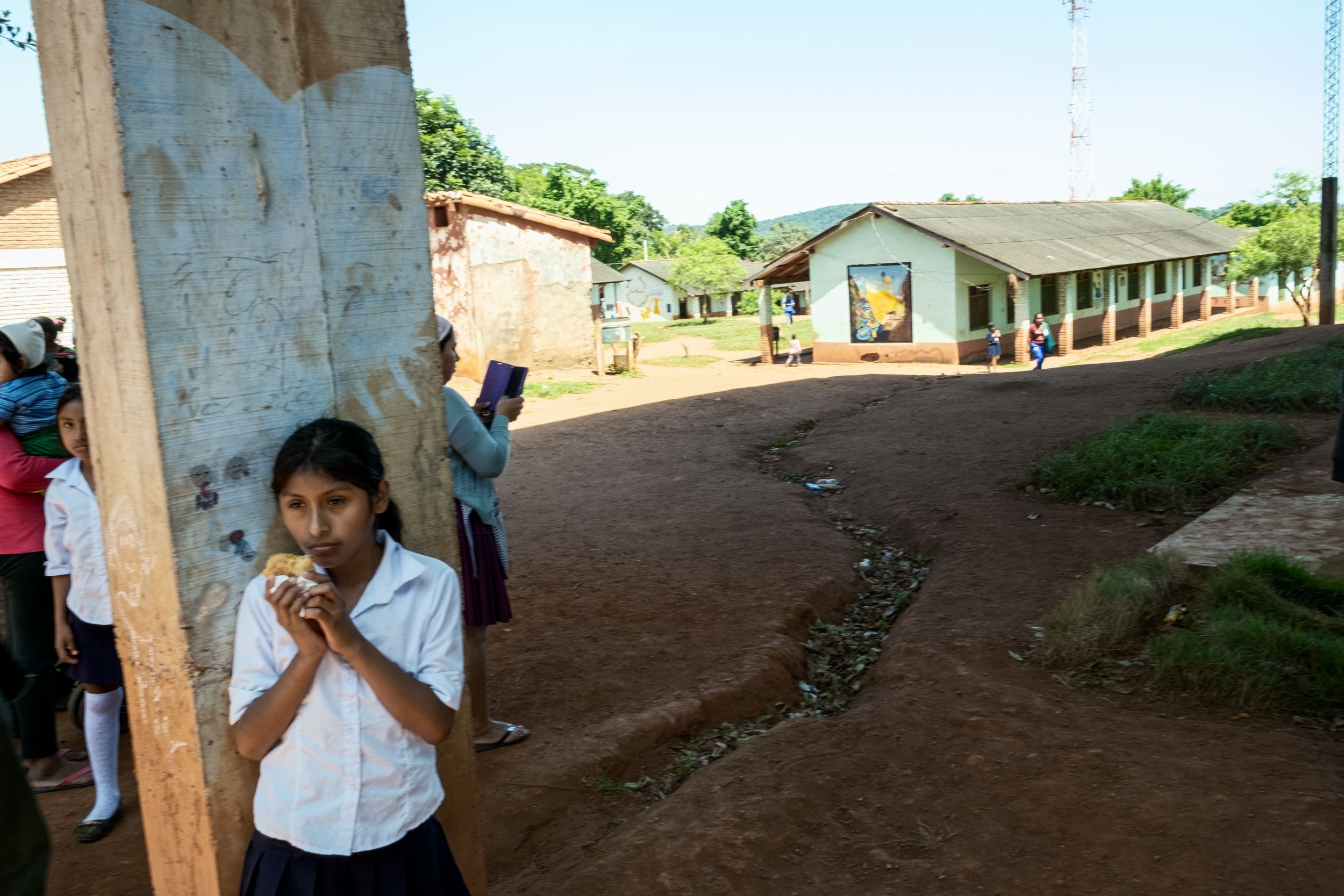

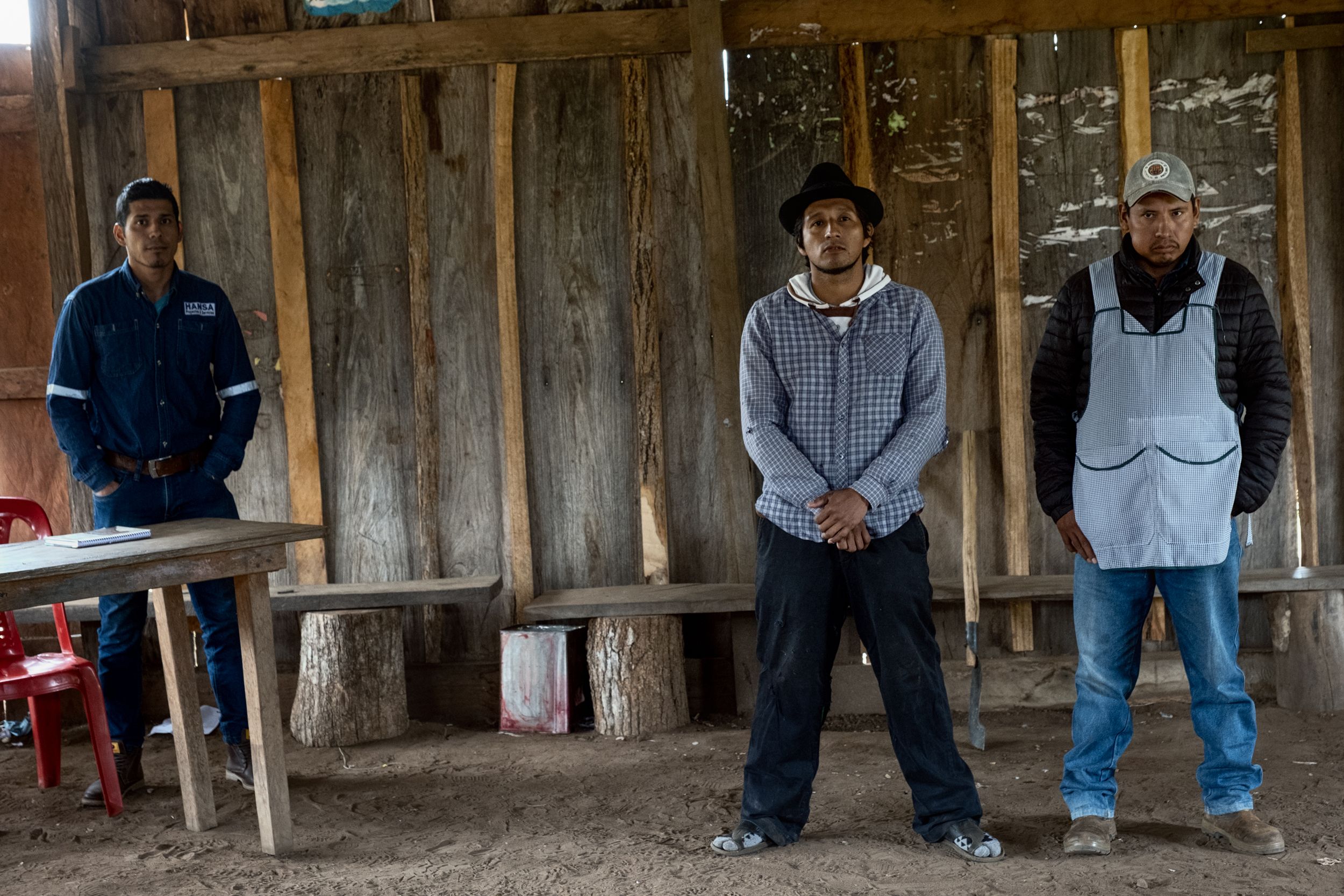
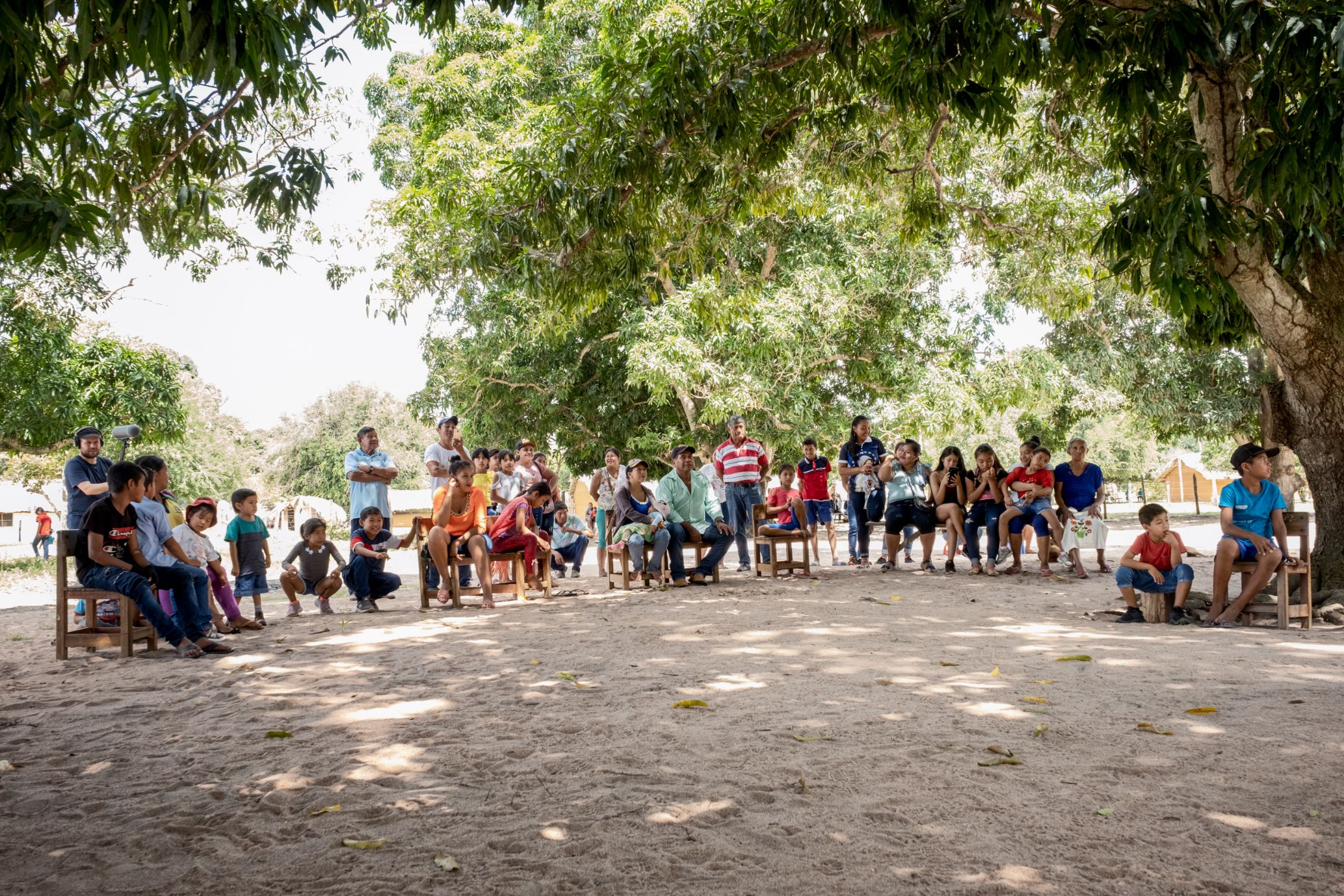

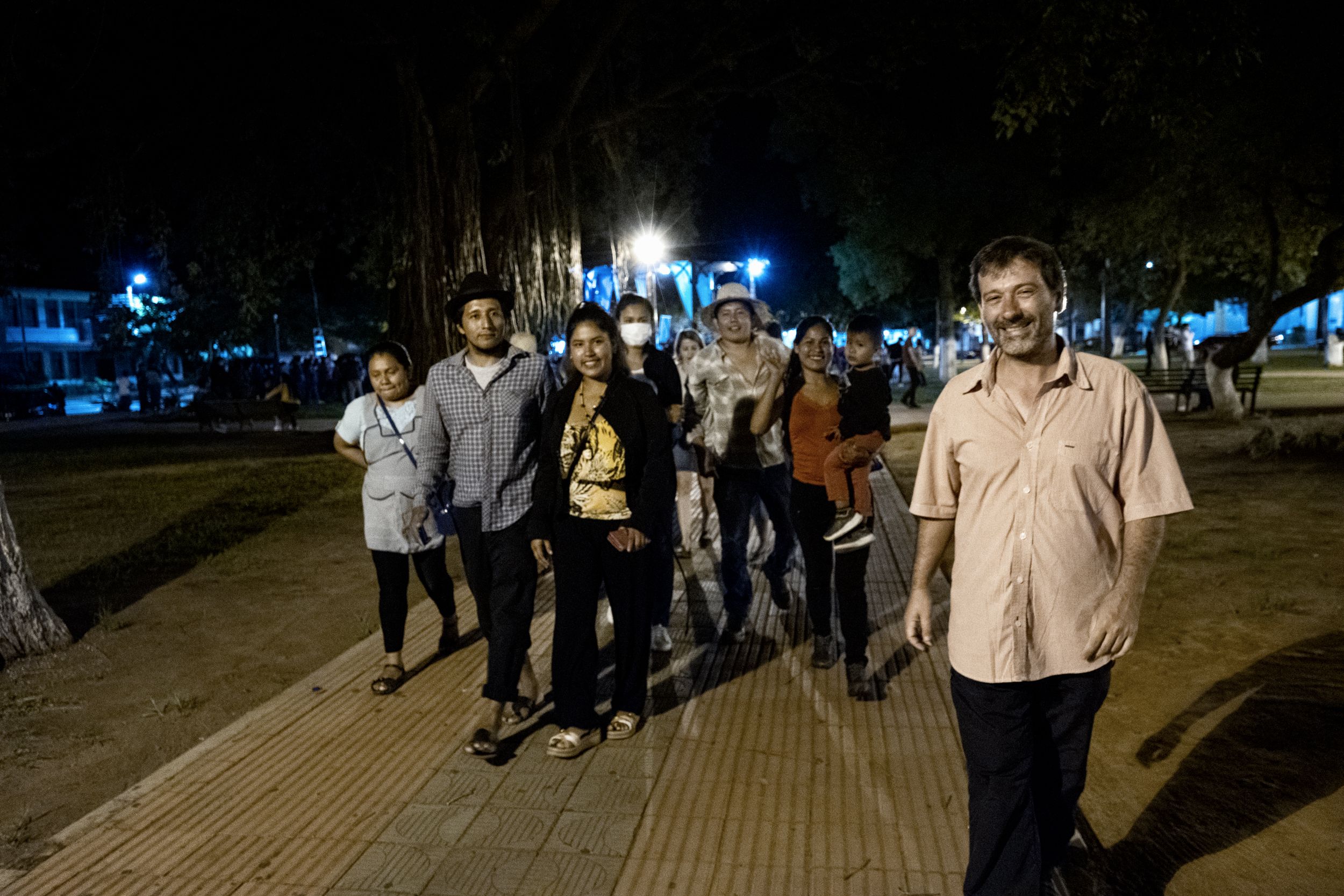
One play was performed in each location. After the performance, which ended with an unresolved situation of oppression or conflict, our FT facilitator – called “the joker” – invited the audience to recount the plot, to identify the oppressed characters and share thoughts about how the situation could be changed in a positive way. Between three and four members of the audience were invited onto the stage, one at the time, to enact their change strategy confronting the oppressive characters. Questions were then posed to the audience about whether the strategy was successful and realistic. Our objective was to bring different people who live different social positions into (potentially tense) dialogue and empower the audience members to engage in transformative actions off-stage, in their own communities.
FT performances are not only sites for social engagement; they are also powerful opportunities for qualitative social research and data collection. Public performances and post-performance discussions were video-recorded; and the research team followed alongside the travels of the FT play to interview participants, audience members and key actors in local communities to further explore dynamics of local conflicts, impact of fire on inter-communal relationship, livelihood and conservation strategies, perceptions of discrimination and stigmatization.
